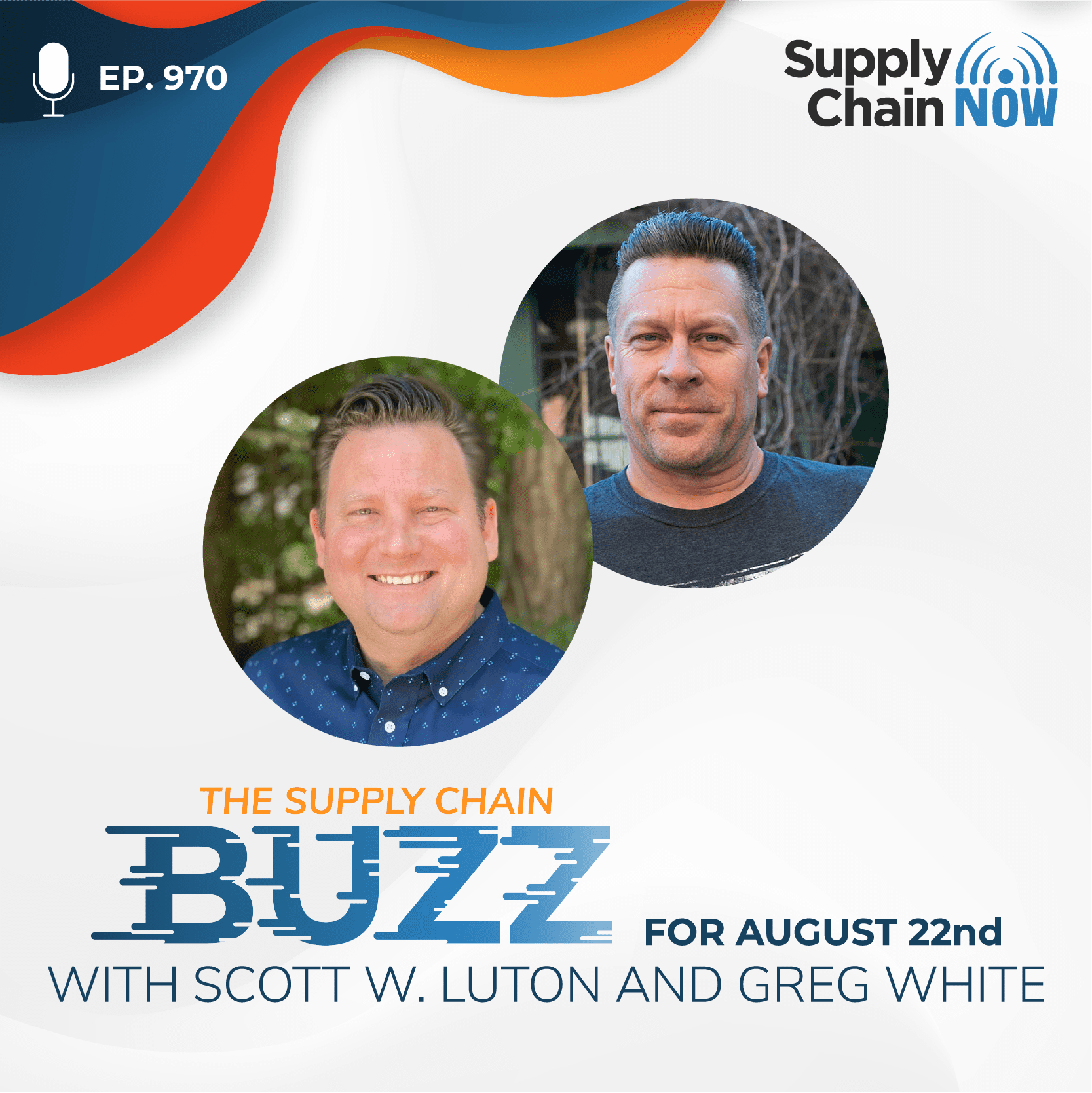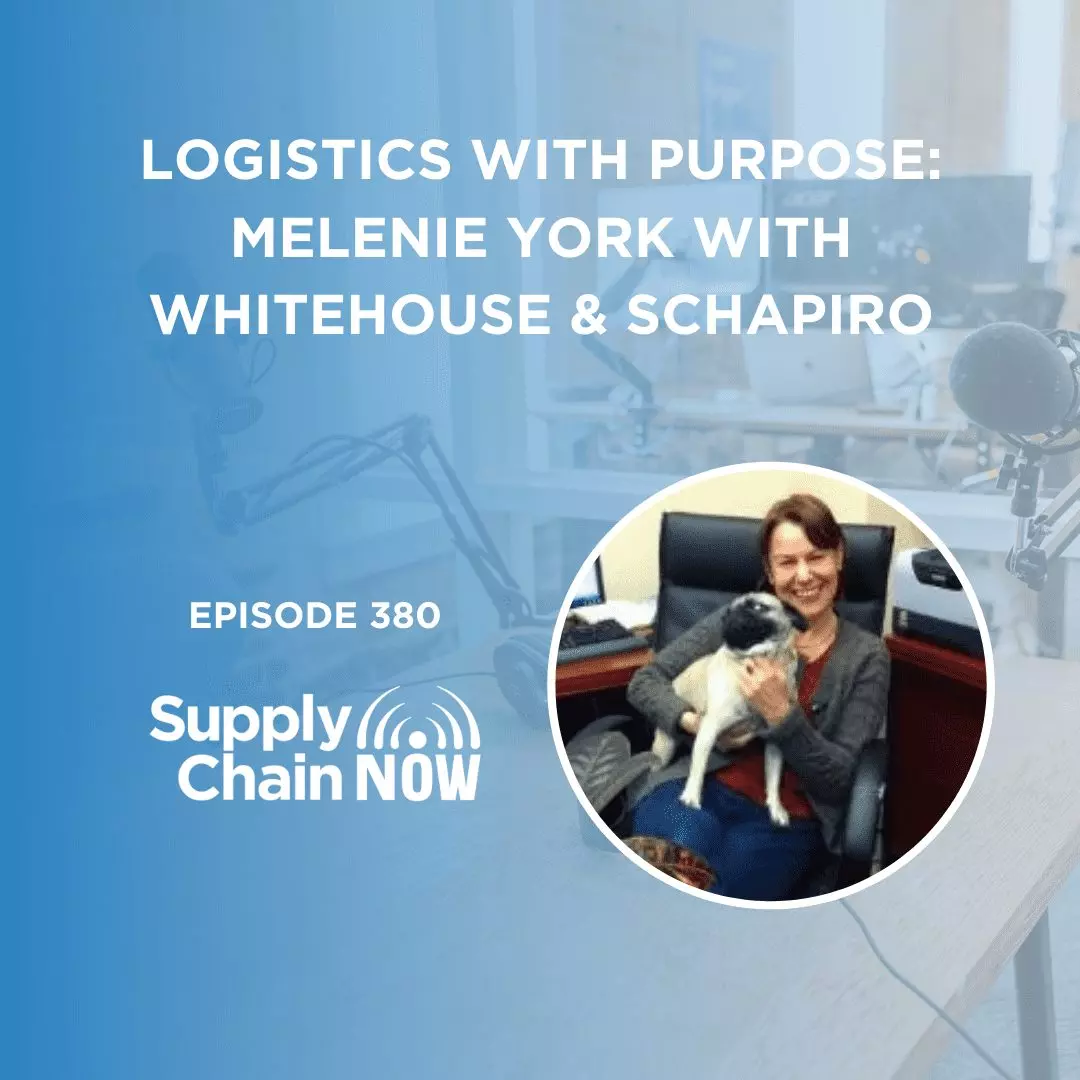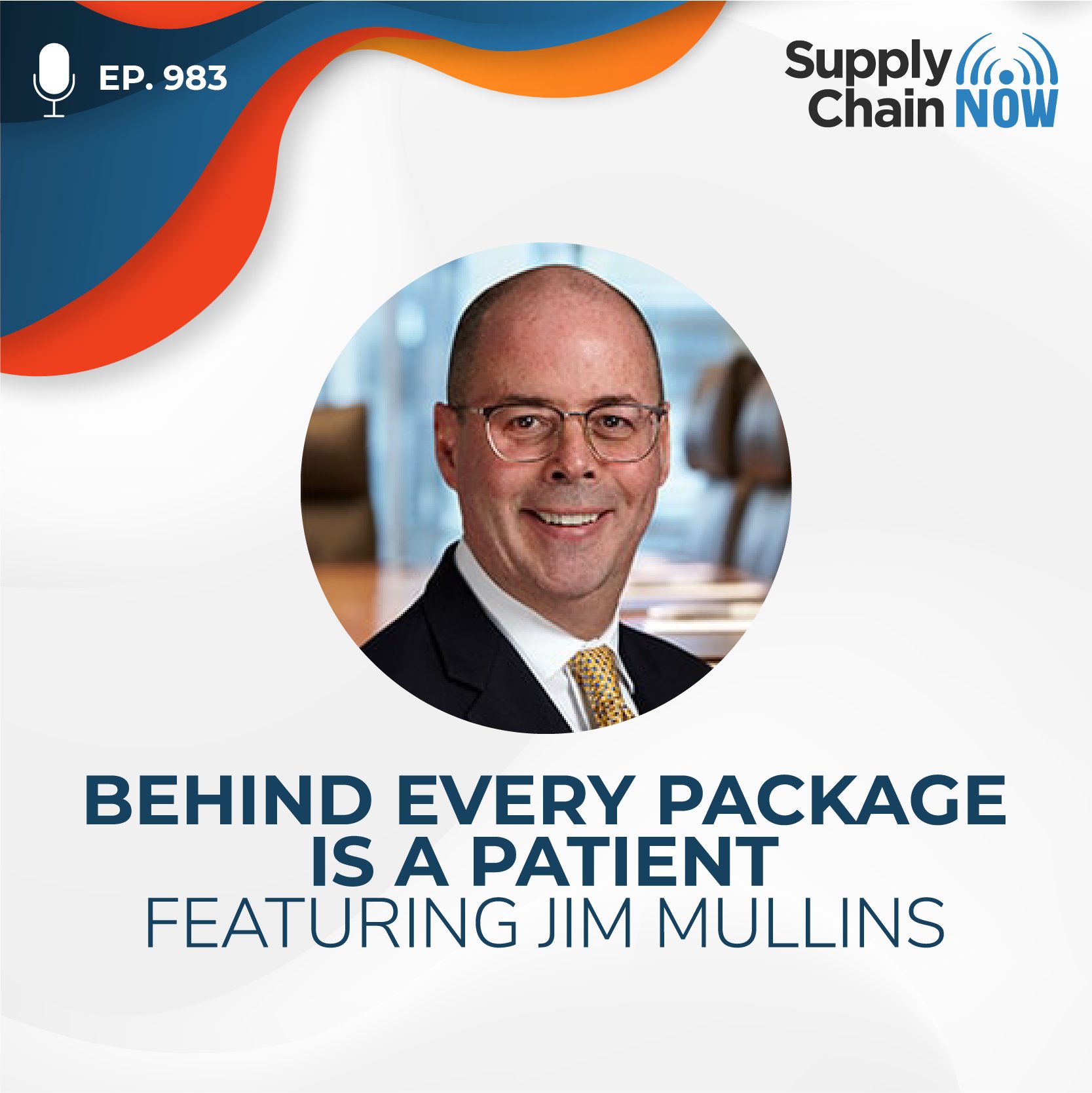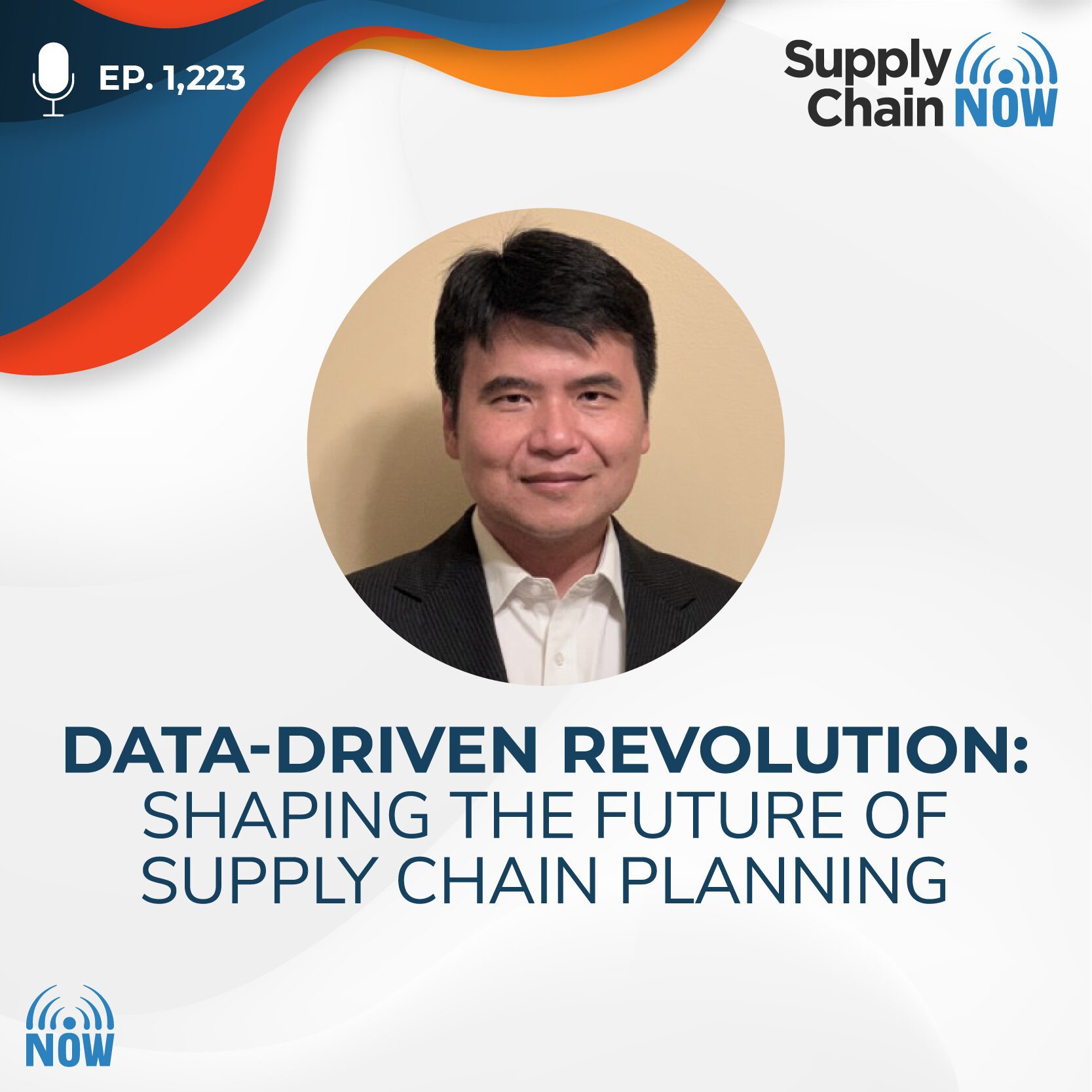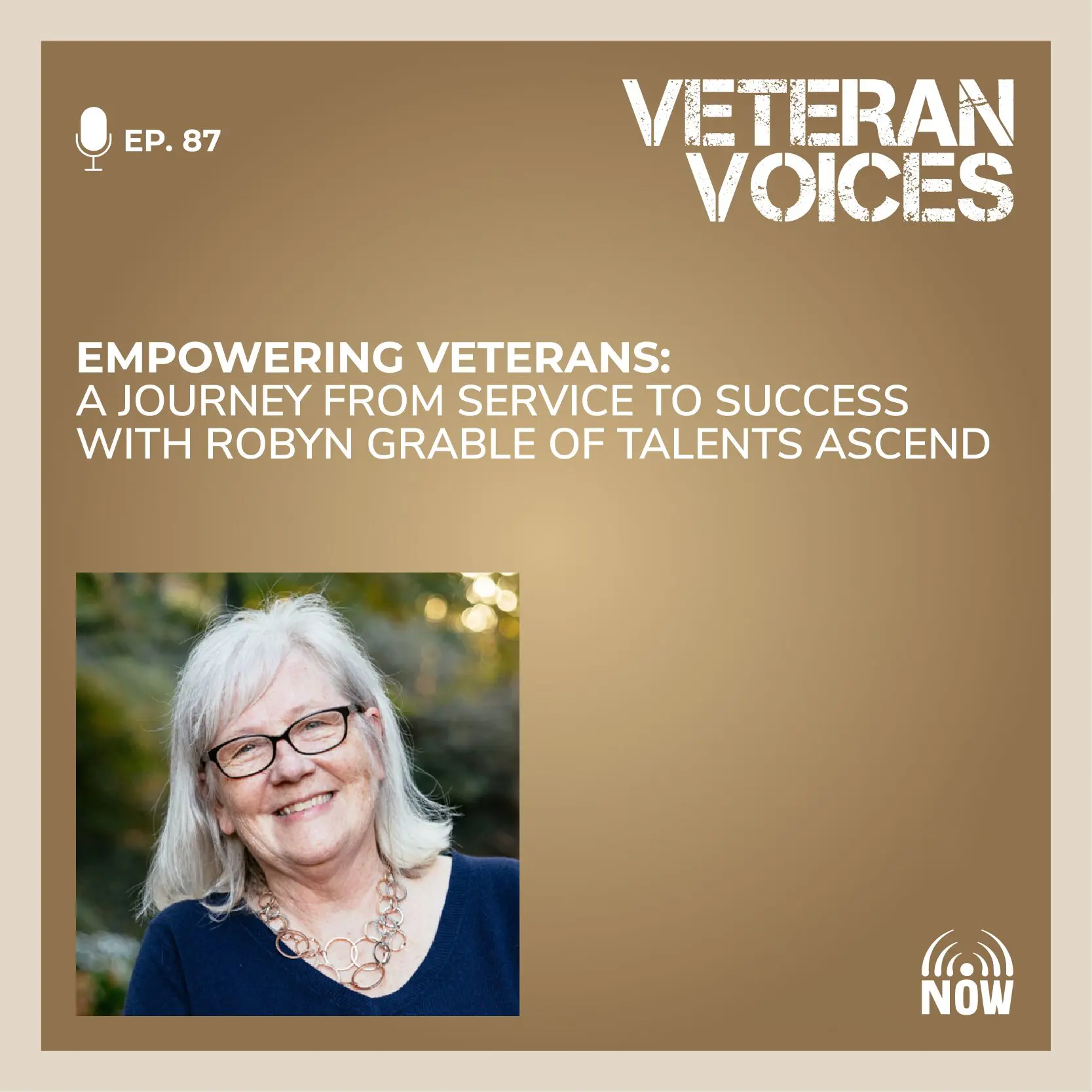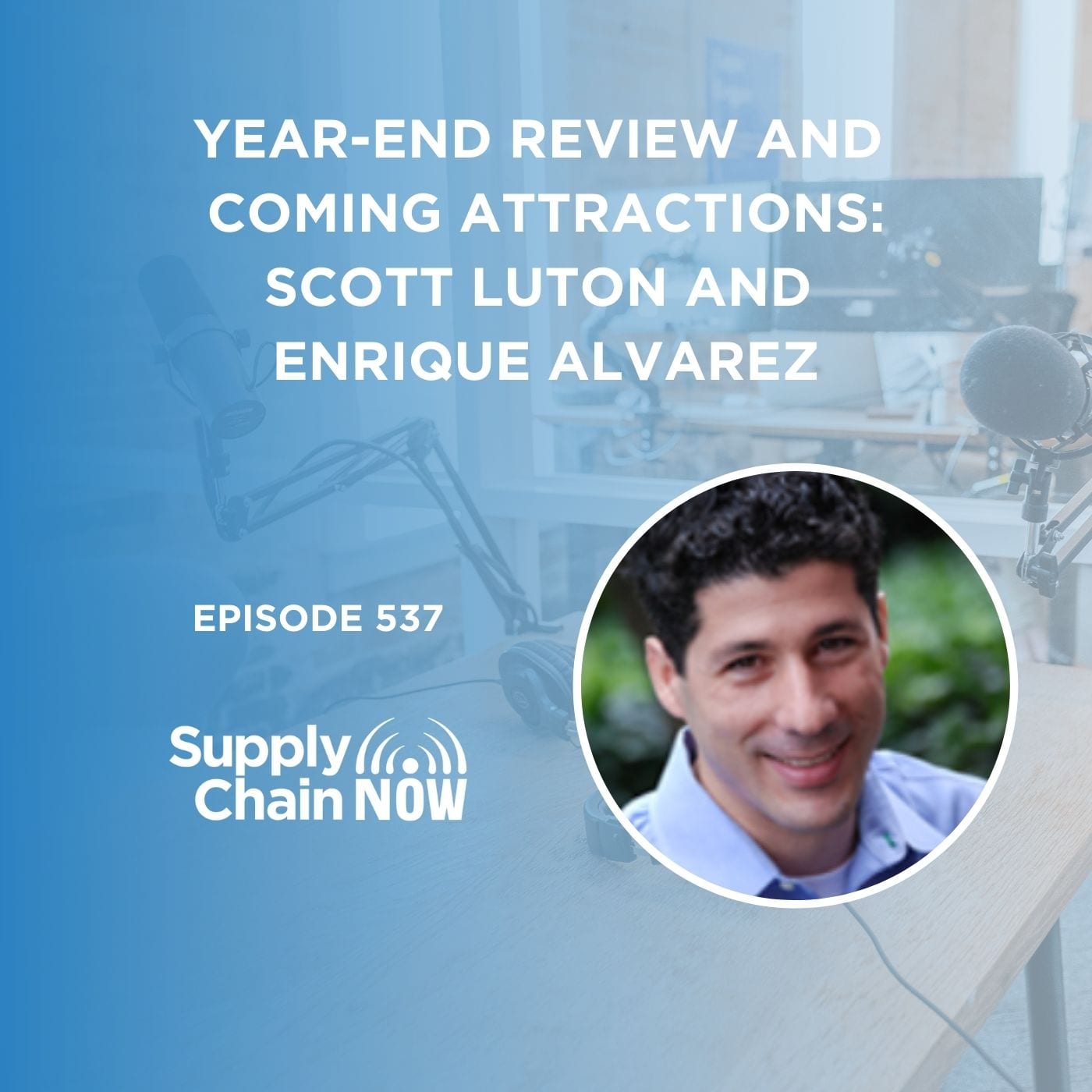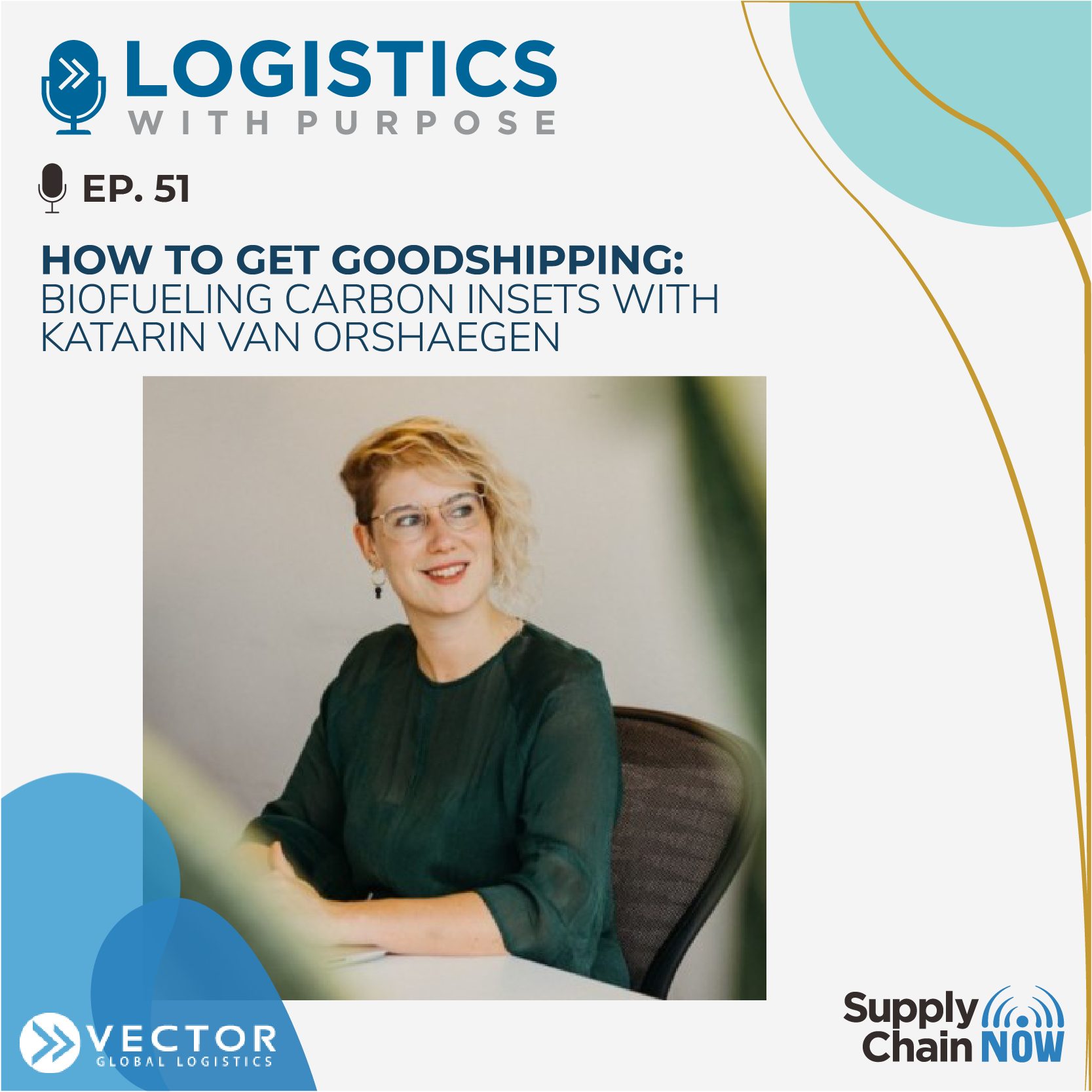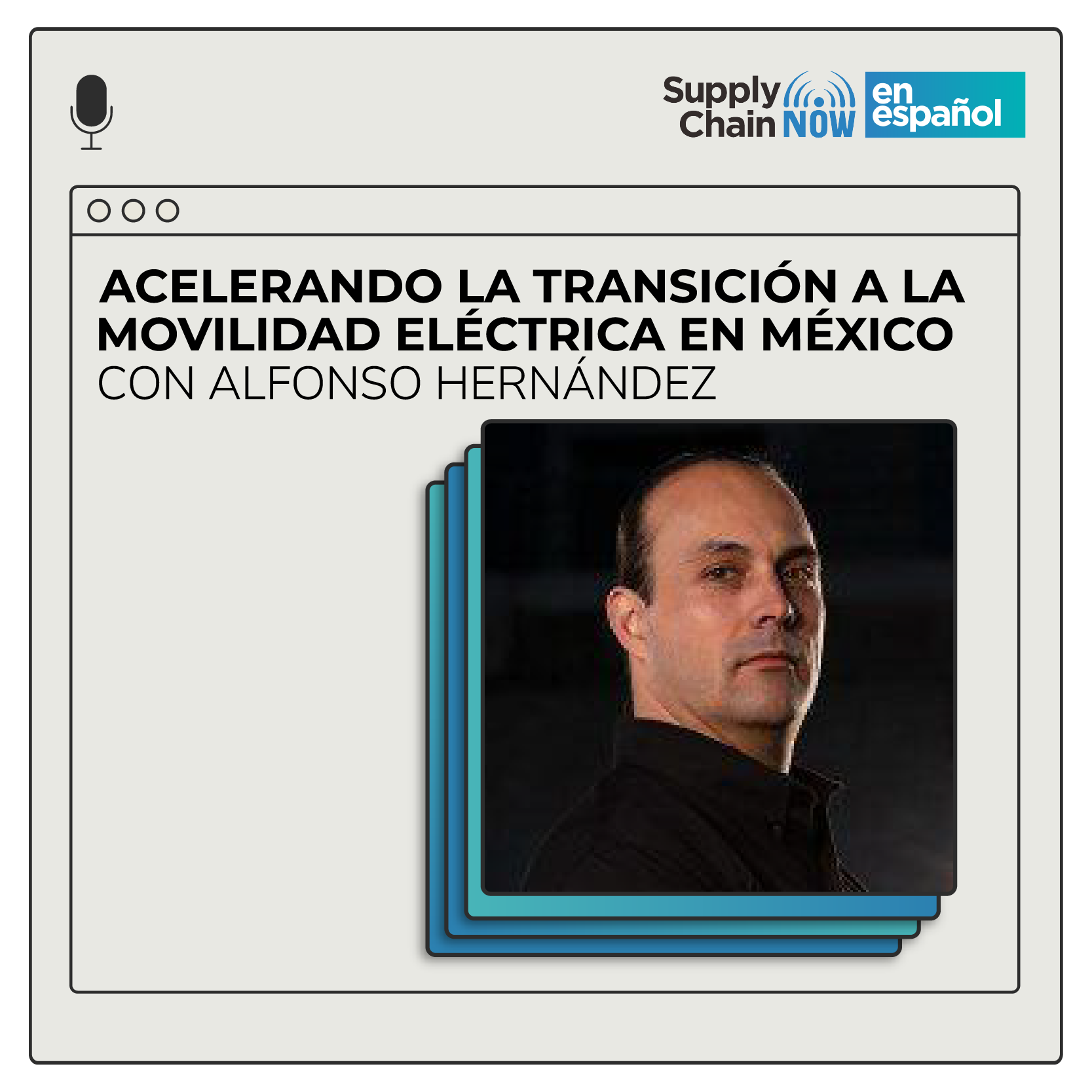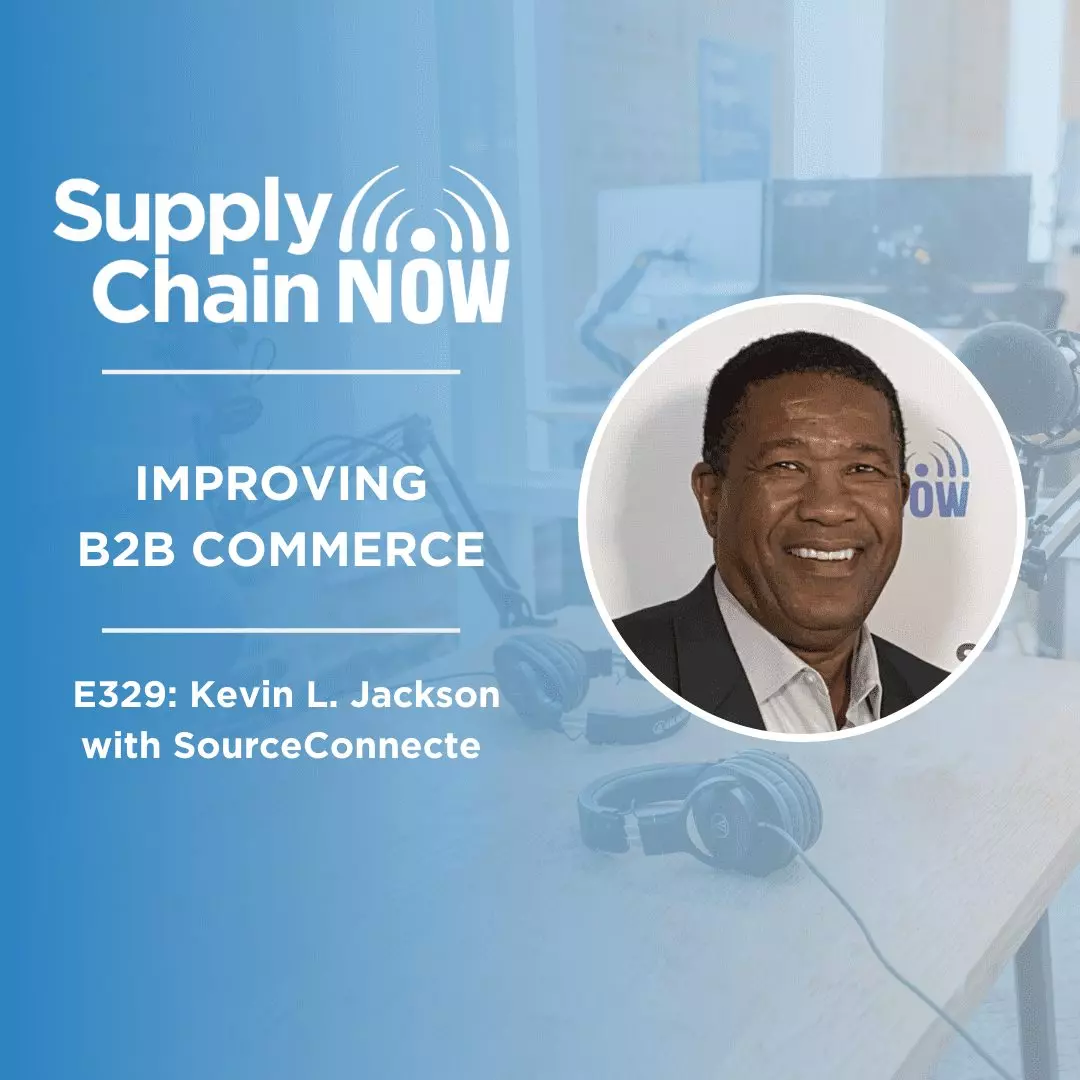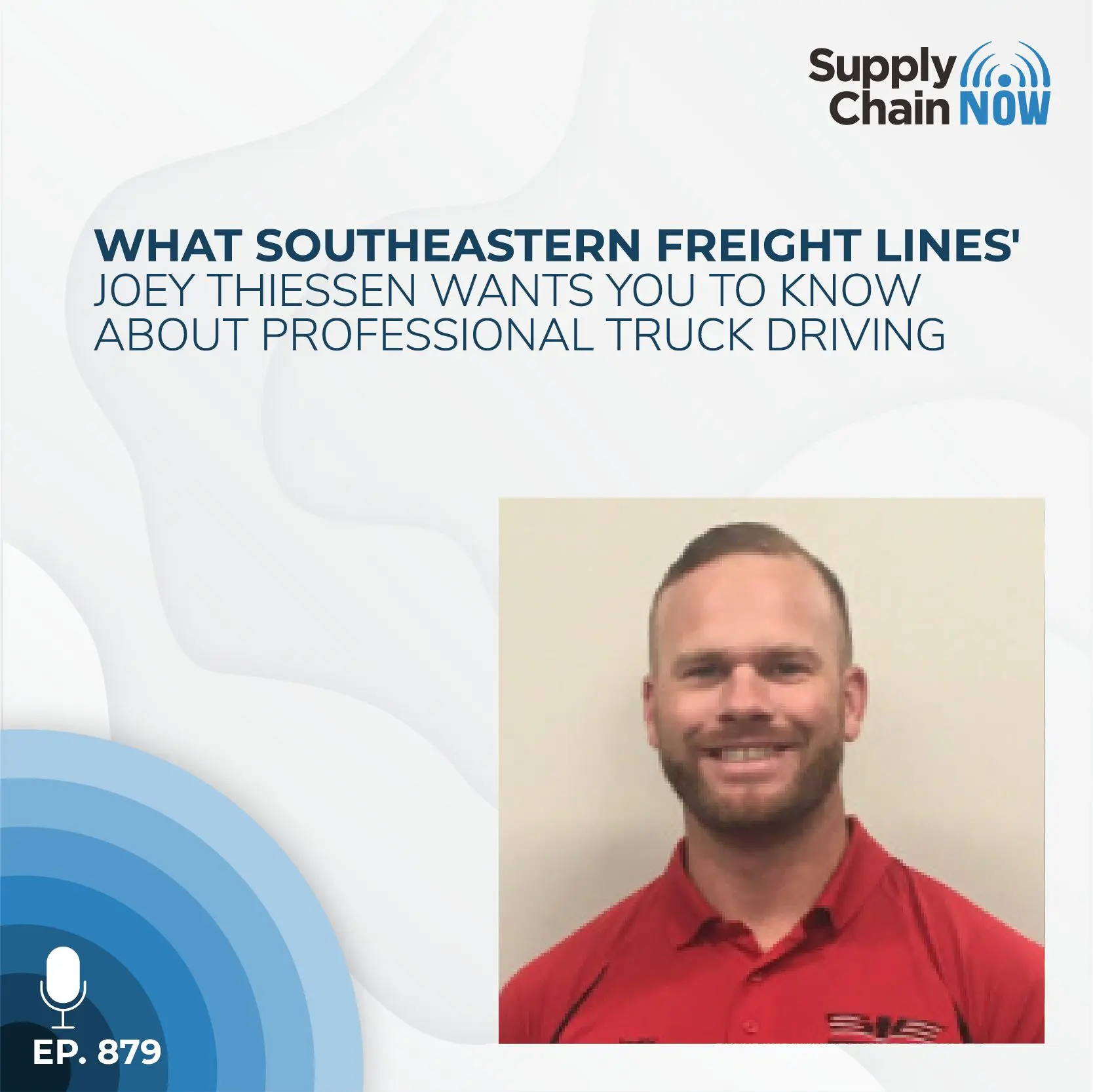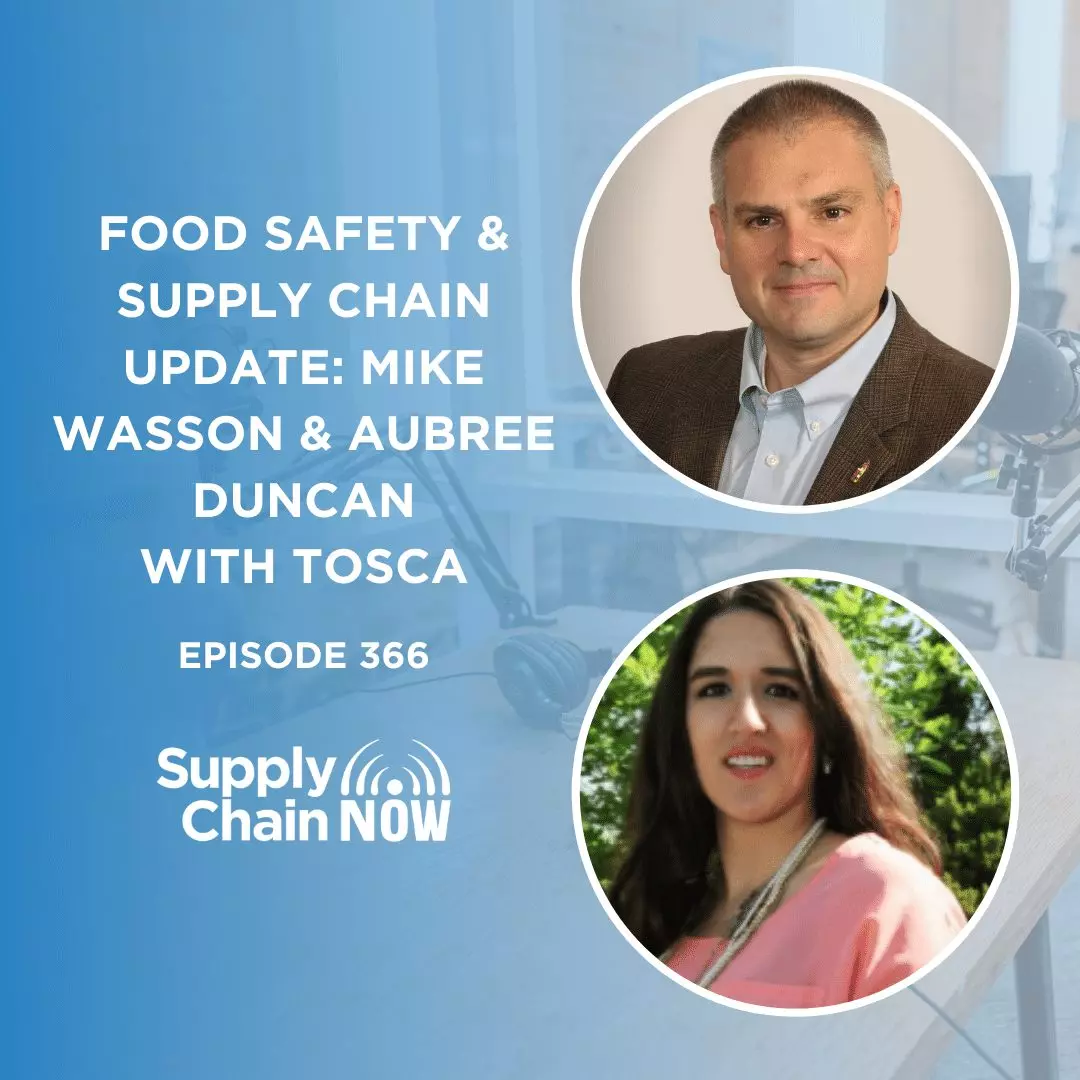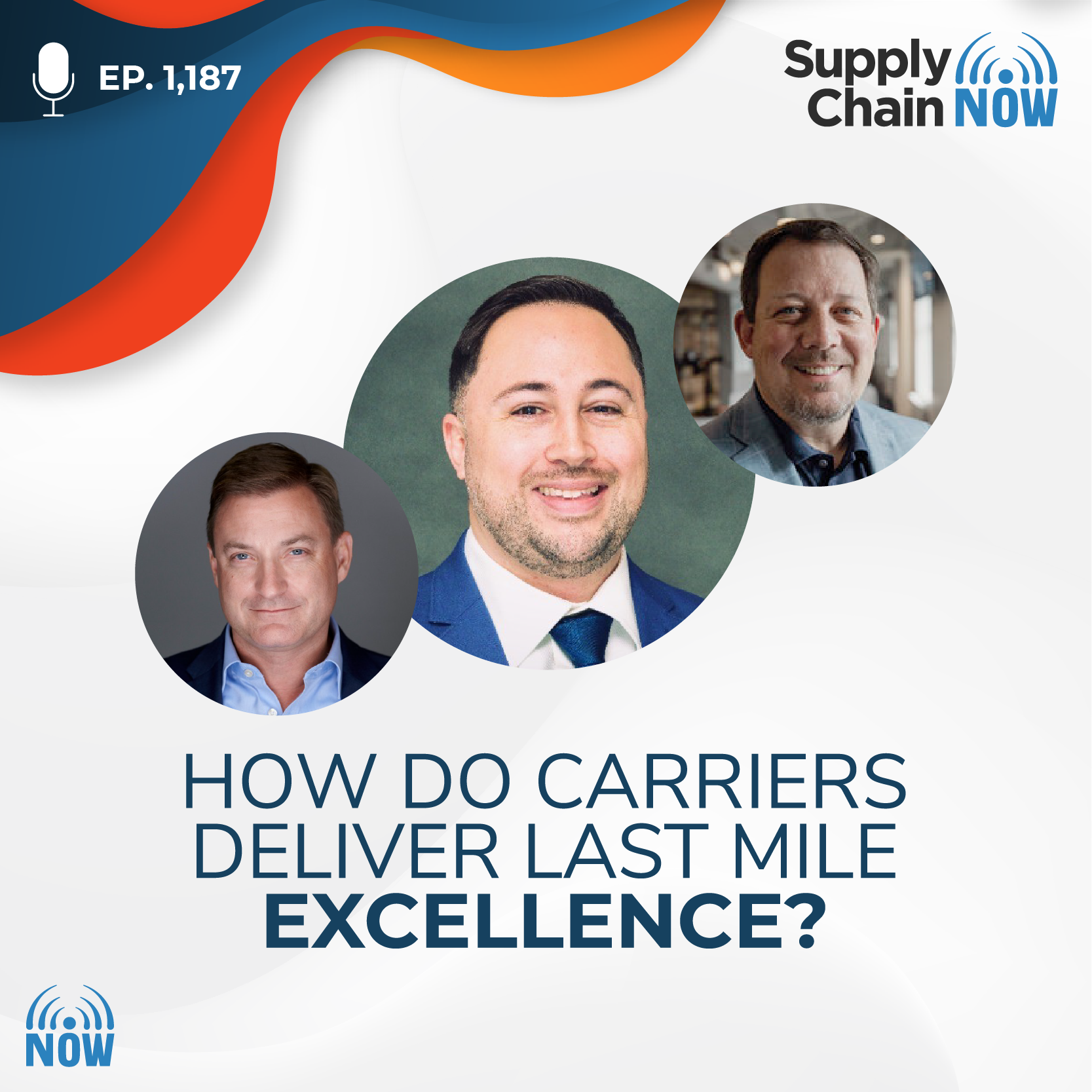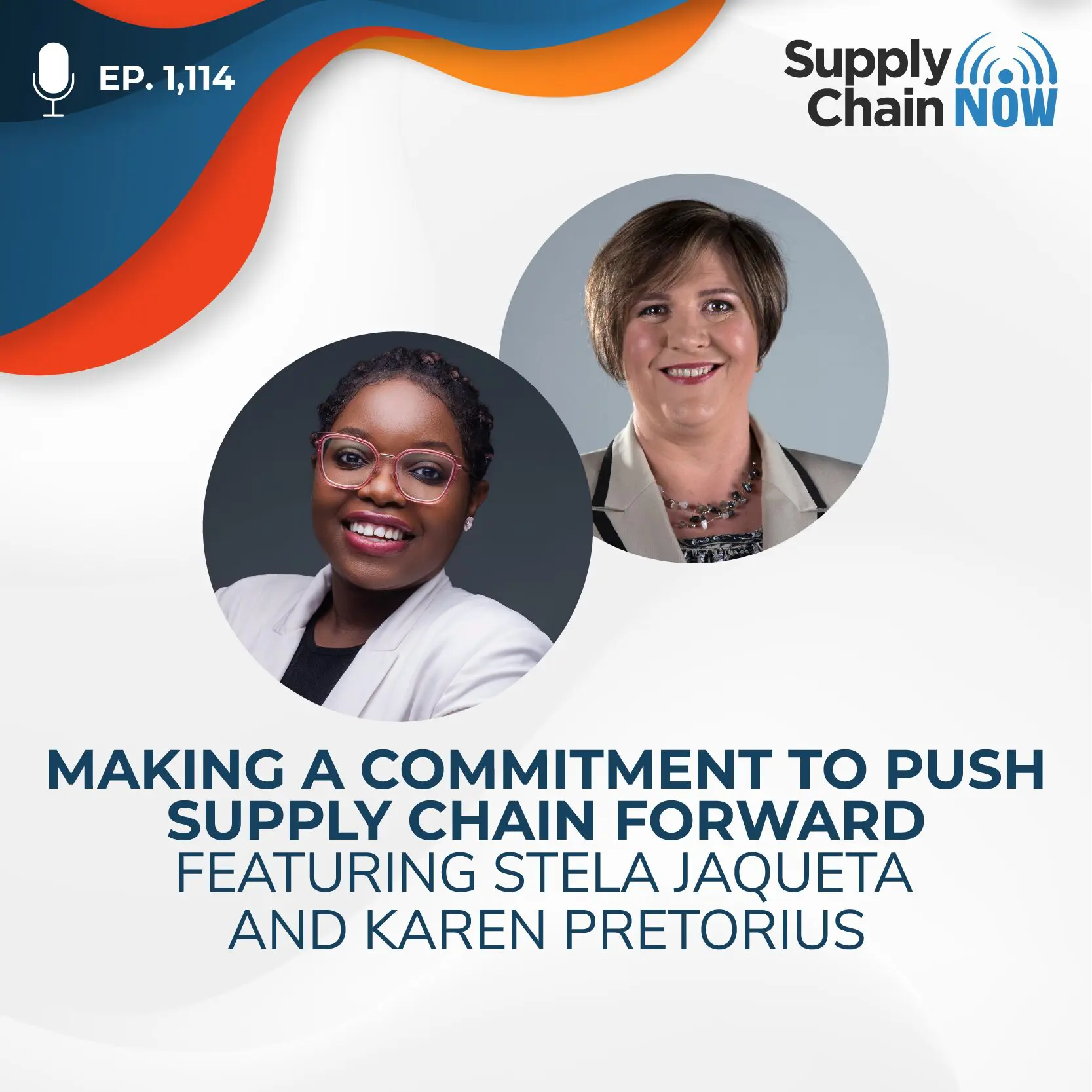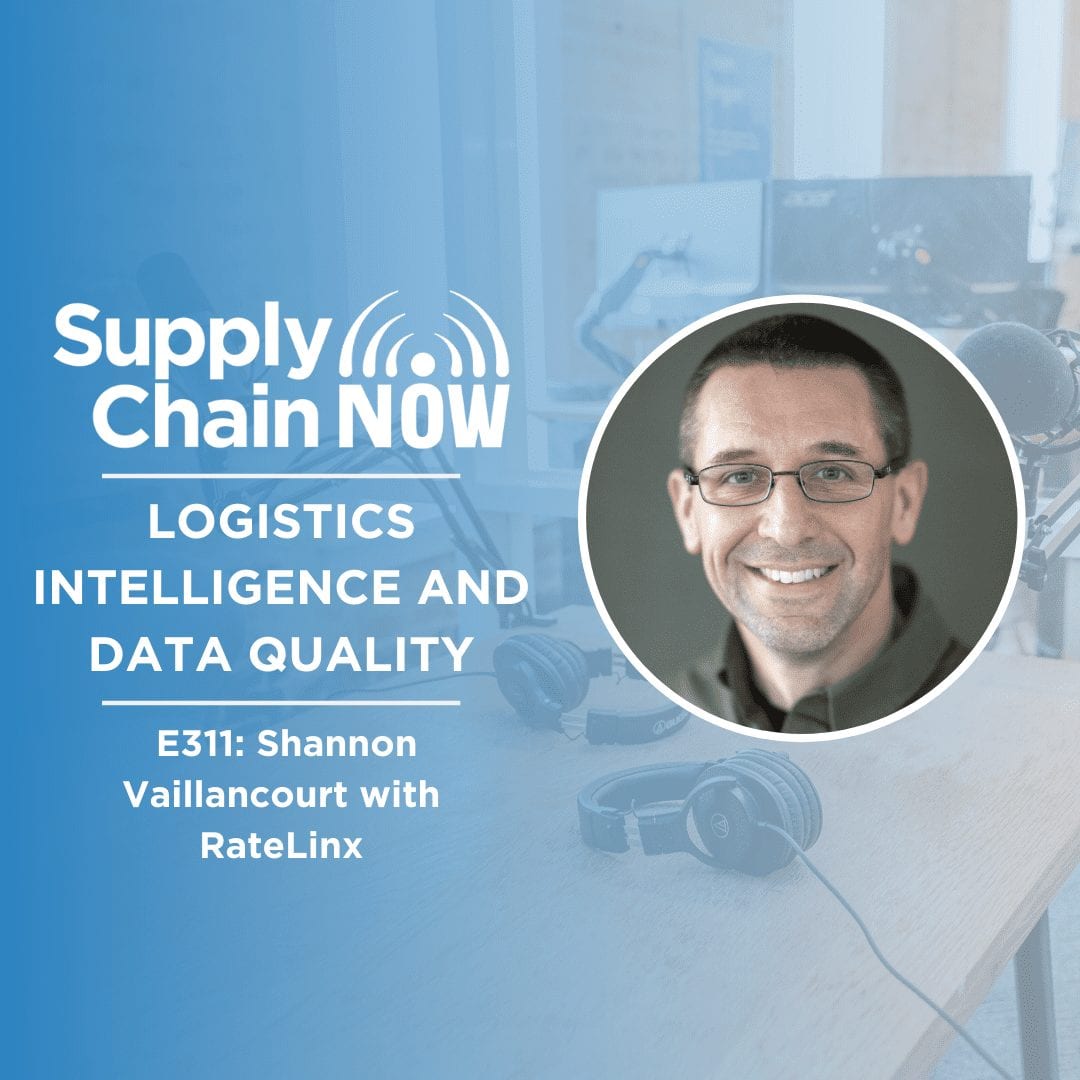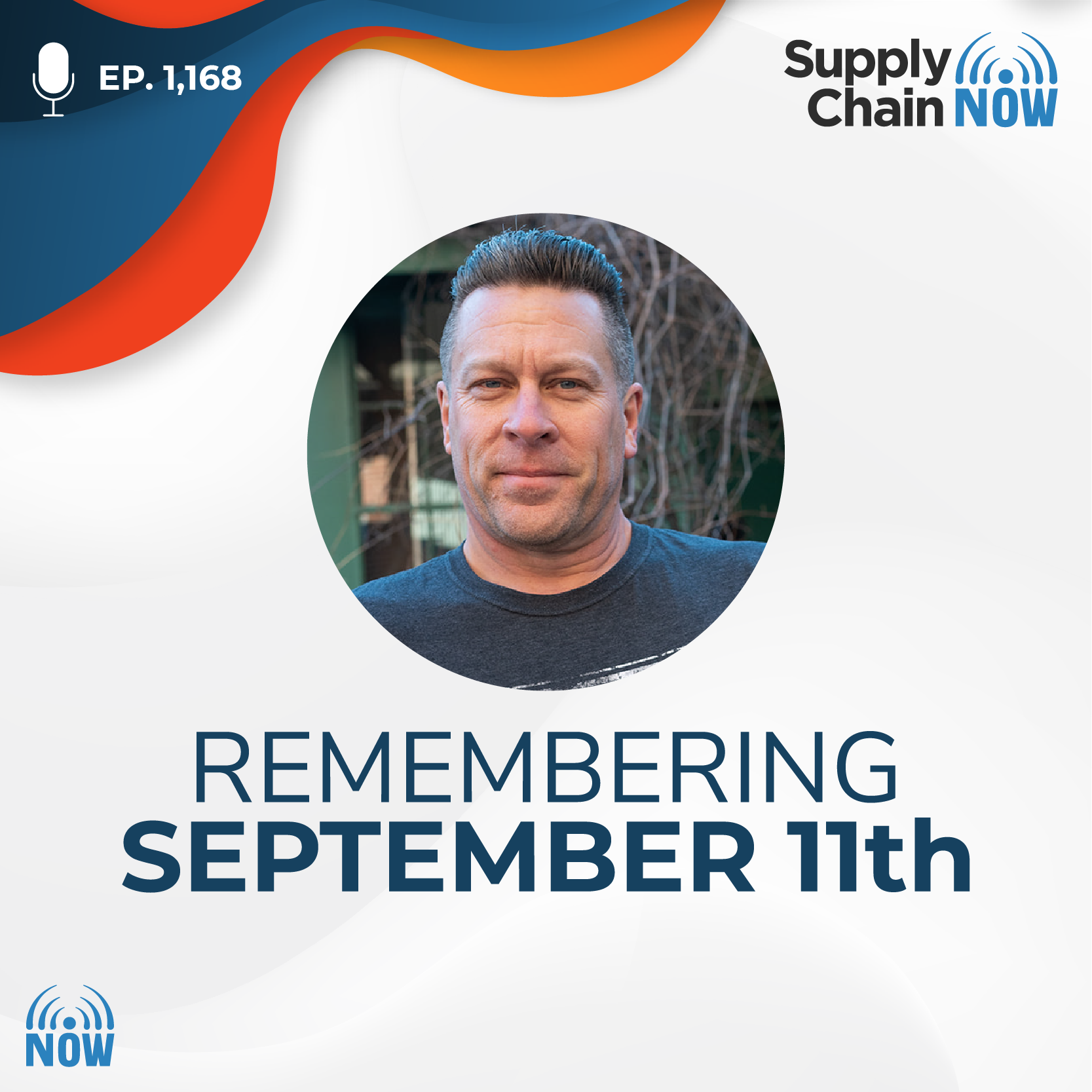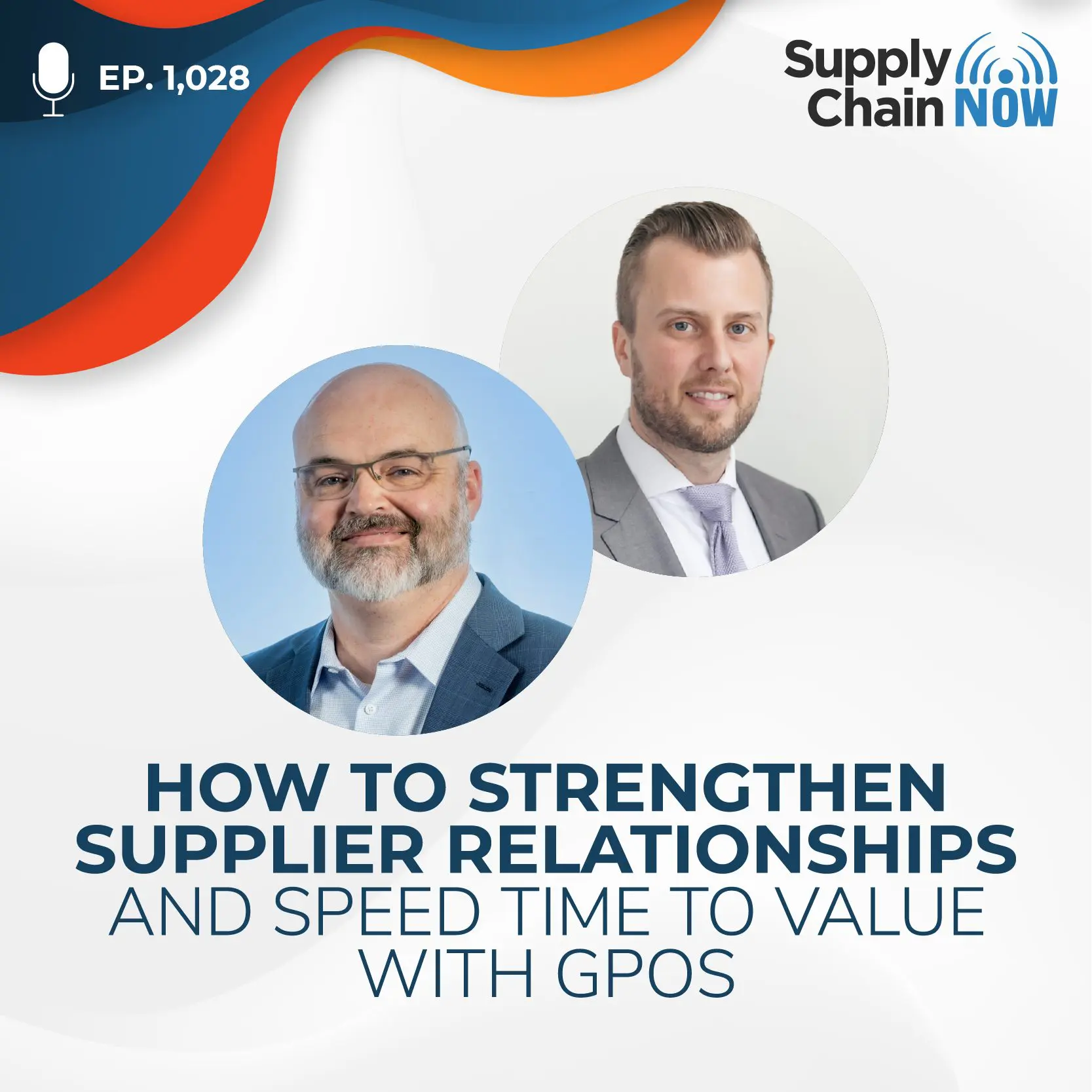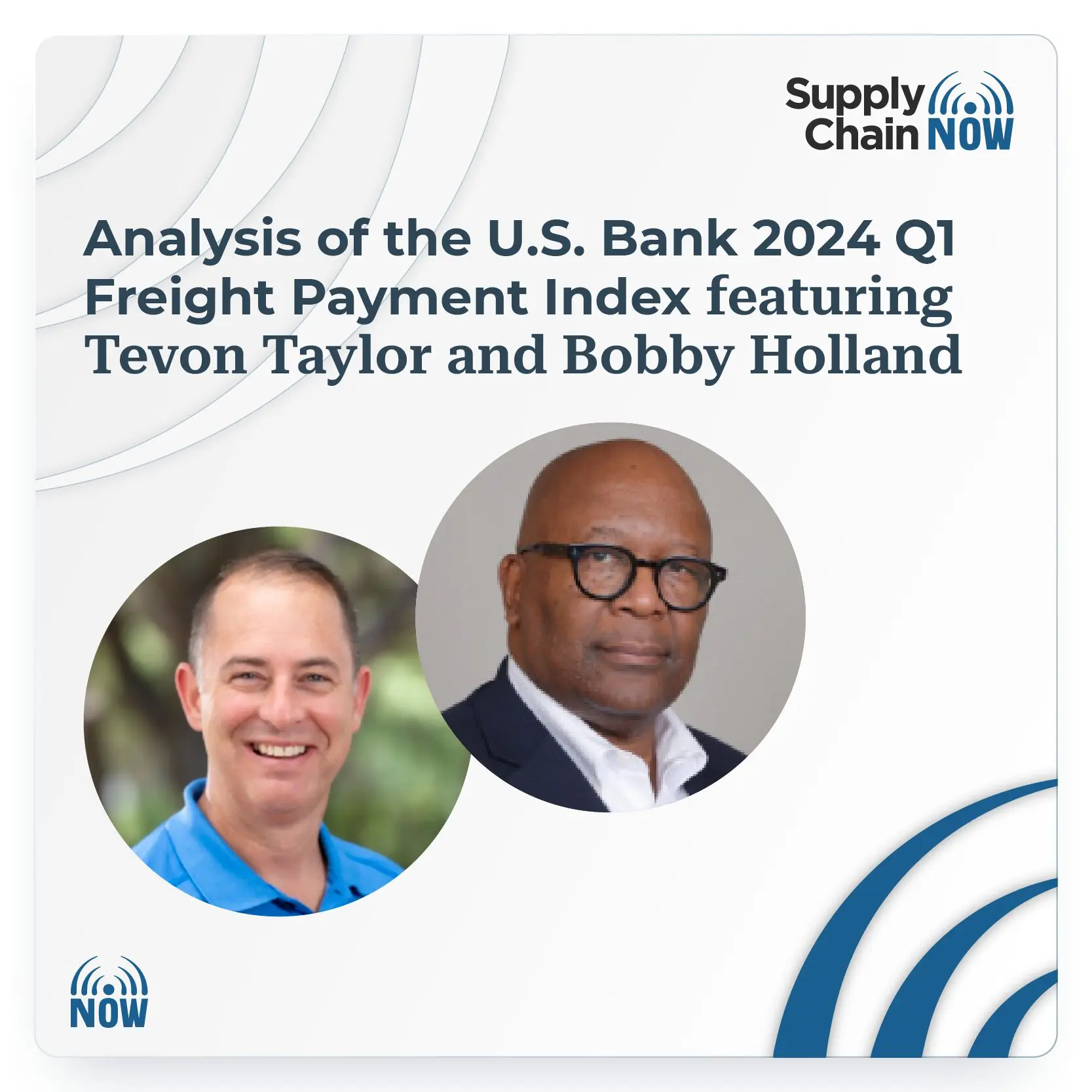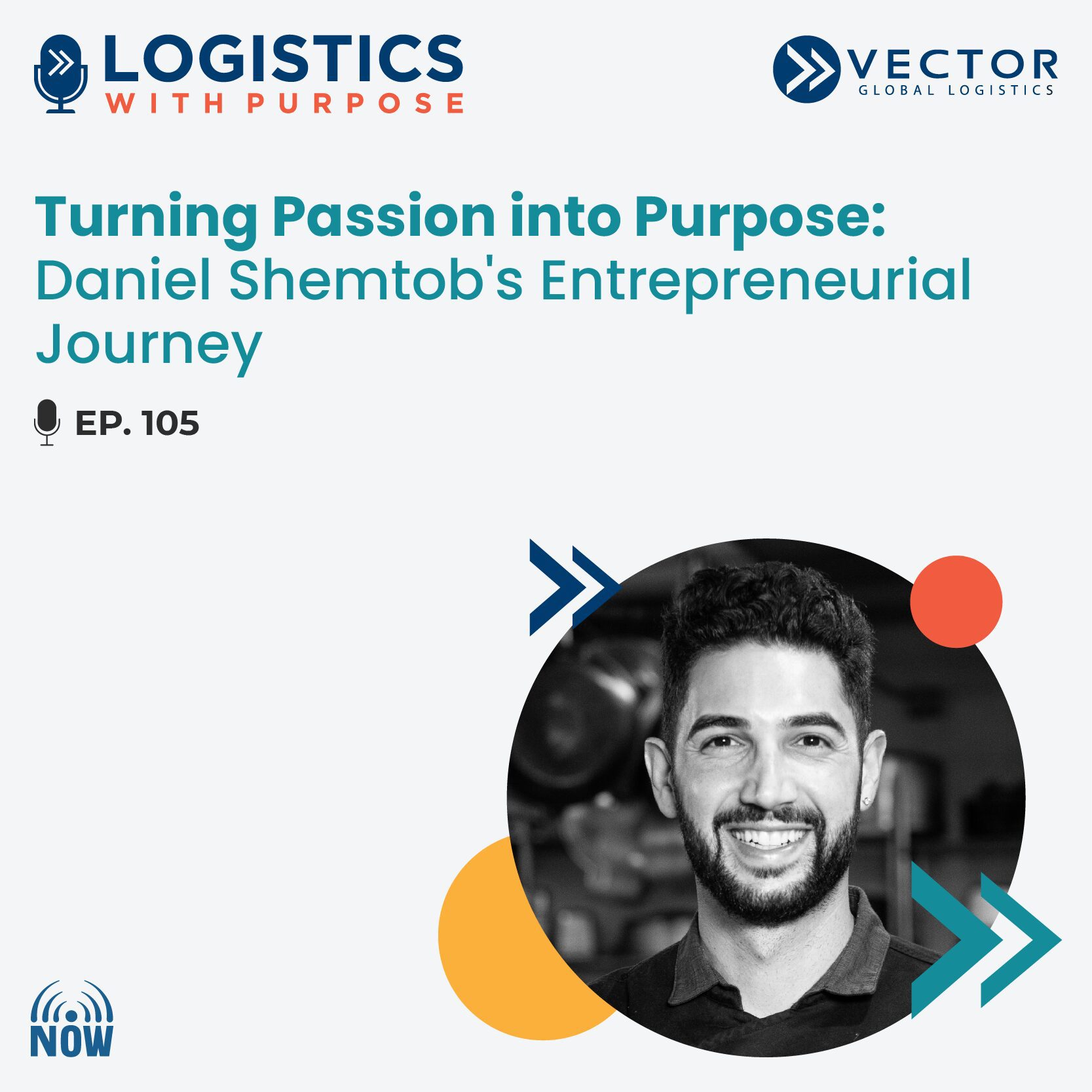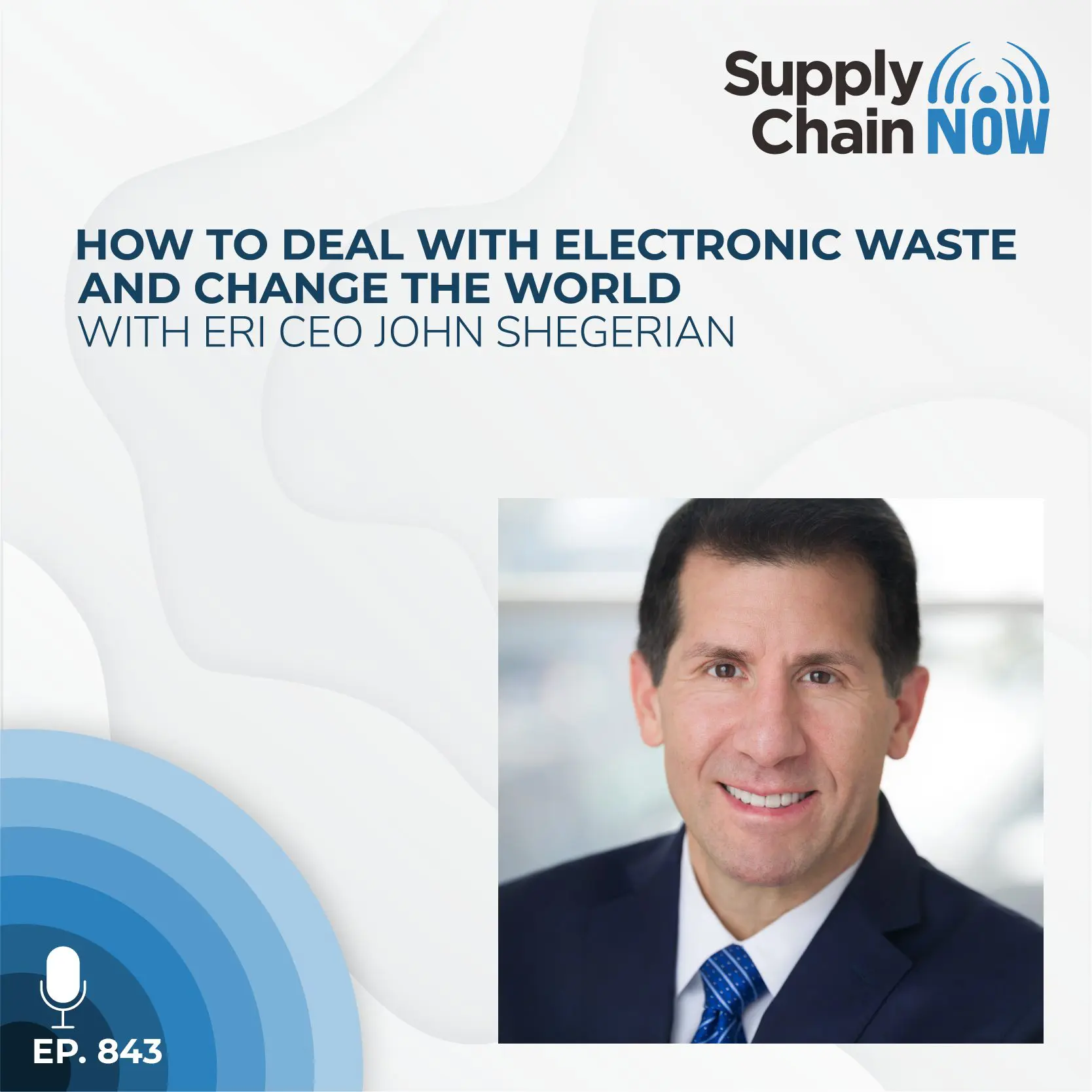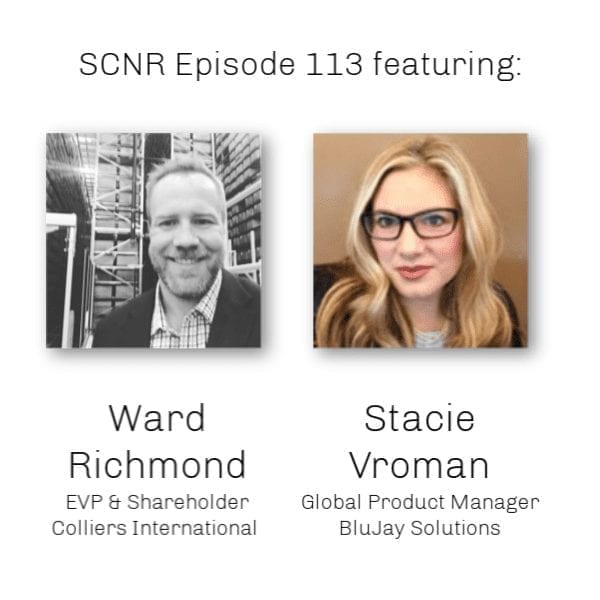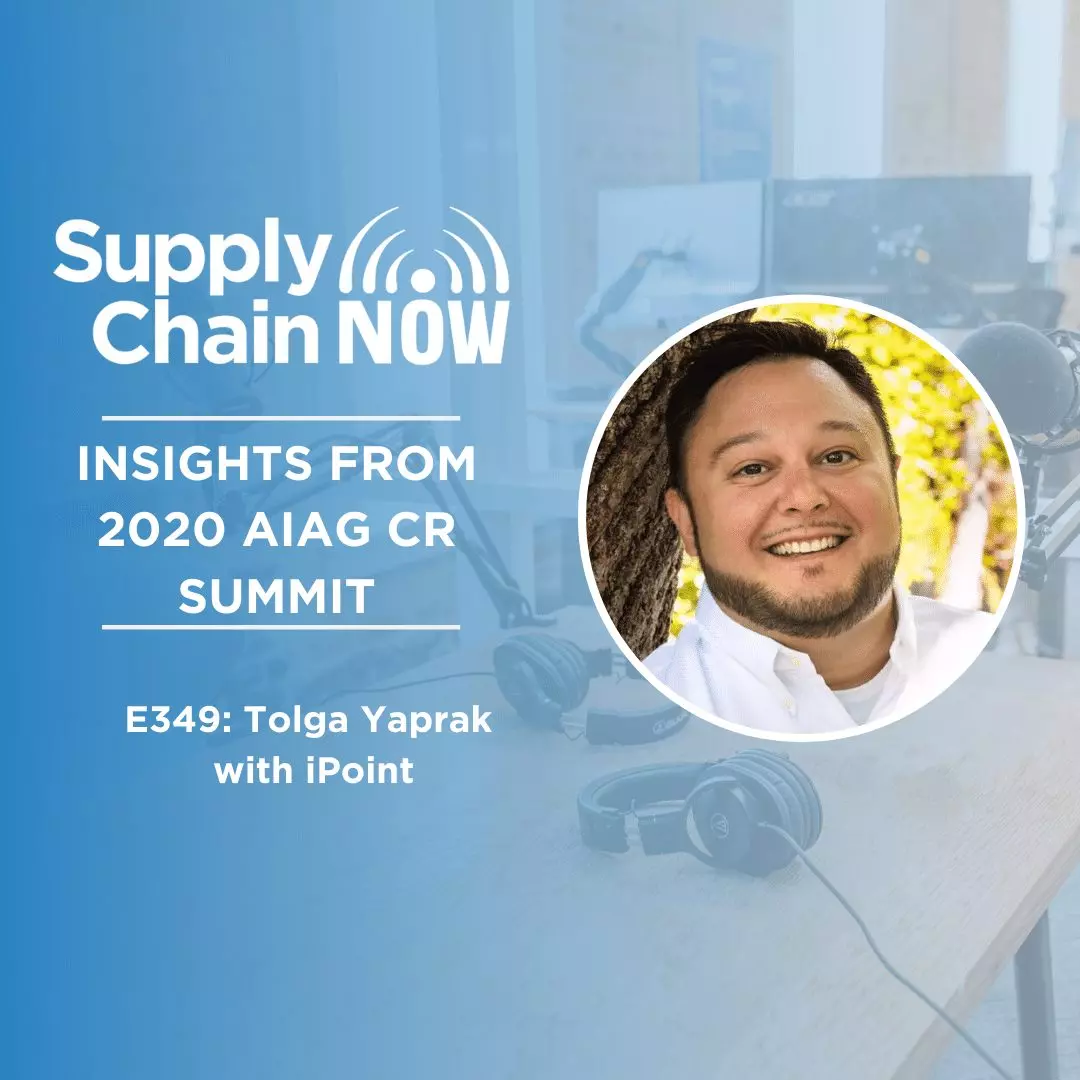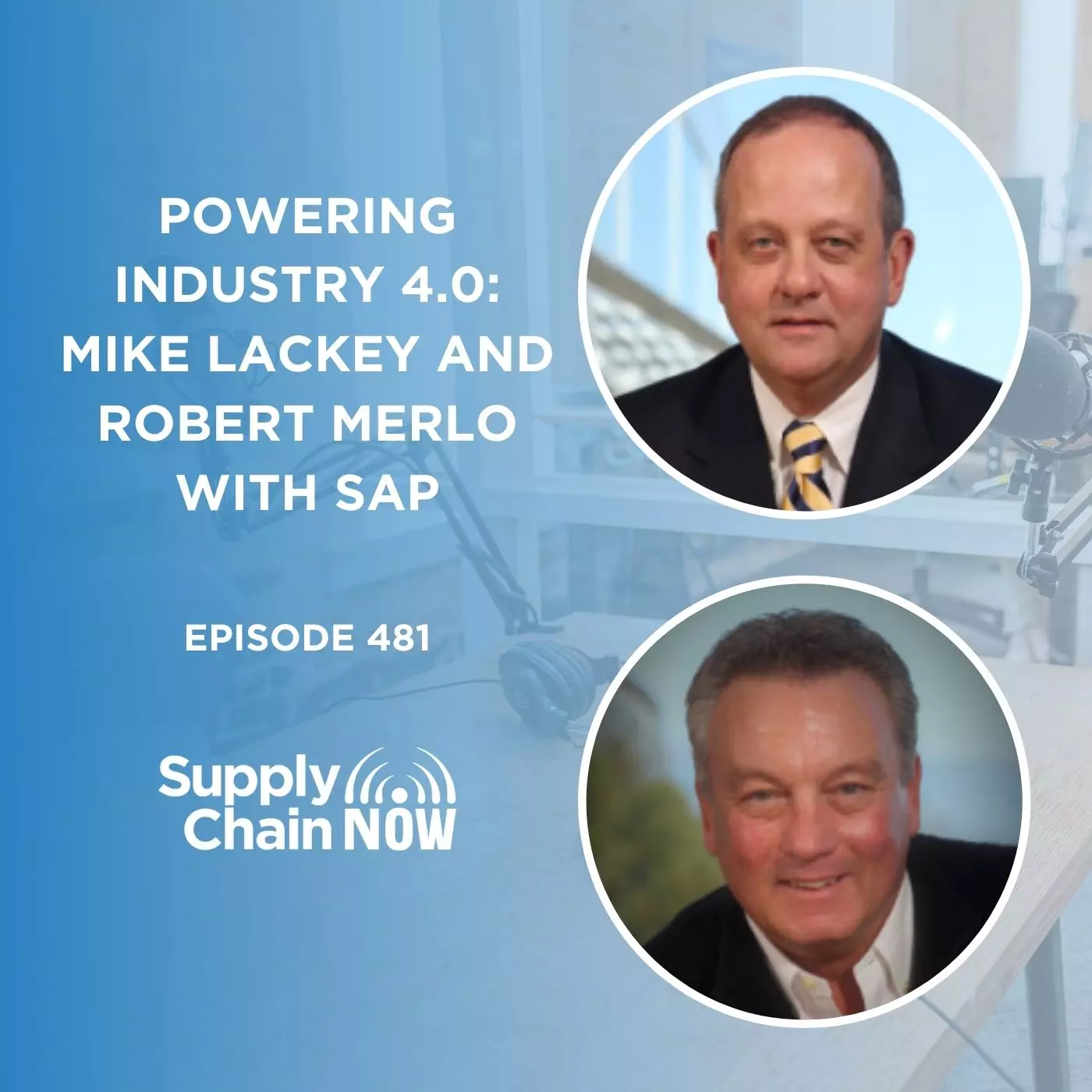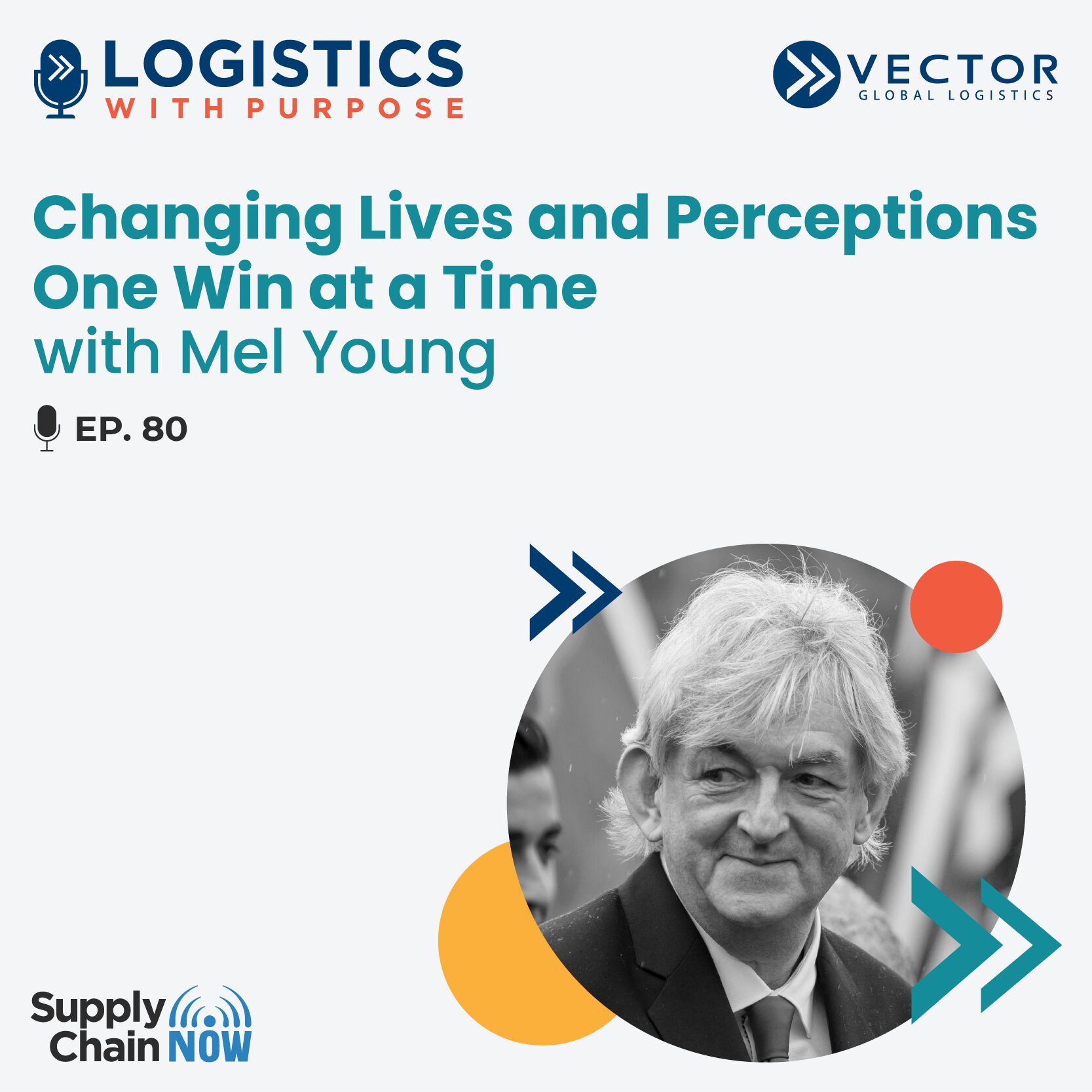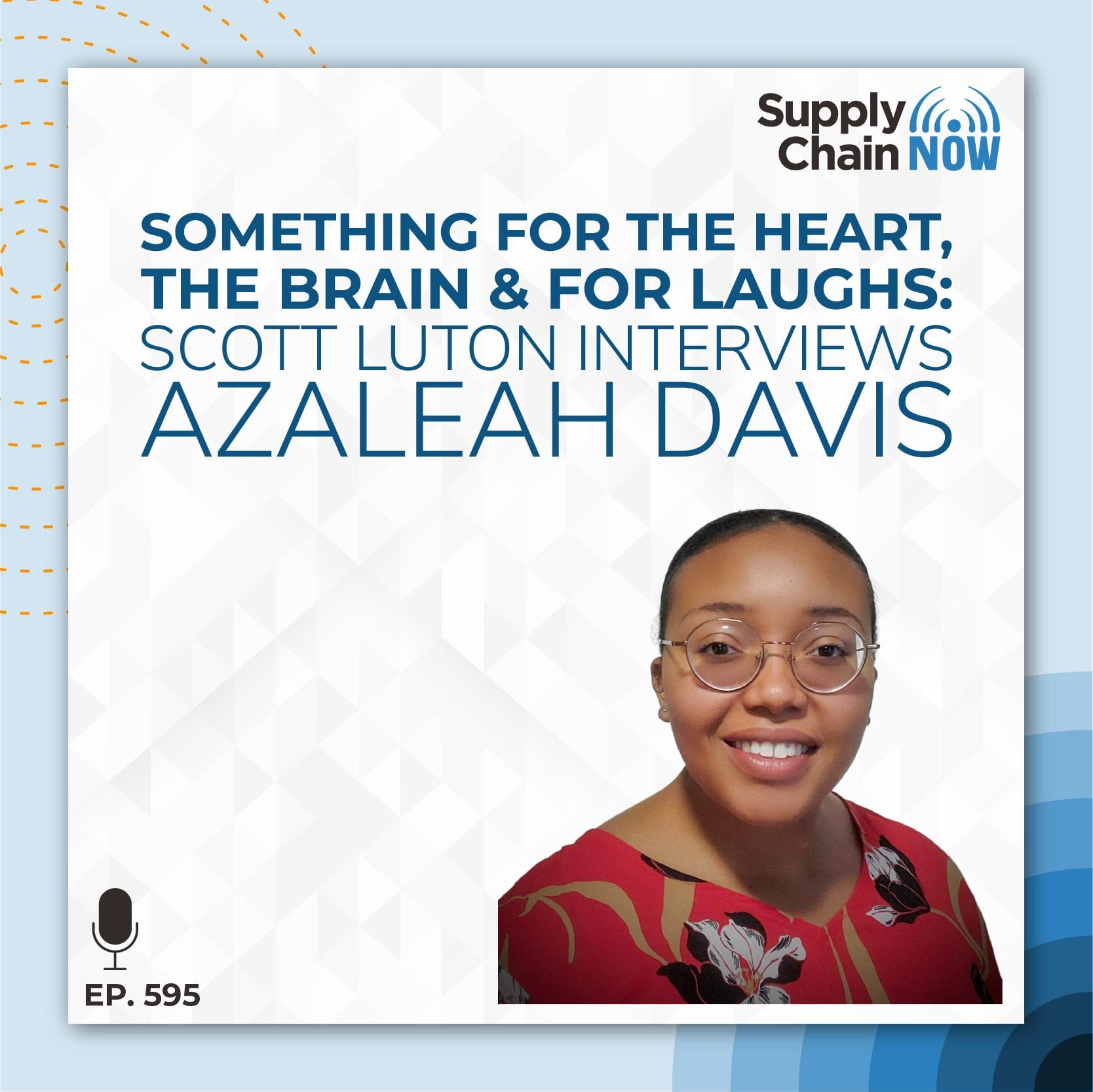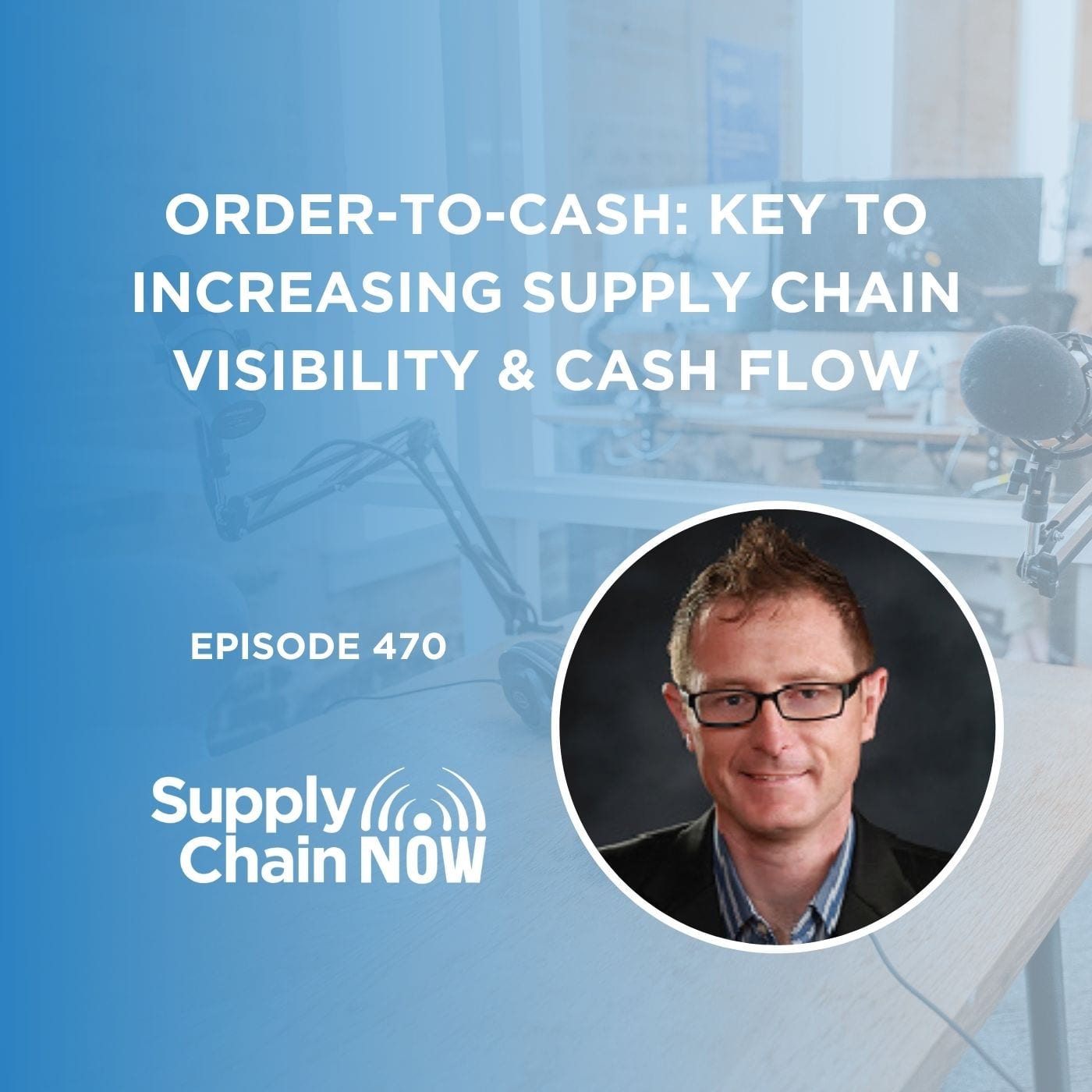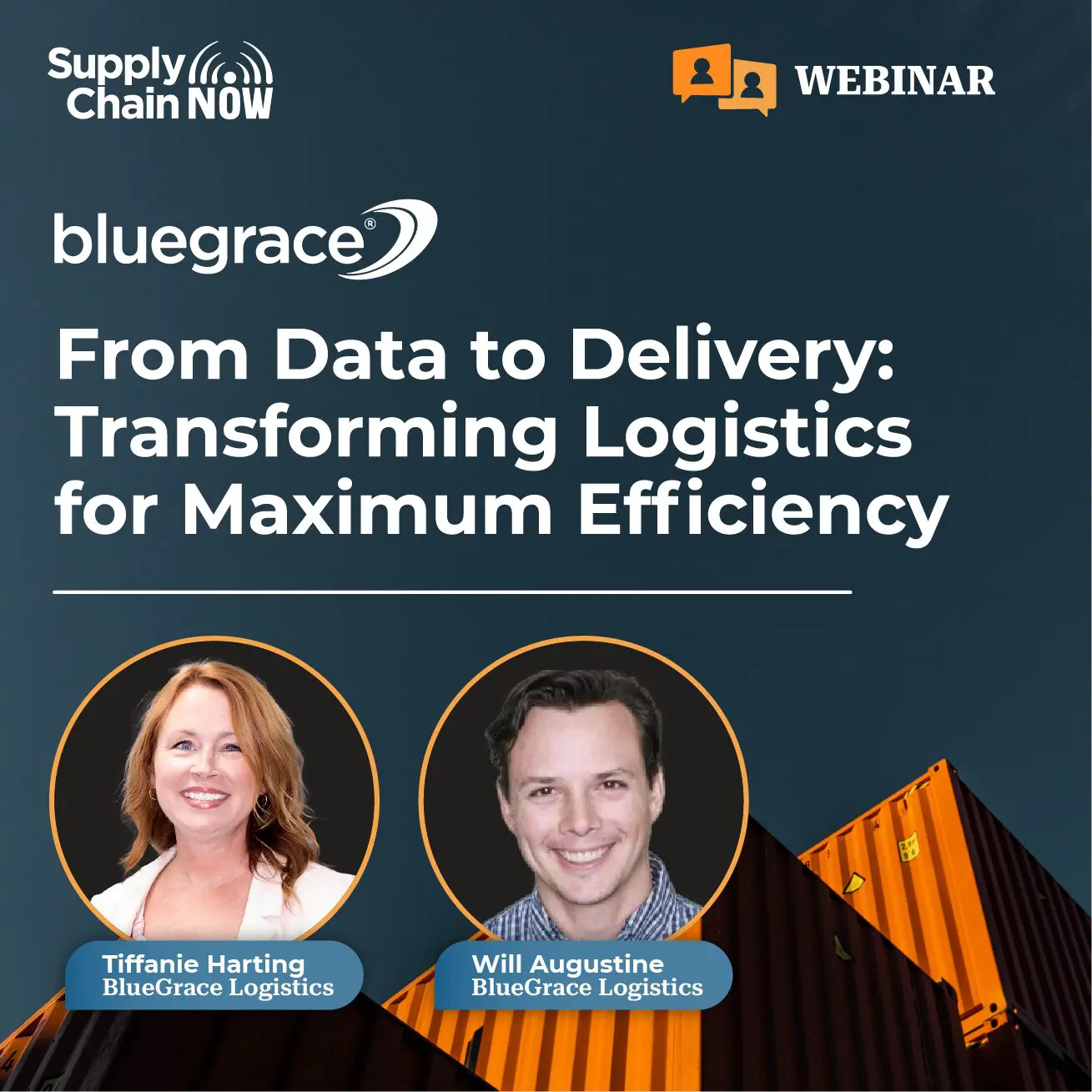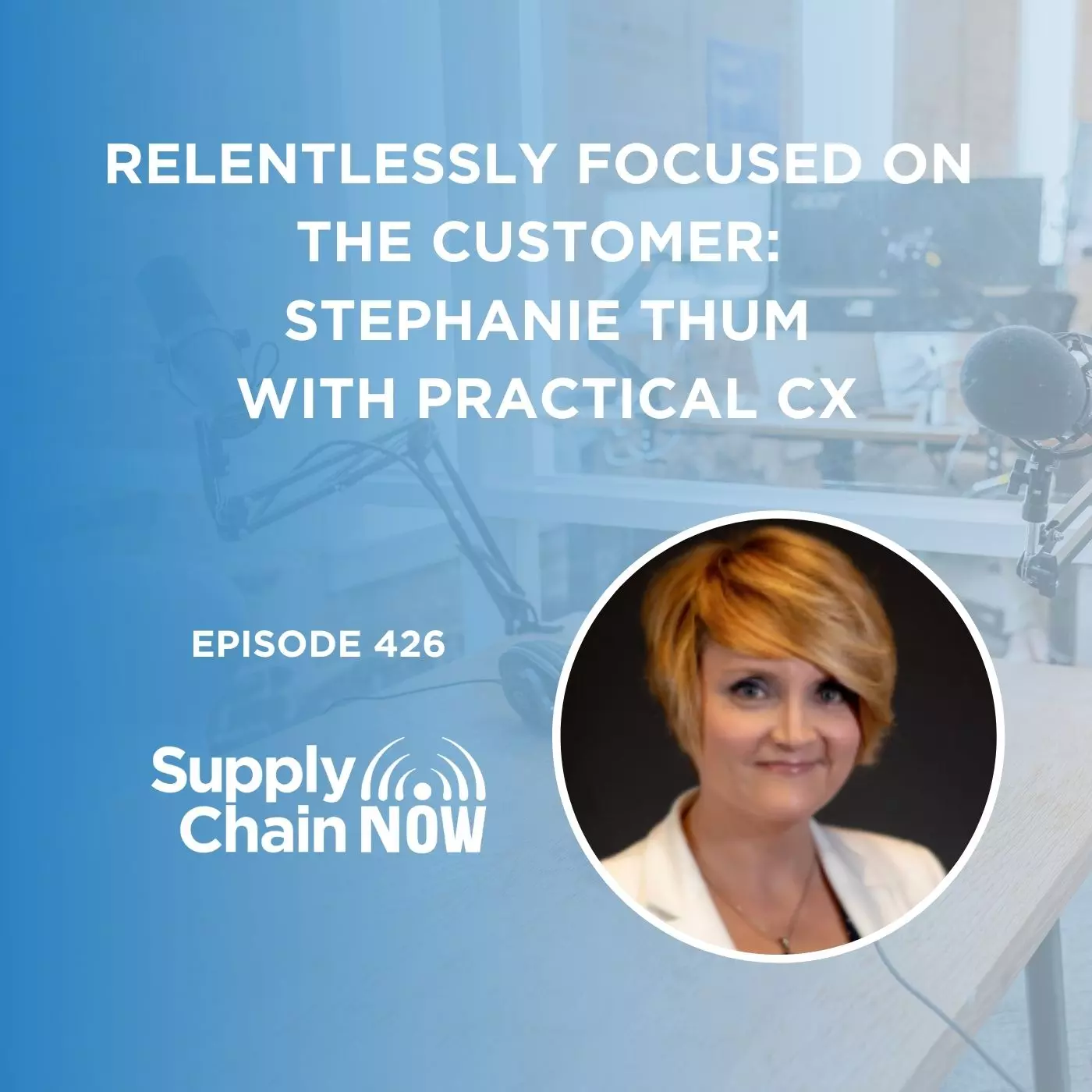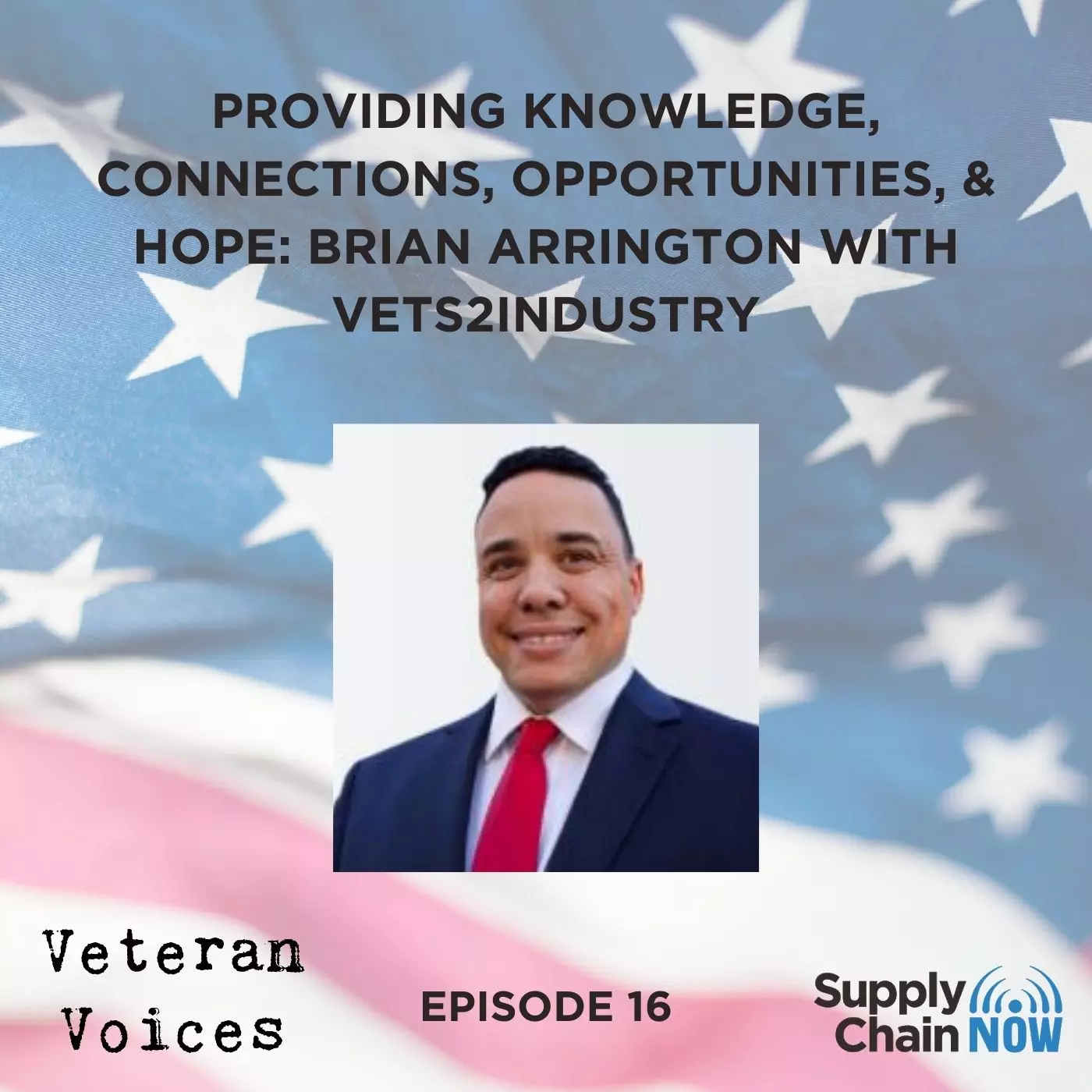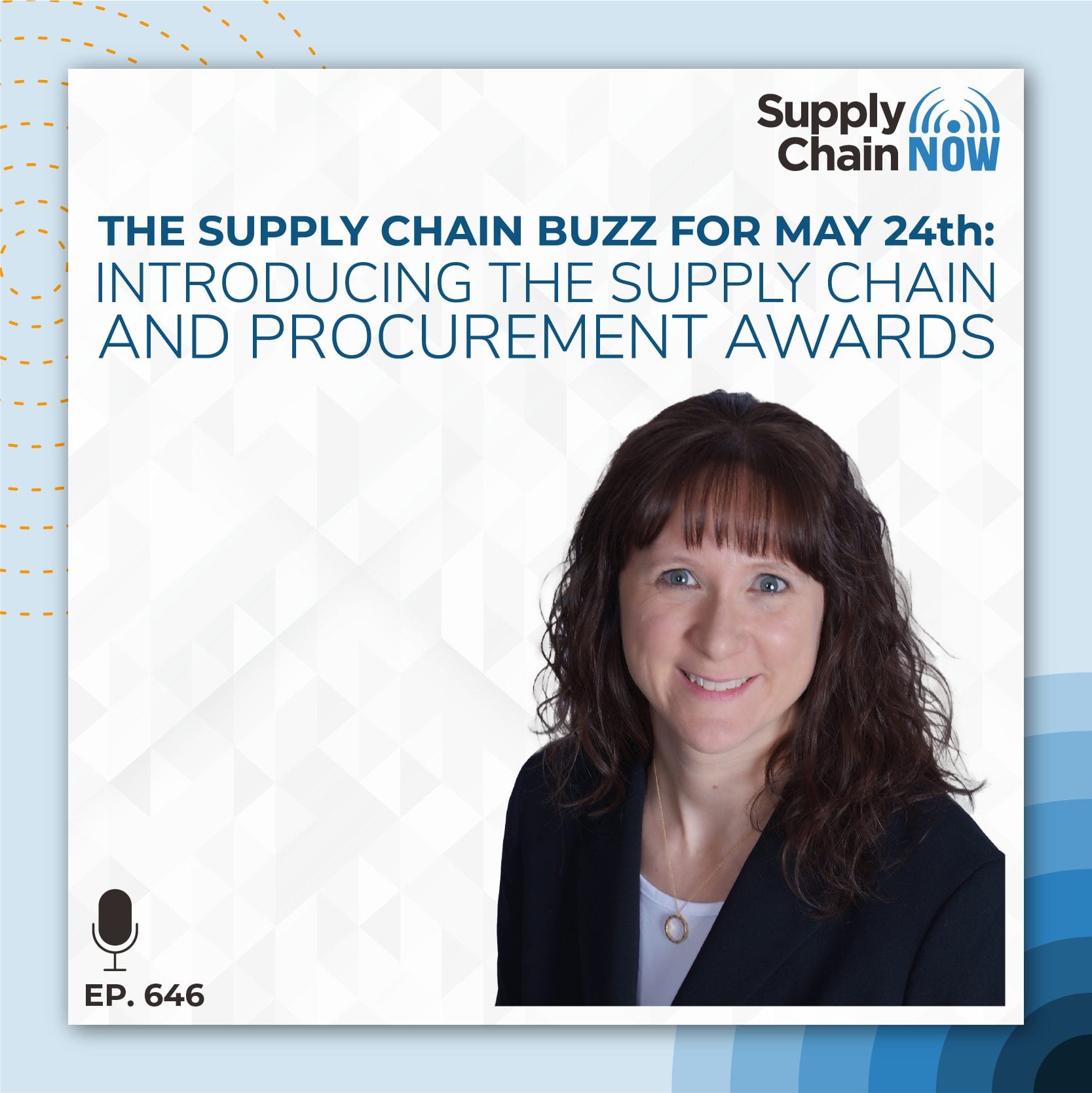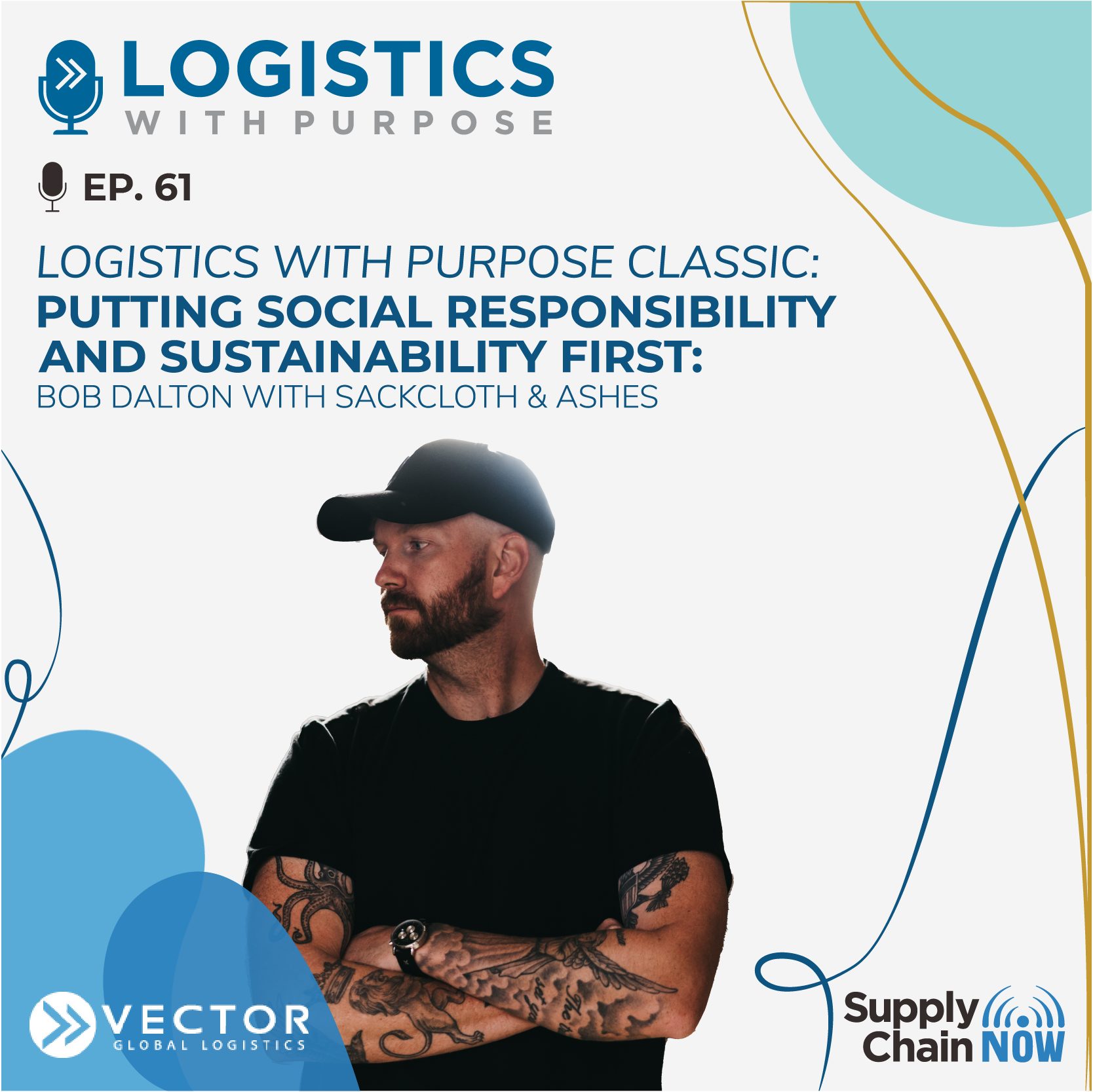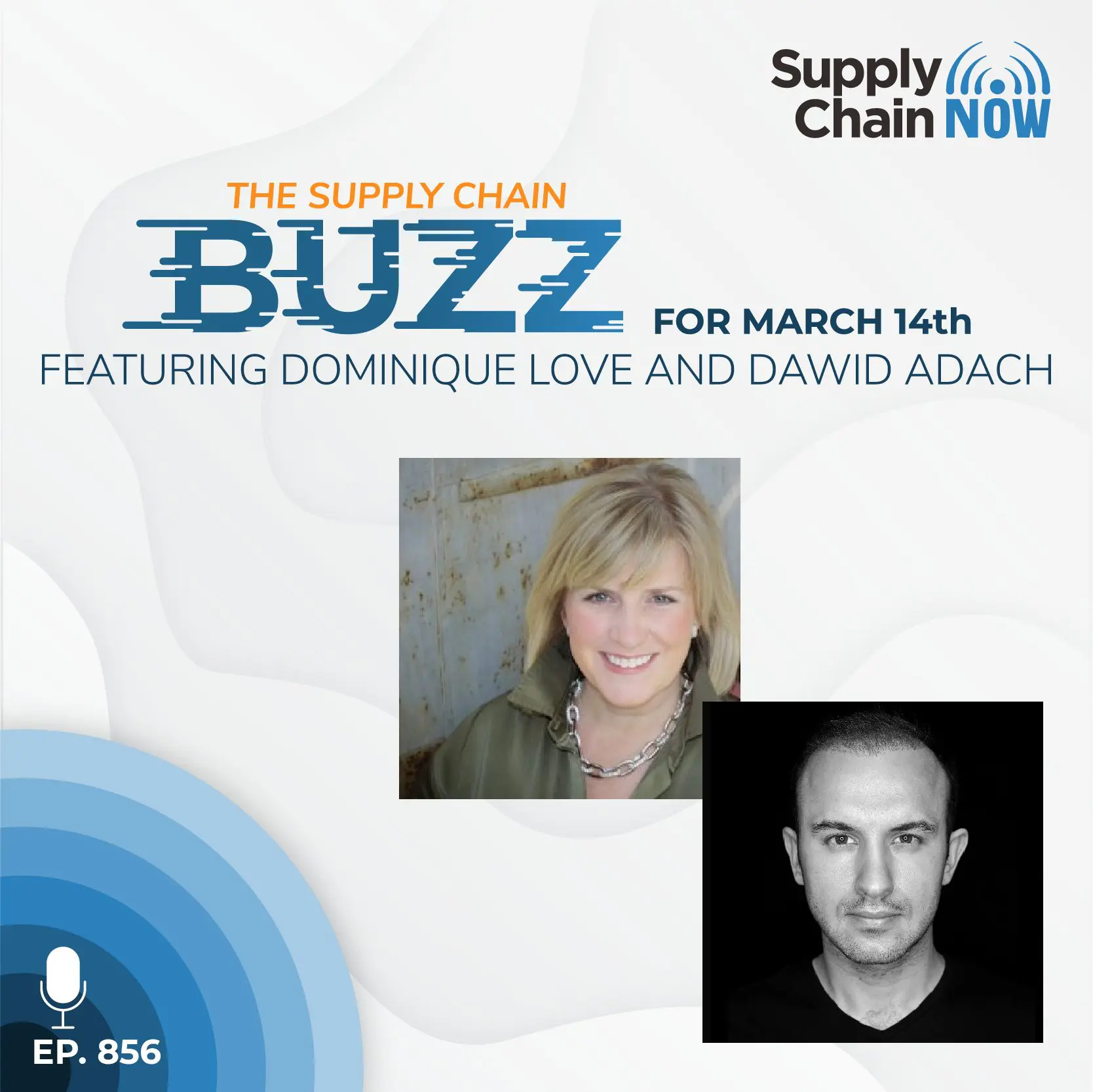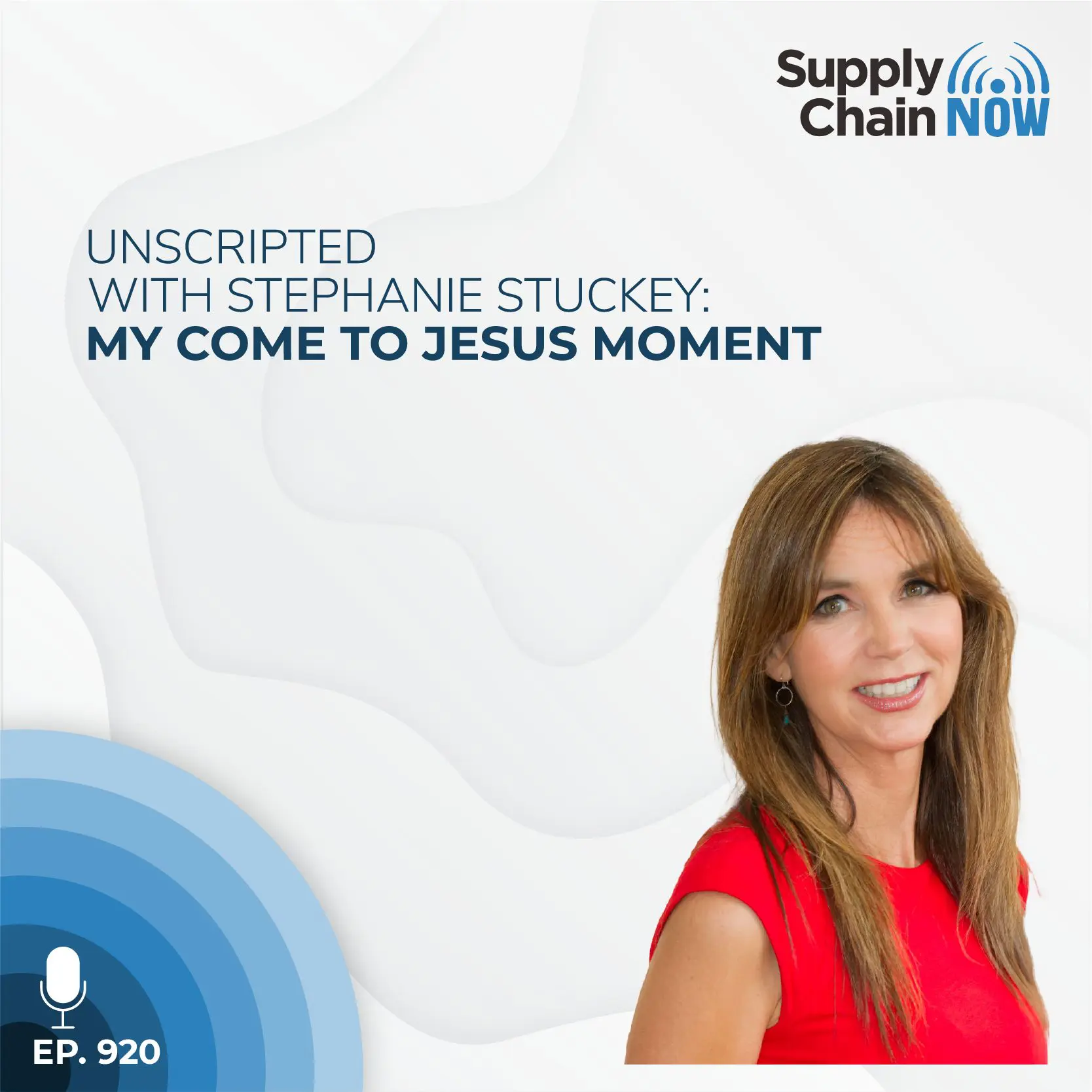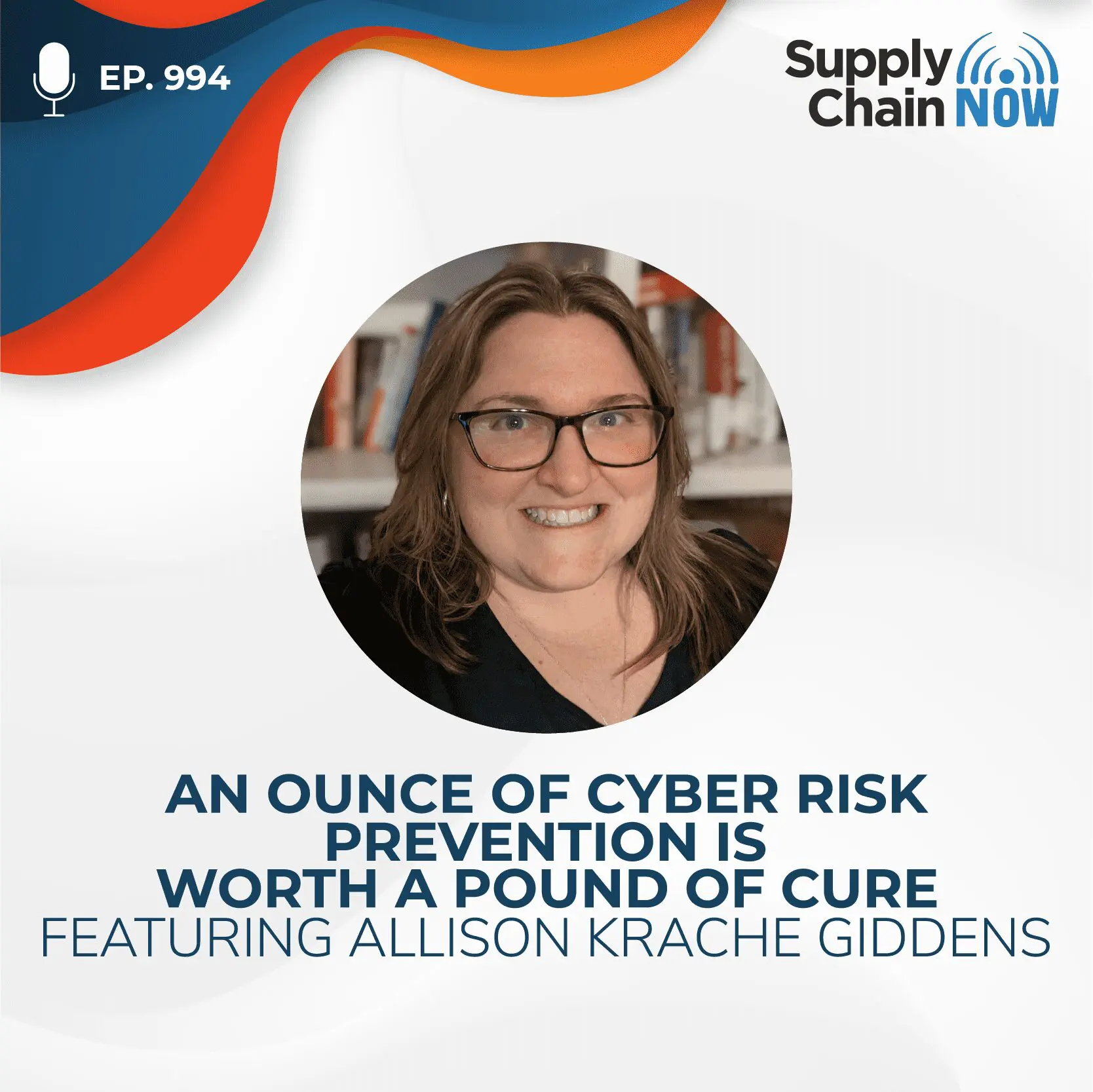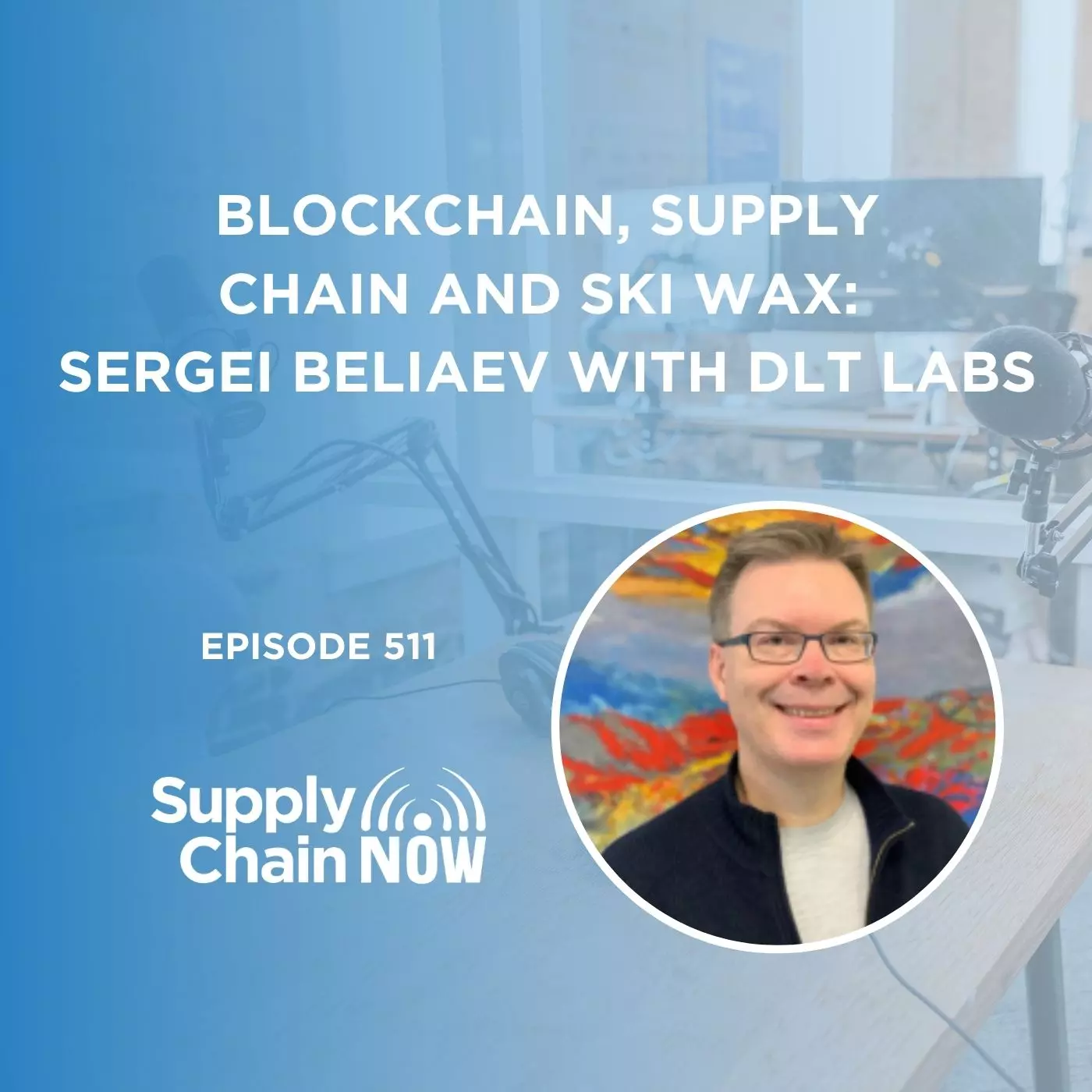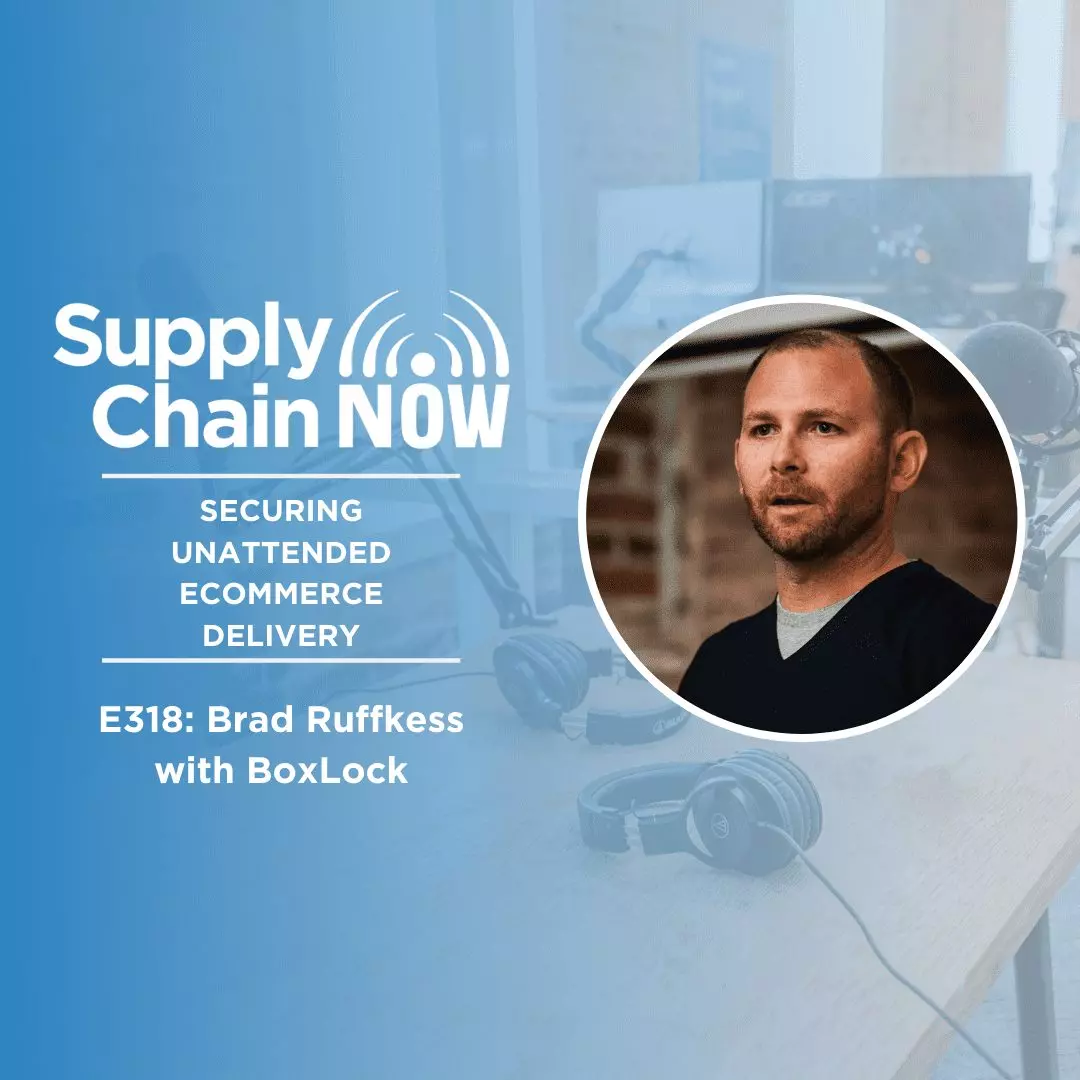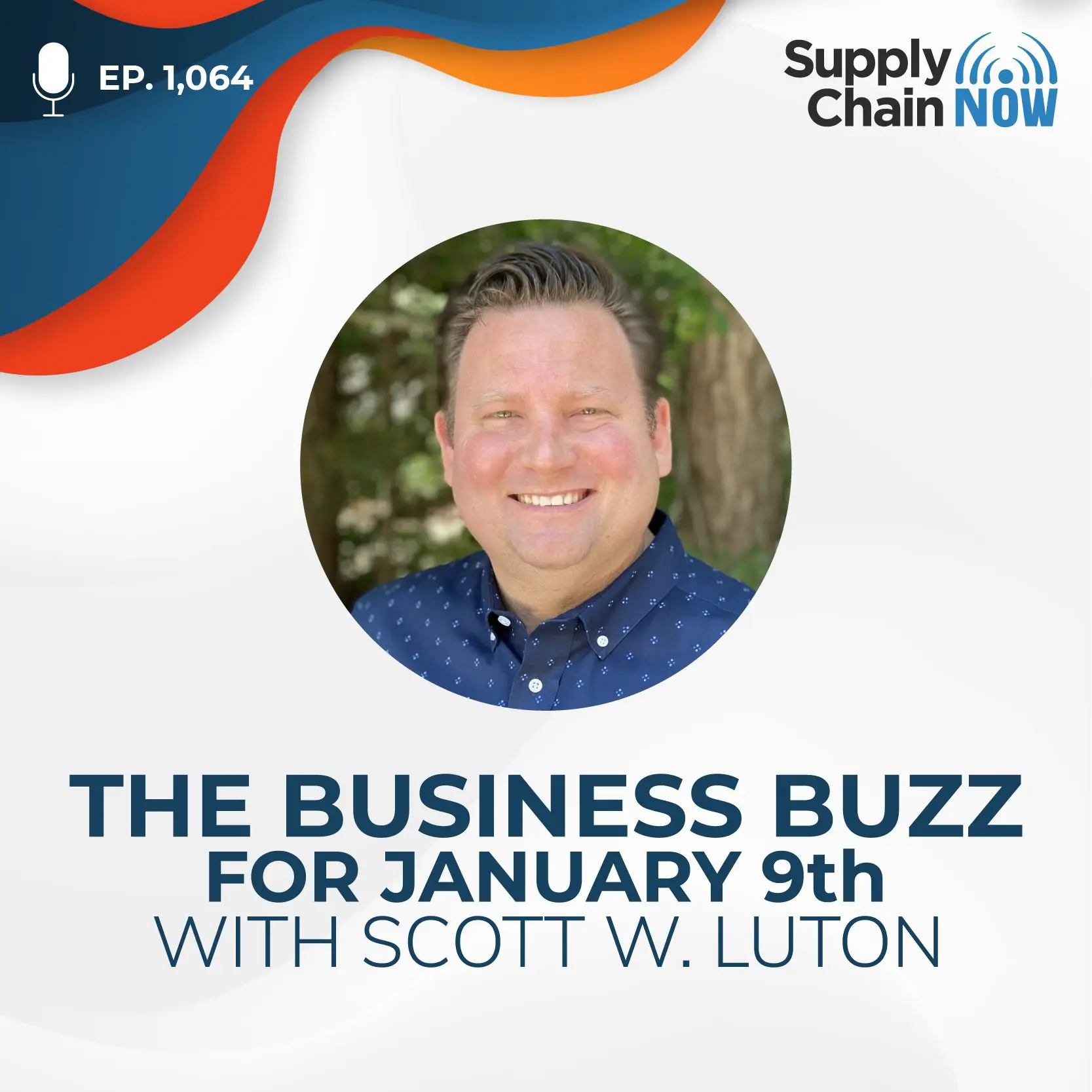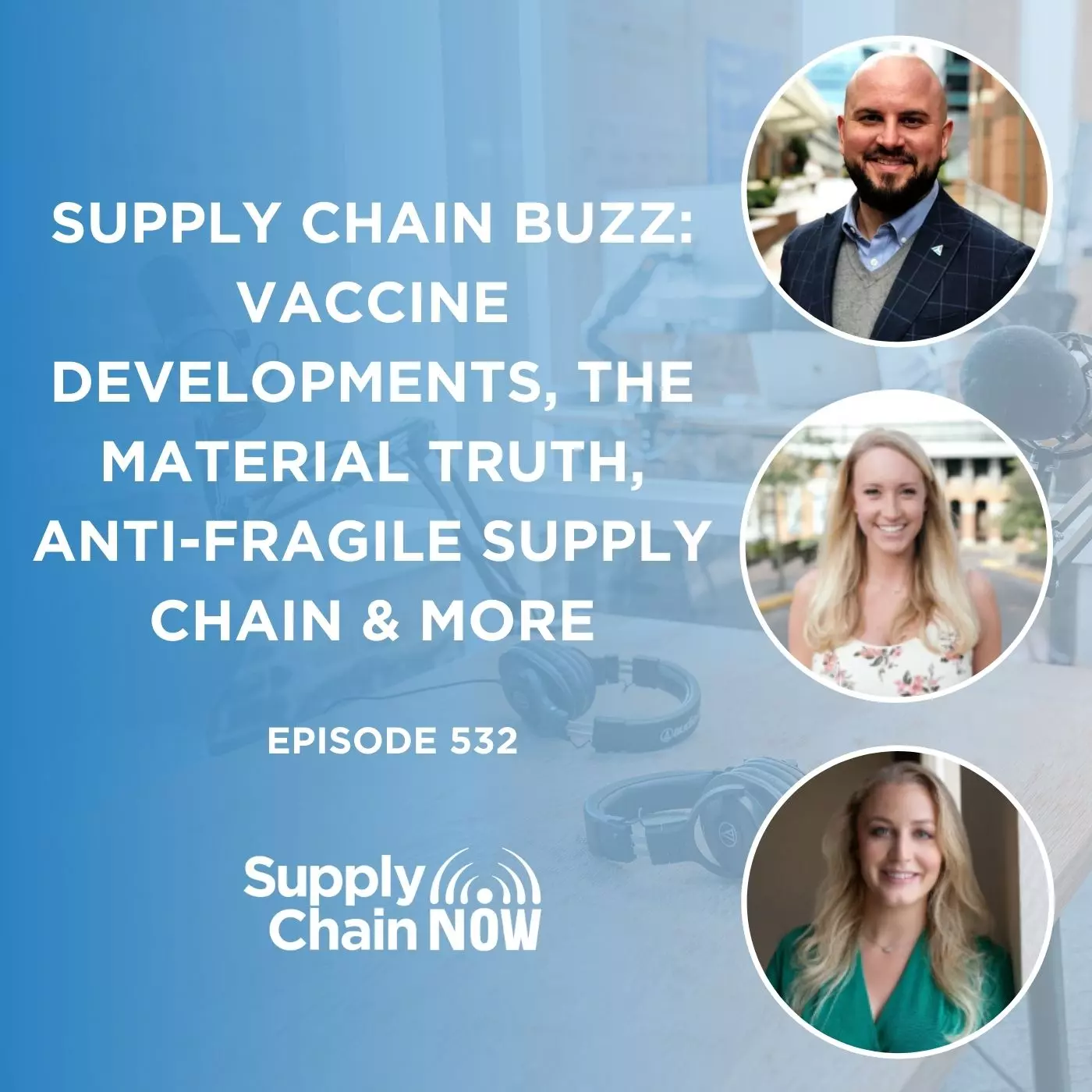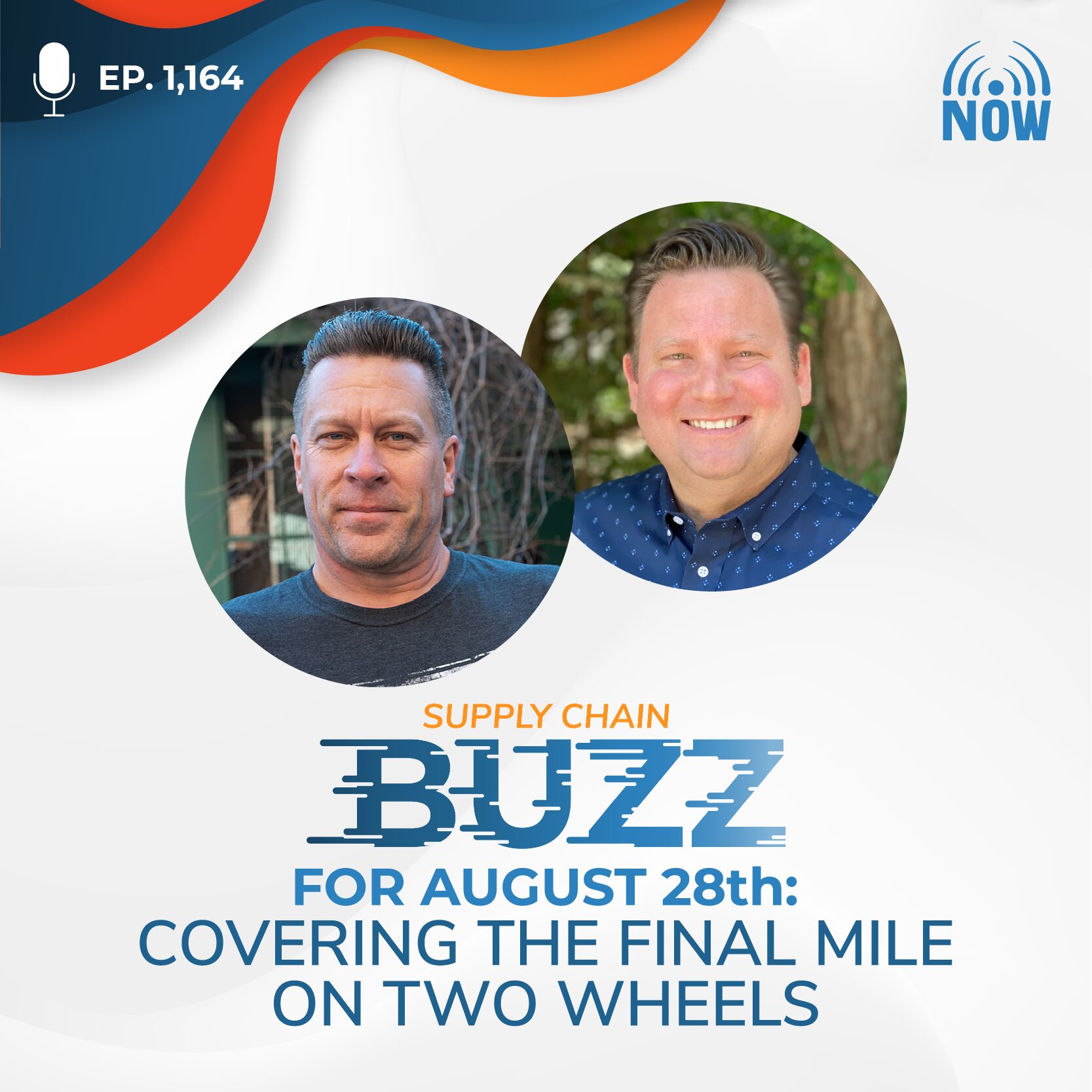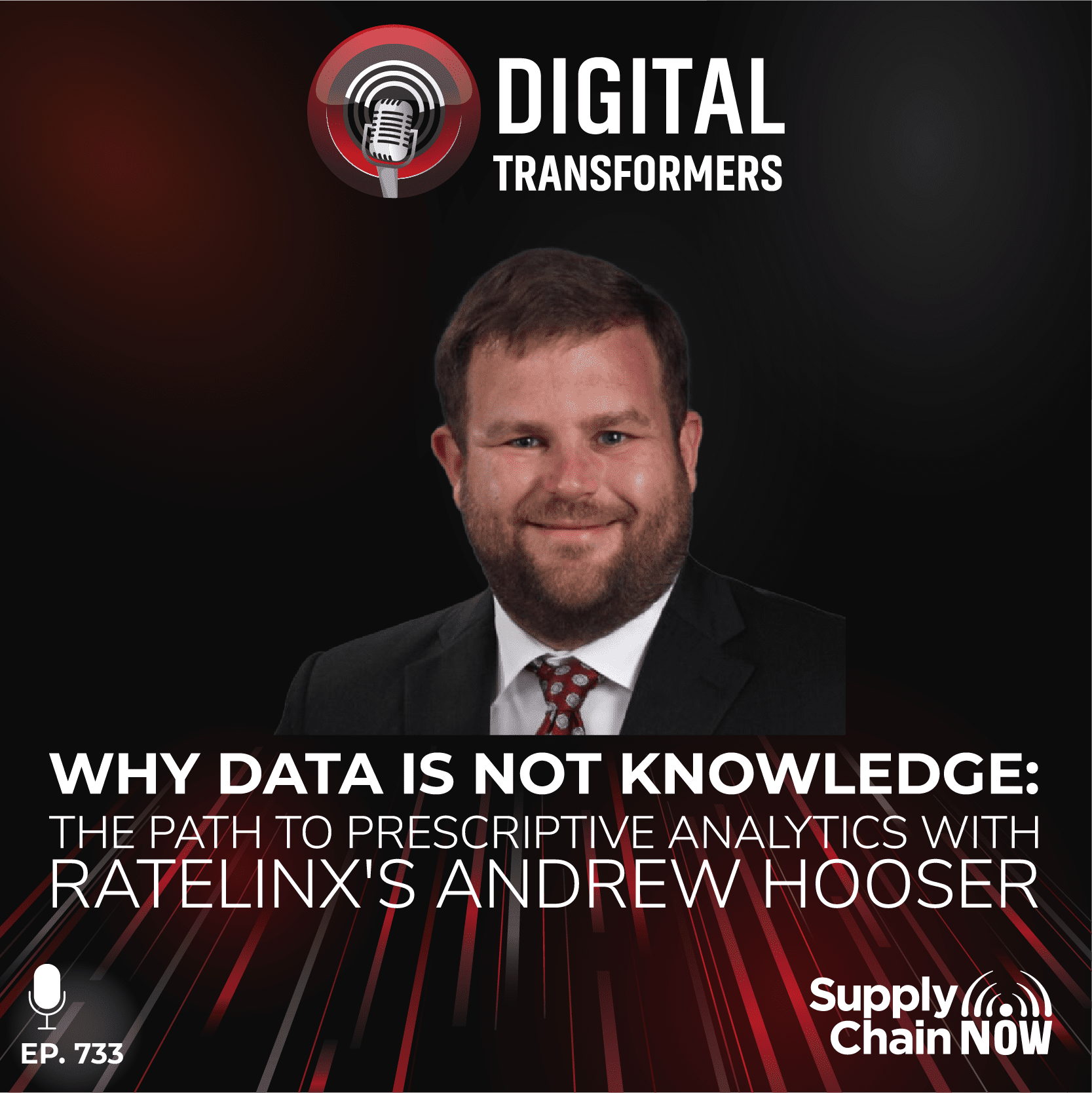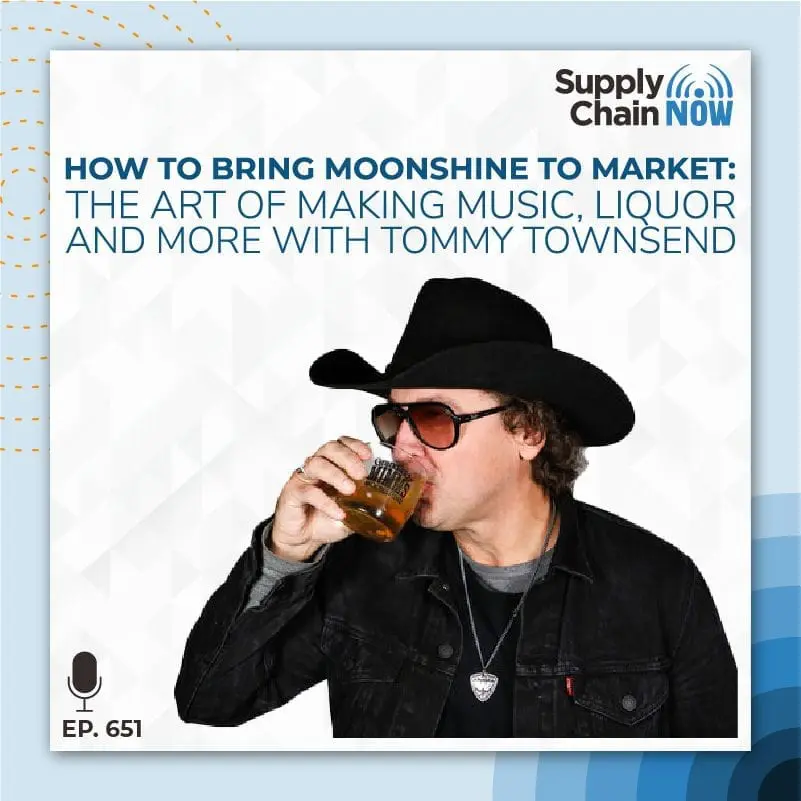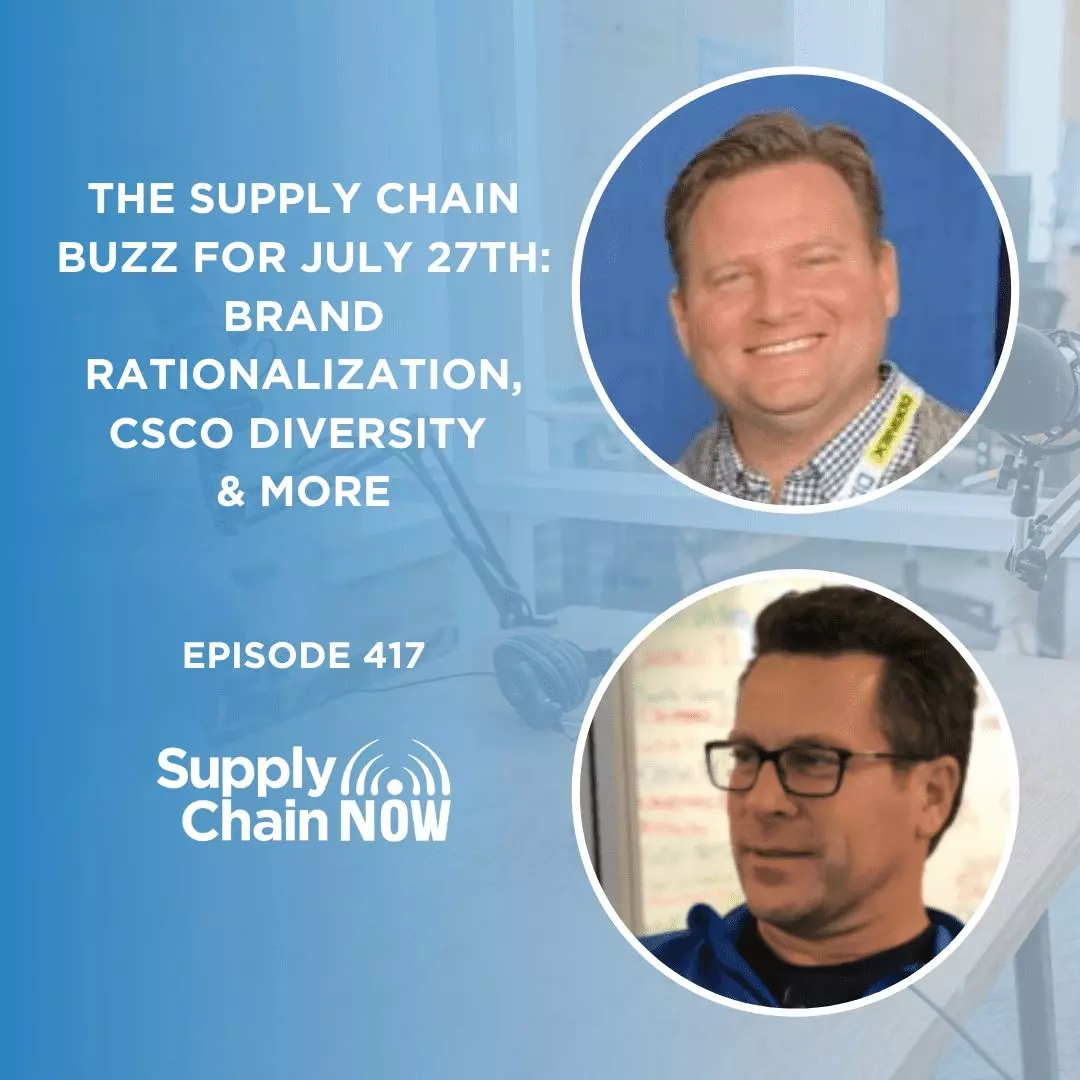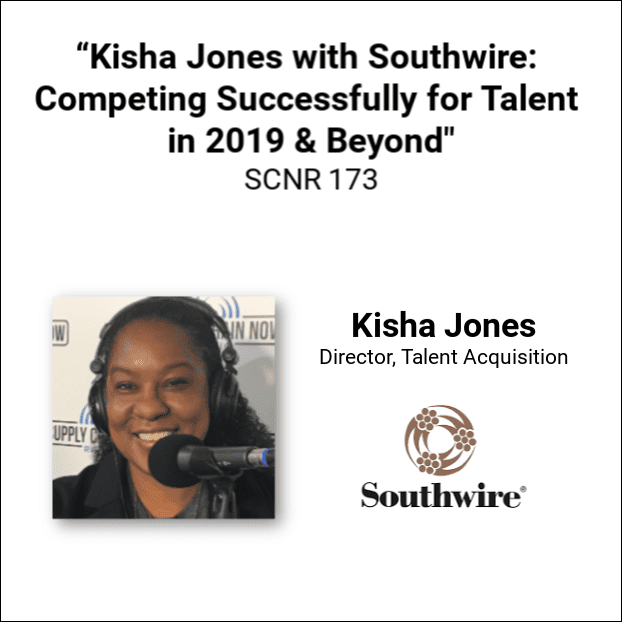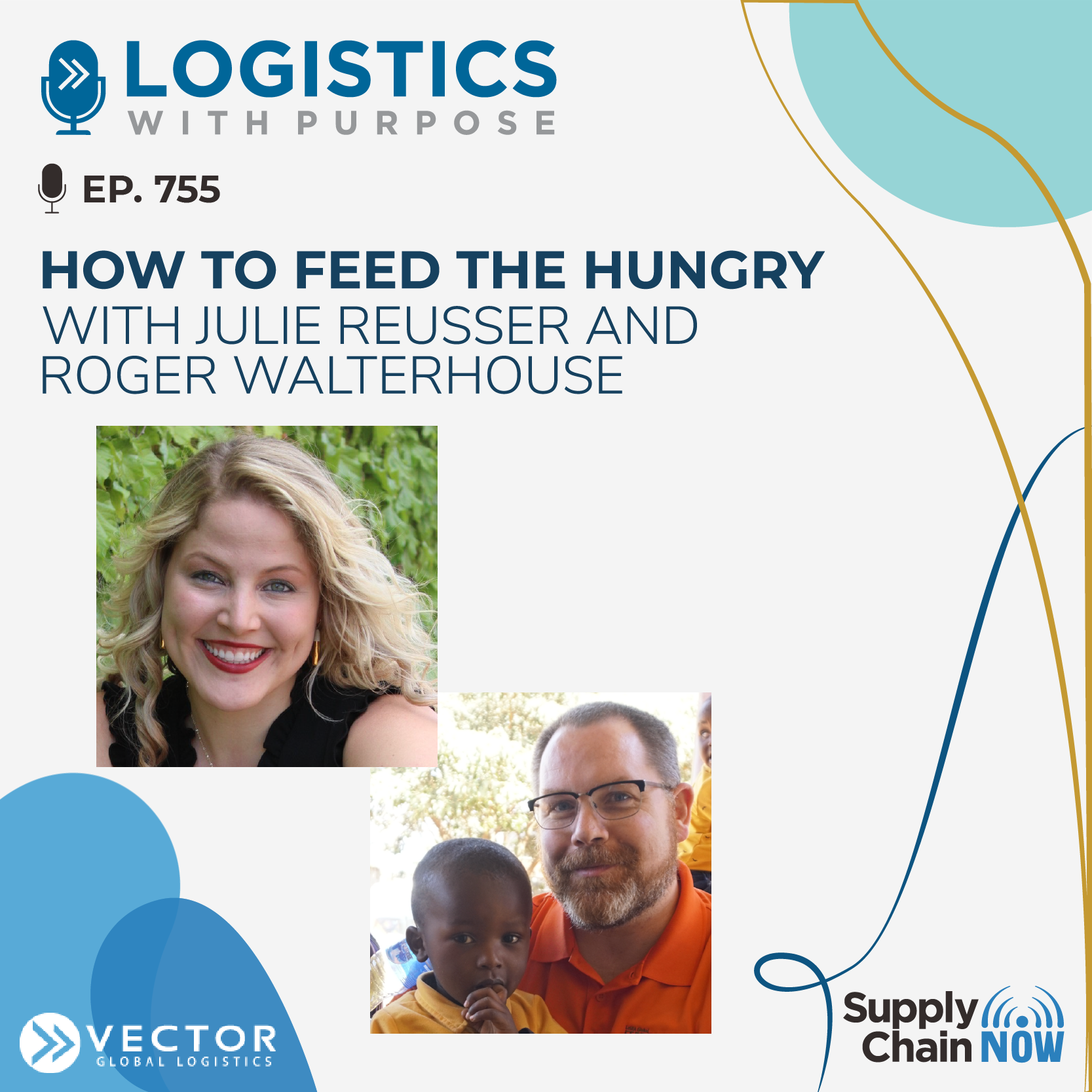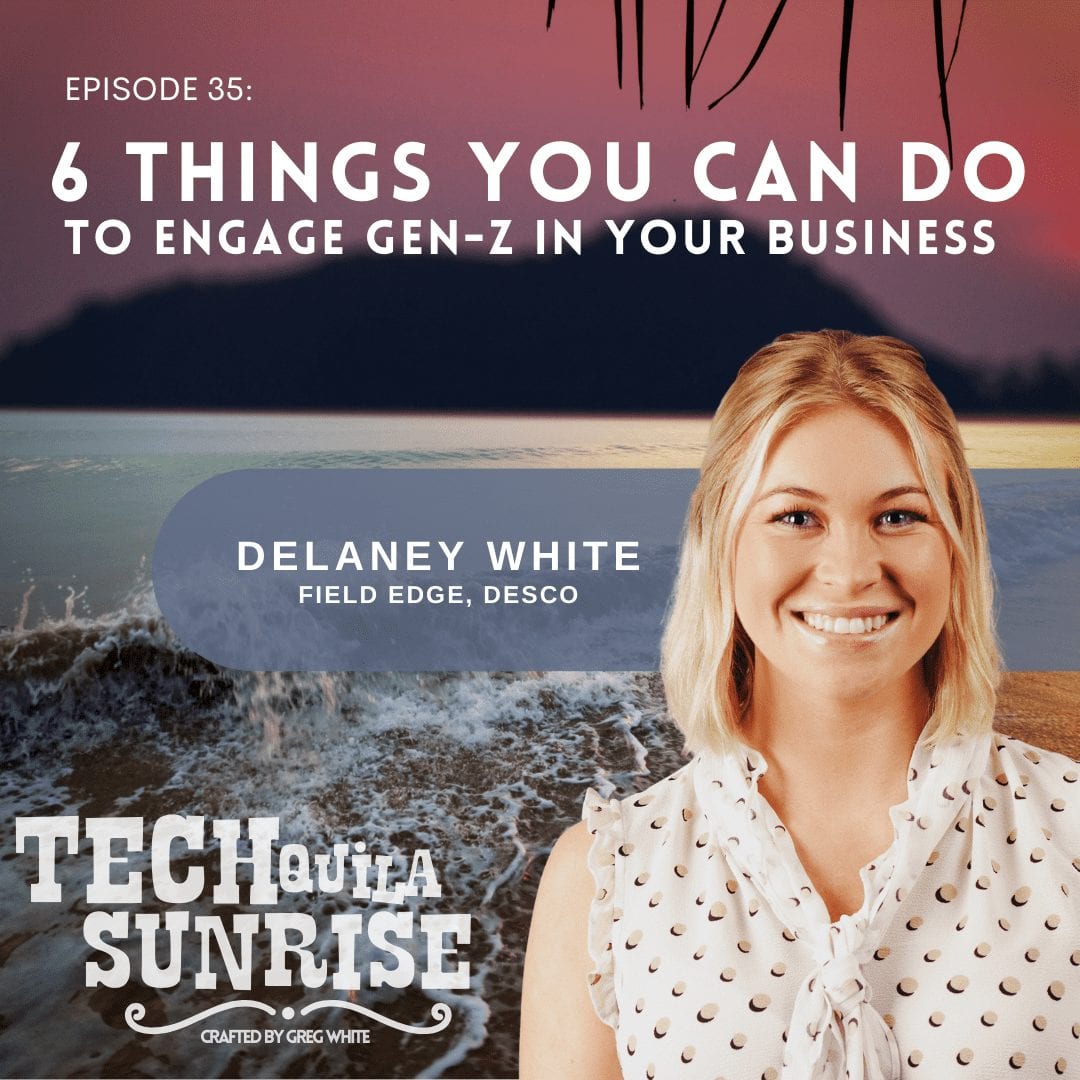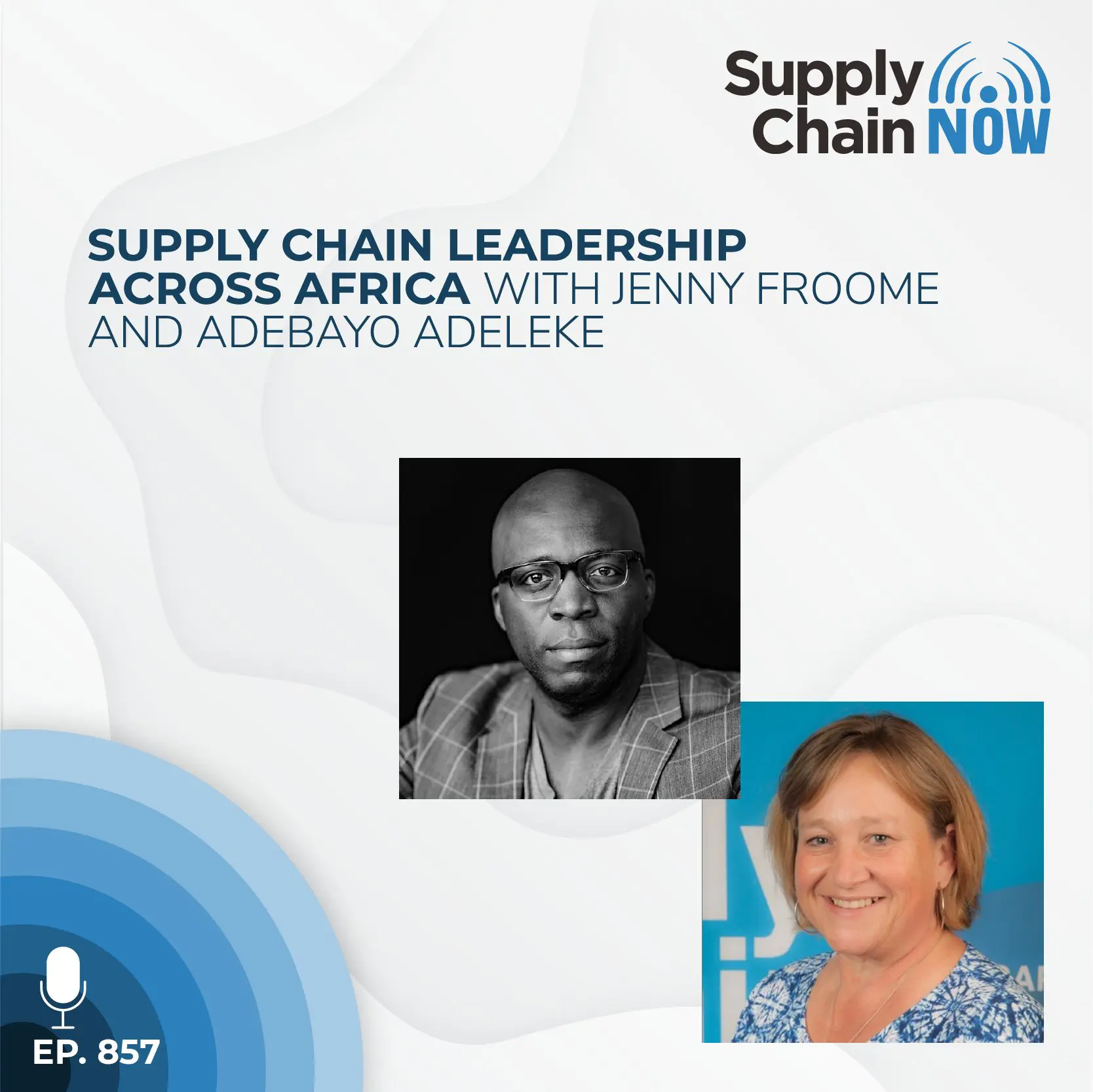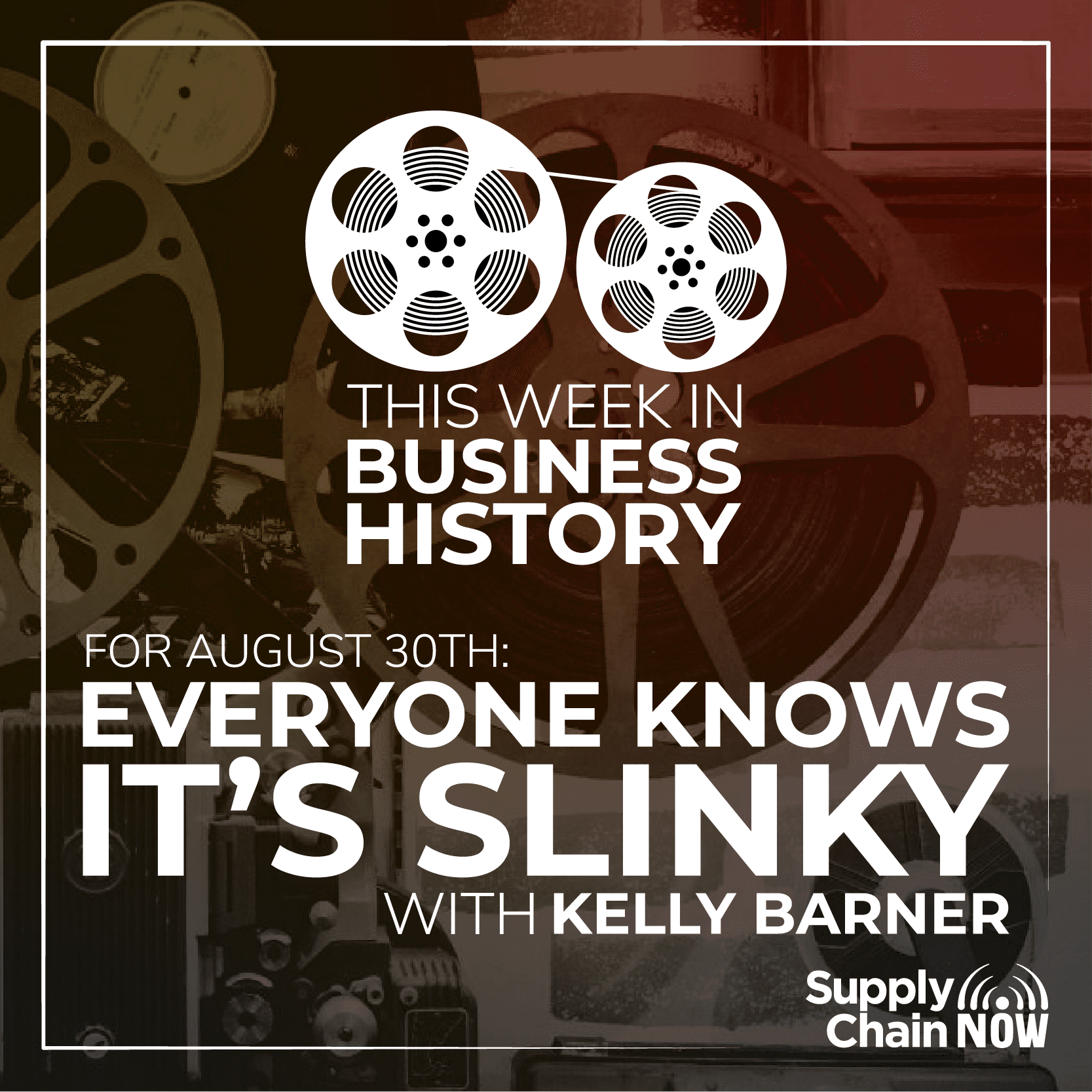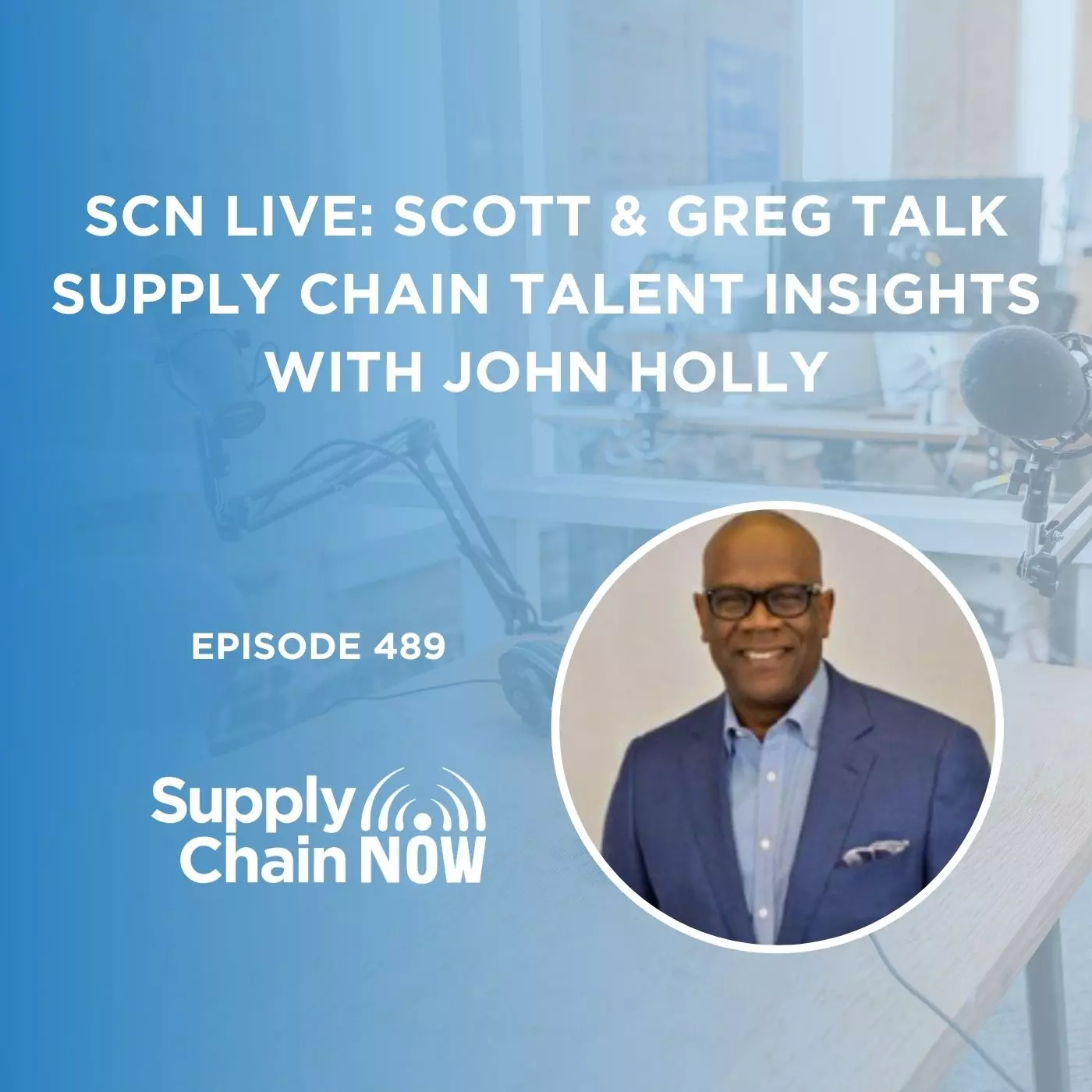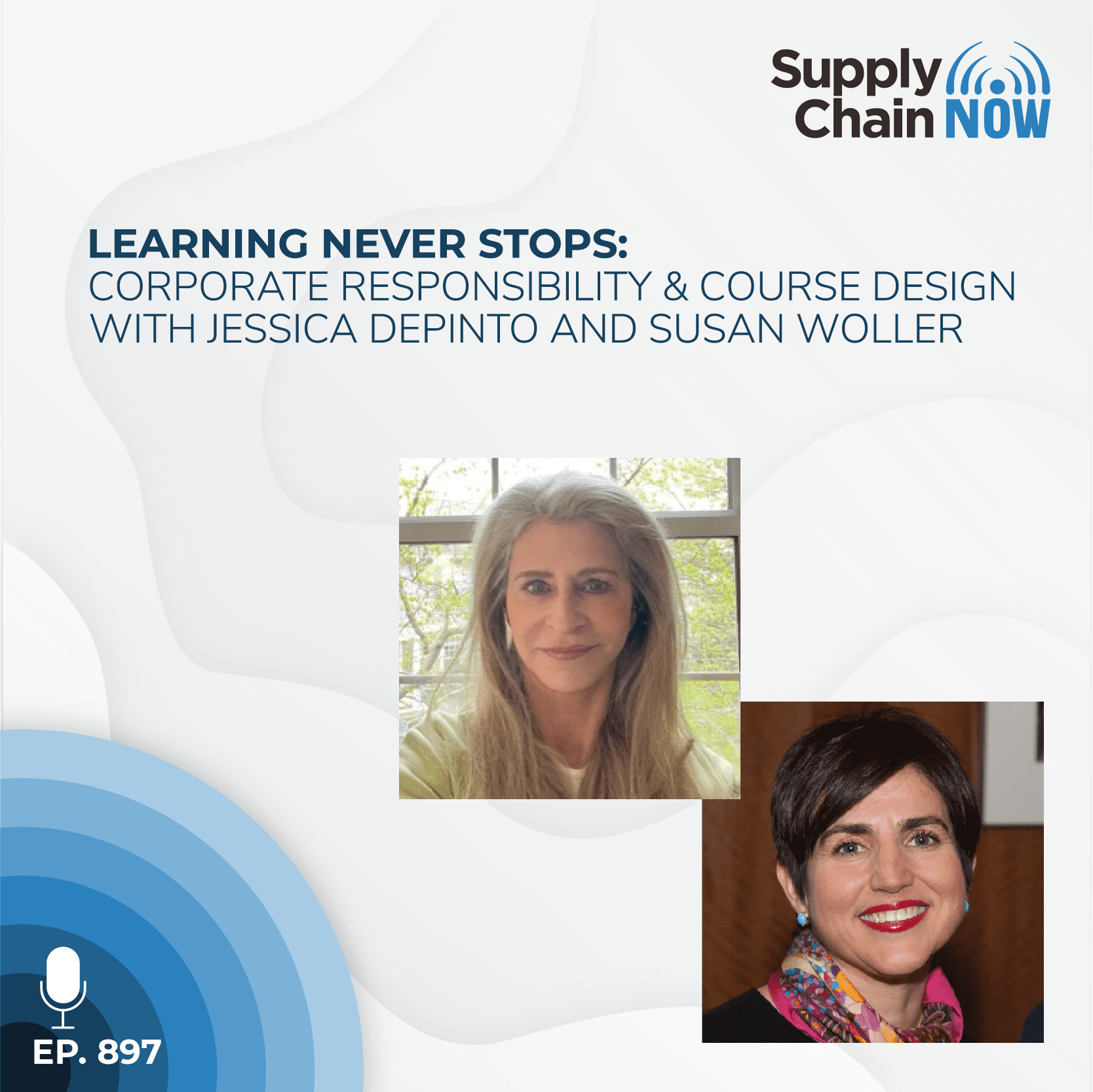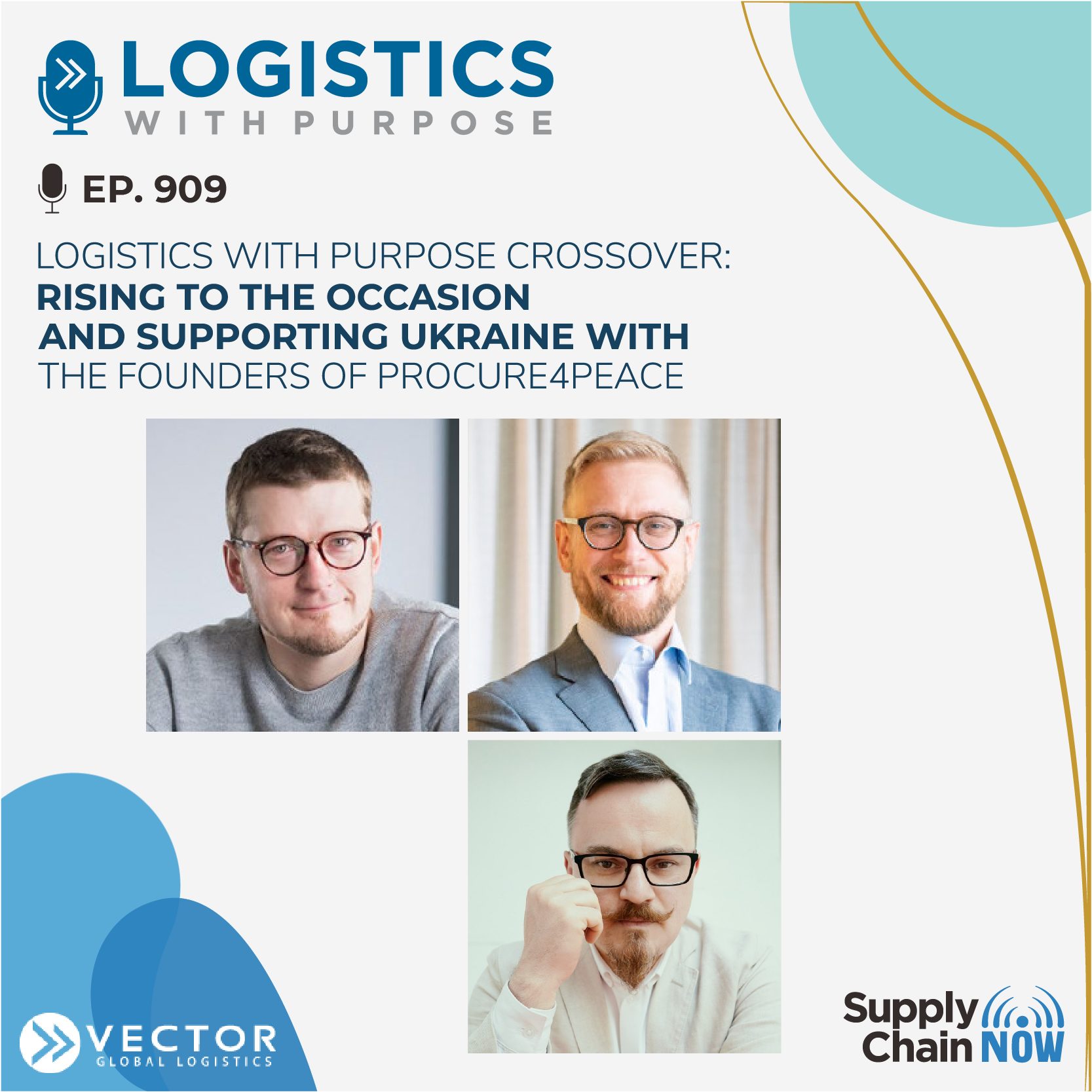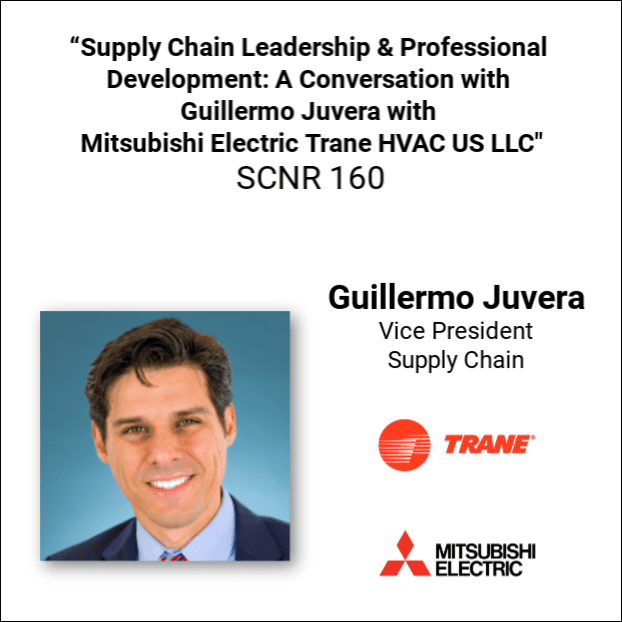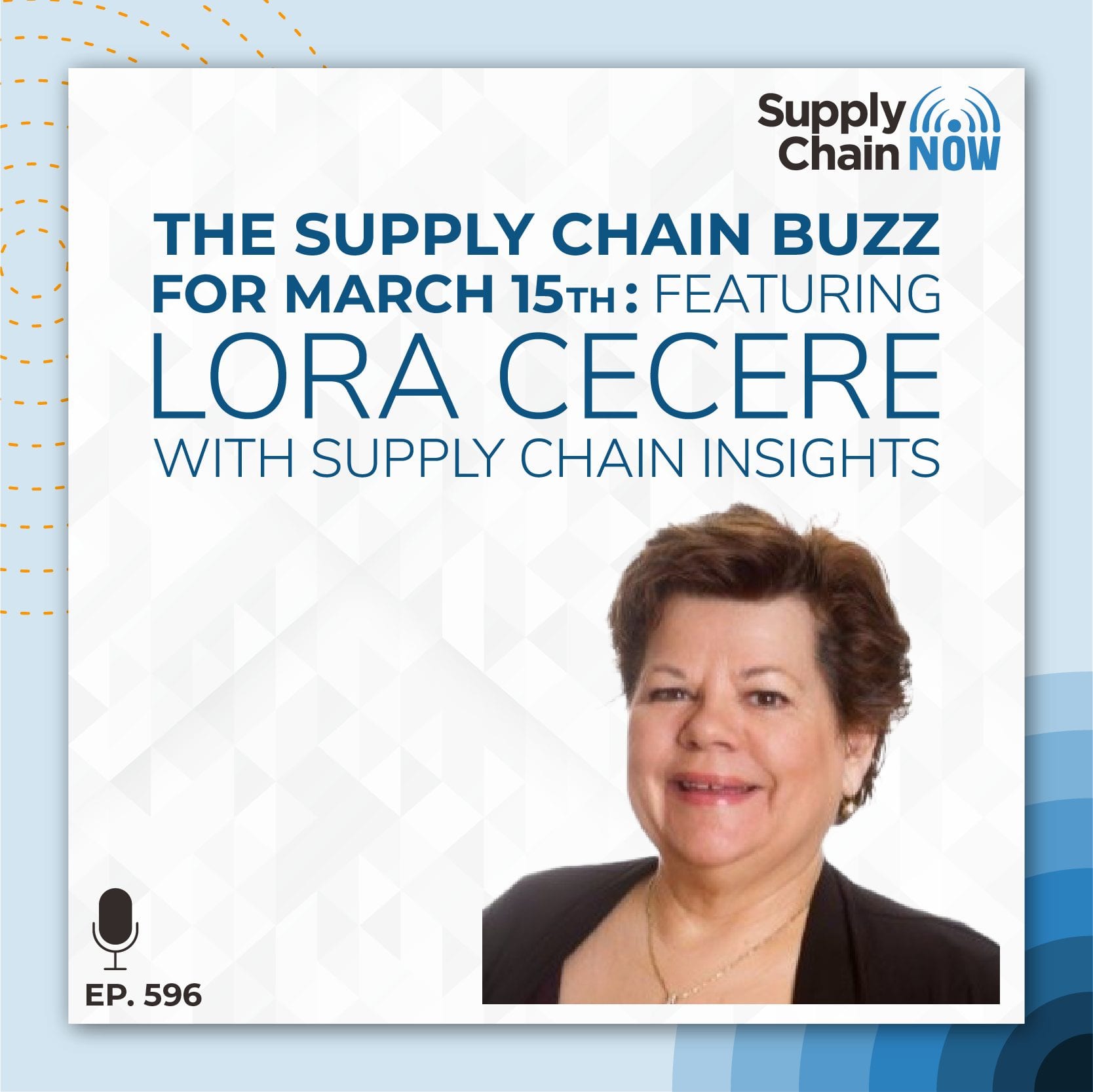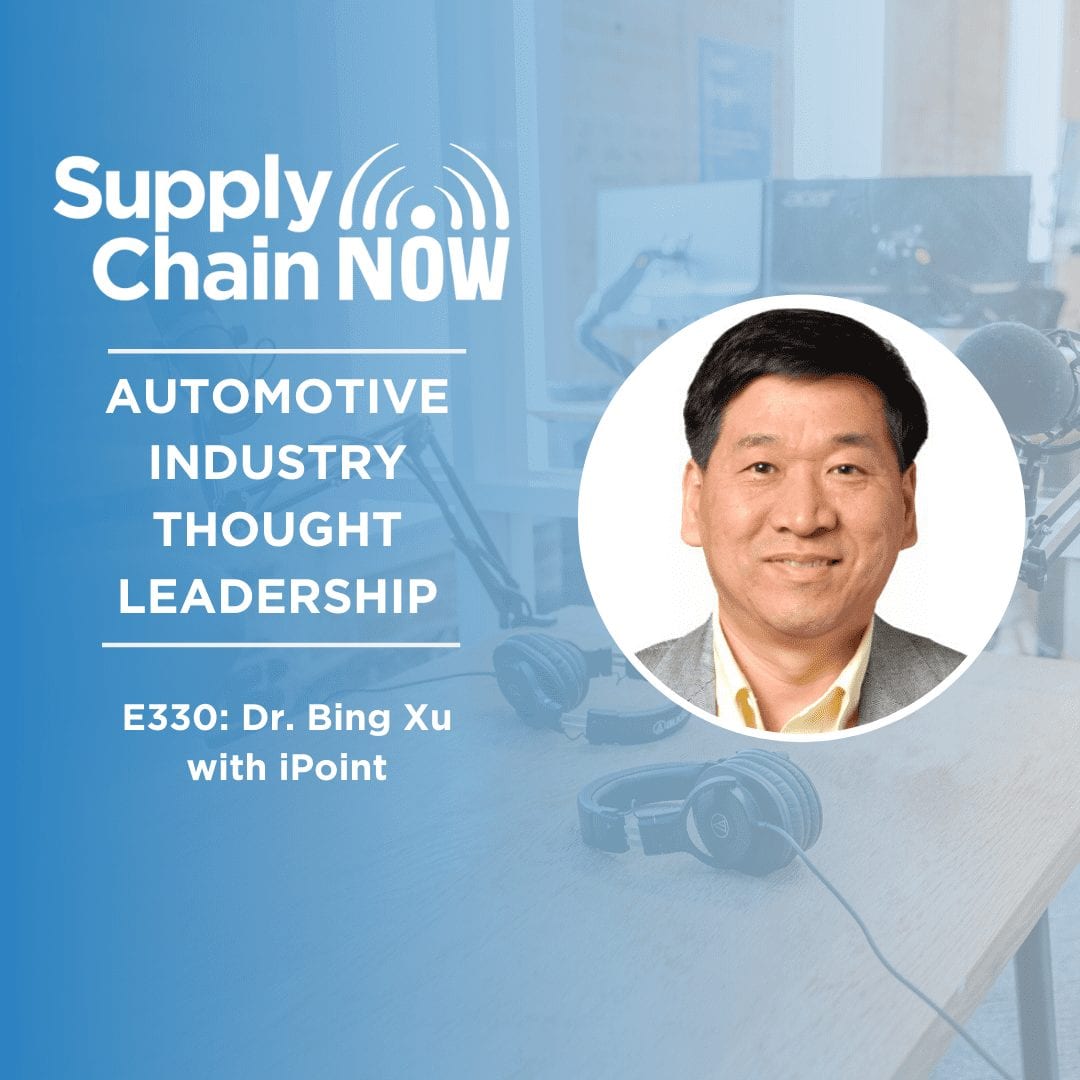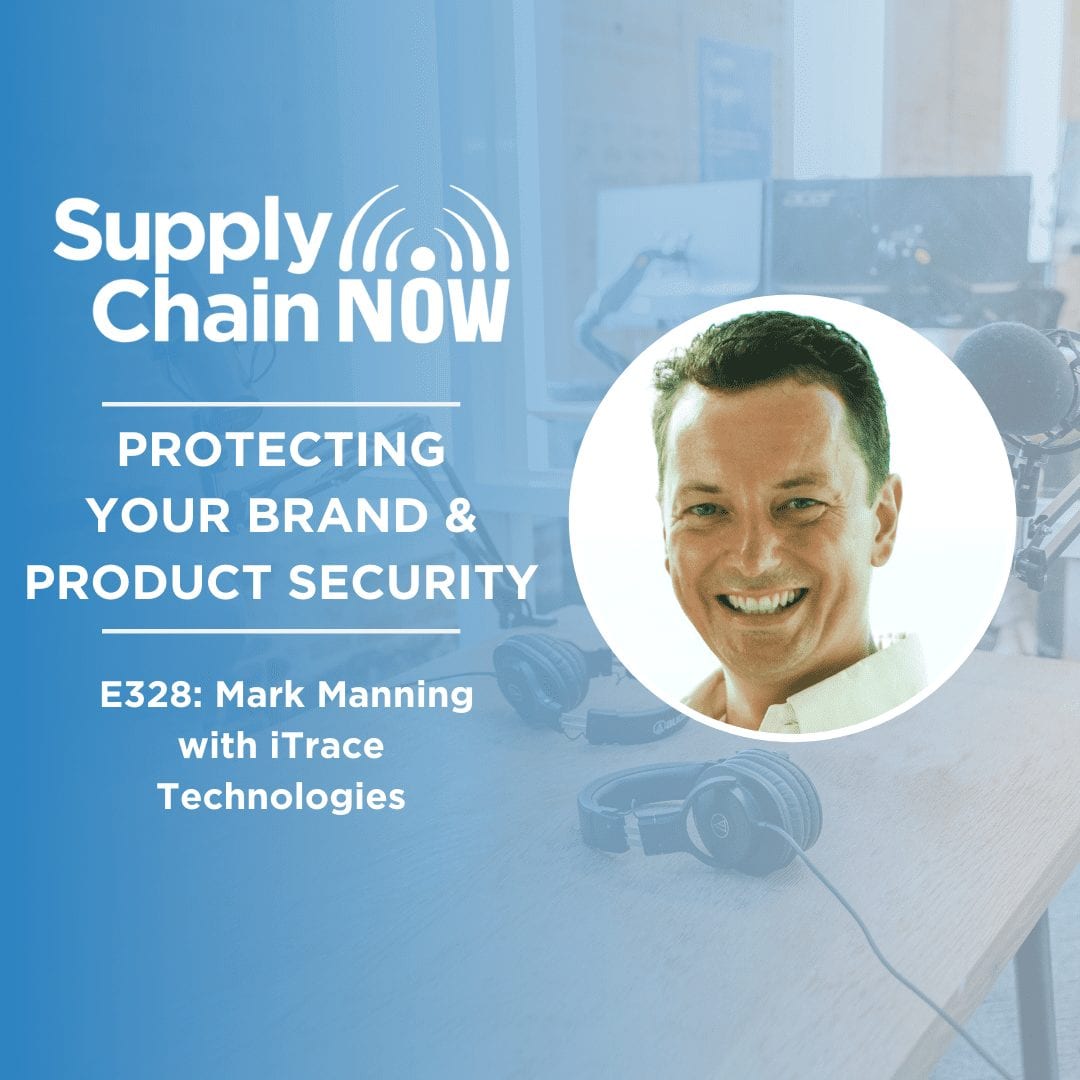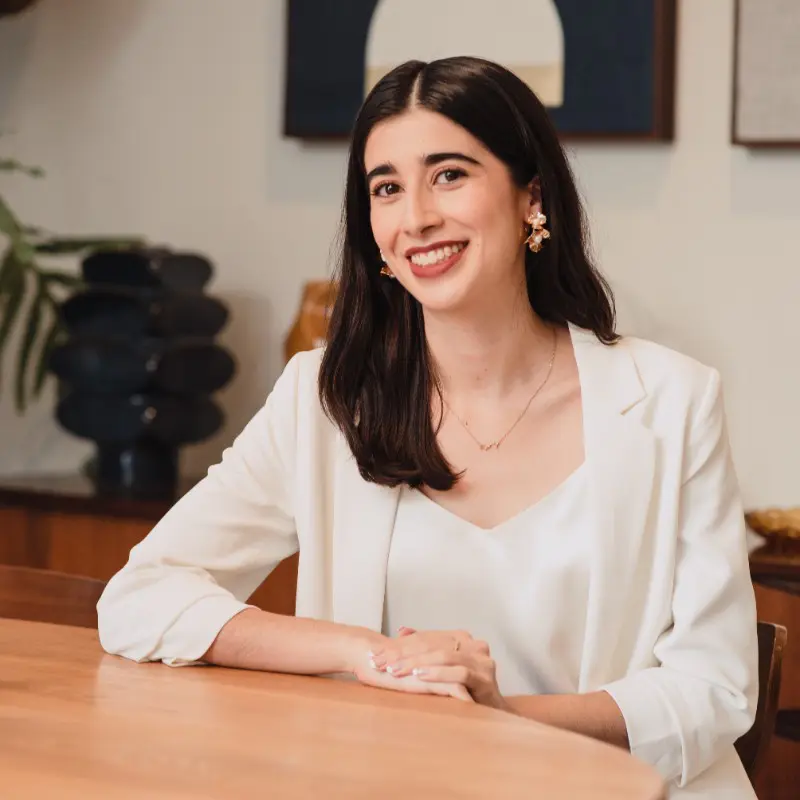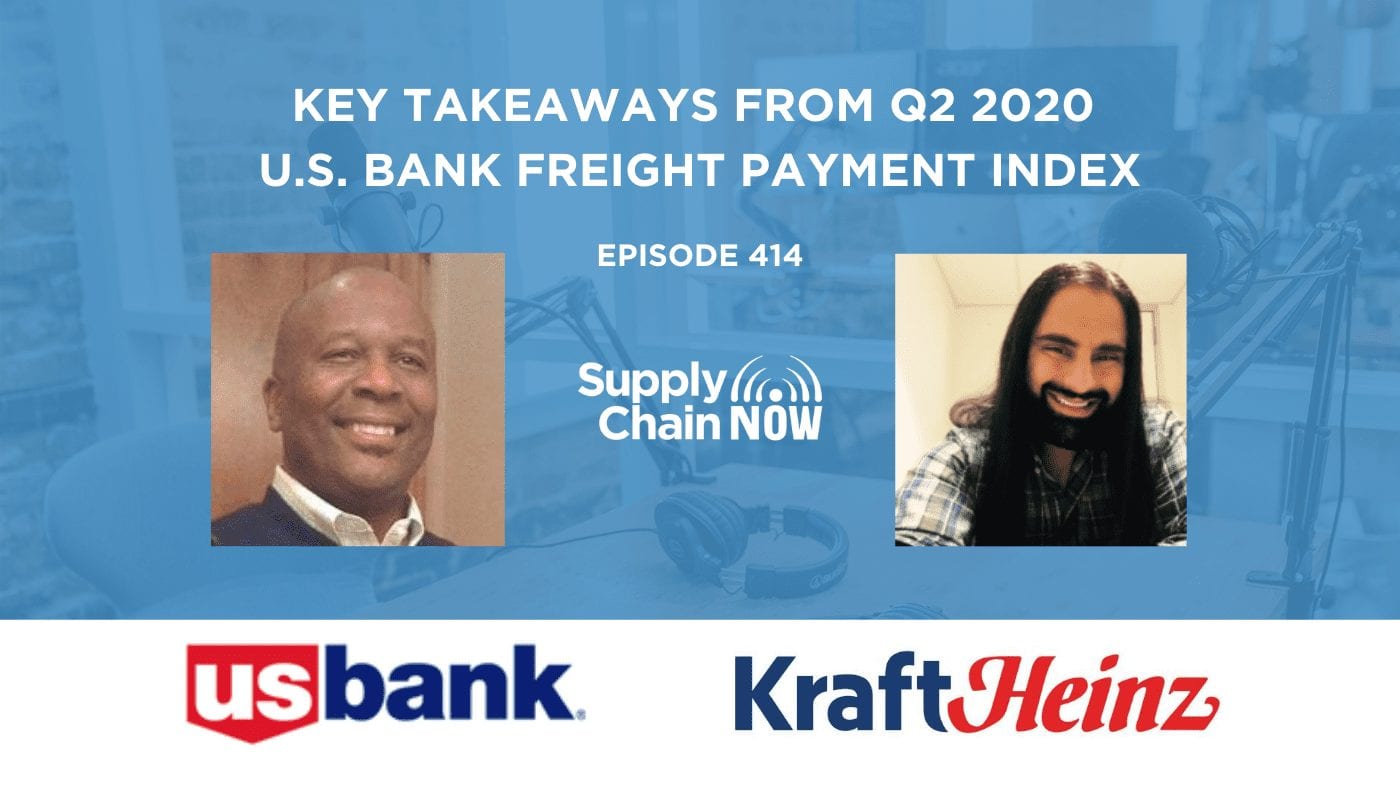
Episode Summary
“Mac and cheese shipments went through the roof, Cracker Barrel, pasta, and the dry goods were just through the roof, we almost couldn’t keep up with the demand. It was good, but at the same time, here’s the counterpoint to that. Our food service industry got hit when the shutdowns happened. Now there’s no ketchup and mustard packets going out. None of that’s happening.”
– Trent Zuberi, Associate Manager of North American Freight Payables for the Kraft-Heinz Company
U.S. Bank processed $28.8 billion in freight payment transactions in 2019. Those payments and the data that accompanies them are analyzed quarterly by Bobby Holland VP/Director of Freight Data Solutions at U.S. Bank and his team. The FPI report includes quarter over quarter, year over year, and full year data and analysis.
According to the official report released by U.S. Bank, “The U.S. Bank Freight Payment Index indicates that both shipments and spend continued to contract from Q1 2020. In the midst of the COVID-19 pandemic, the National Shipment Index dropped 7.6% and the spend index was down 13.7%. Despite the notable declines, the data also highlights some improved signs of economic and trucking activity and increases in both manufacturing and non-manufacturing sectors.”
In this interview, Bobby is joined by Trent Zuberi, the Associate Manager of North American Freight Payables for the Kraft-Heinz Company, to share the results of the on the Q2 2020 report with Supply Chain Now Co-hosts Greg White and Scott Luton, interpreting what they may mean for the economy and the shipping industry in the short and longer term.
· How consumer “binge buying” affected the economy and freight markets
· Where the U.S. Bank team sees “glimmers of hope” despite everything being down at the national levels
· The state and regional differences Kraft is seeing in consumer demand and consumption patterns with so many people staying home
Episode Transcript
Intro – Amanda Luton (00:00:05):
It’s time for supply chain. Now broadcasting live from the supply chain capital of the country. Atlanta, Georgia heard around the world, supply chain. Now spotlights the best in all things, supply chain, the people, the technologies, the best practices and the critical issues of the day. And now here are your hosts.
Scott Luton (00:00:29):
Hey, good afternoon. Scott Luton and Greg white with supply chain. Now welcome to today’s live stream, Greg, how are you doing? I’m doing excellent. Scott, very pleased to be here. It’s been an amazing week, right? This is our fourth live stream of the week. I’m looking forward to this. This is good news. We’ve got a practitioner with us this, this quarter, so let’s get on it. Let’s do it. So what Greg’s referring to on this episode, we’re going to dive into key insights. One of the leading transportation industry resources, the U S bank freight payment index. So we’re going to be not only, uh, taking a look at the data and analytics, but we’re going to be getting key takeaways from two folks that absolutely know and deal with it day in and day out. Uh, so stay tuned as we work really hard, Greg, to increase our audiences, supply chain IQ.
Scott Luton (00:01:18):
Let’s do that. Hey, before we introduce our guests, we want to set the table in a couple of different ways. So, um, we’ve enjoyed our continuing collaboration with U S bank. Uh, one of the leading financial institutions involved in powering, not just the transportation industry Ford, but that as the backbone of global supply chain, it’s a major player, right? Uh, no doubt, uh, something like $28.8 billion of freight payments. I’m really dying to know how many, how much Trent pays. Probably, probably can’t share that with us, but they in 19 2000, 1920 $8.8 billion worth of freight transactions, that is a huge percentage of the total transactions. I remember when we were talking about this with them initially, usually to have an authoritative index, you have a fraction of the marketplace as your dataset. They have a, an enormous proportion of the, of the marketplace they’re data as their dataset.
Scott Luton (00:02:20):
So it’s an outstanding indicator of the realities of the freight market, which greed have not been pretty lately. I agree, but I can’t wait to hear the actual numbers. Well, the good news is, is there is good news and we’ll take notes on summit out here today. So with no further ado, I’m going to welcome in our two guests. Once again, Bobby Holland, vice president group, product manager and director consulting services at us bank. And he’s joined by Trent Zuberi, associate manager, logistics, finance, and freight payables for us in Canada with the Kraft Heinz company, man who pays the bills.
Scott Luton (00:03:00):
All right, good afternoon, Trent and Bobby, how are you
Bobby Holland (00:03:05):
Doing well, good afternoon. Doing well, gentlemen, good to see a trend. Good to see you guys.
Scott Luton (00:03:12):
We really enjoyed the warmup conversation. Maybe more than we should have. We’re going to have to continue that at post show, but it is a pleasure to have Bob back. Once again, we get a ton of feedback around this, this quarterly series, especially on his, on his, um, insights and perspective and what it means, and to be joined by a practitioner and a supply chain professional that deals with this component of supply chain. It’s going to be a big treat for our audience. So, uh, real quick, before we dive in and get to know both Bobby and Trent, little bit better, want to say low to Benjamin, to Stephan, to Felicia and our friends over at the reverse logistics association, Siaad, a great to have you here and Miguel, uh, from Peru. Thanks for tuning in via
Bobby Holland (00:03:56):
Man. Very cool. Let me go.
Scott Luton (00:03:59):
All right. So let’s get a note, both, uh, Bobby and Trent look better. So Bobby, tell us a little bit about yourself and including just a tidbit about your professional journey.
Bobby Holland (00:04:09):
Well, you stated I’m the vice president and director of our straight data solutions team, uh, product management. Uh, we work primarily to build data products, to add value to our customers, uh, from professional journey standpoint, uh, I primarily have a background in software architecture, uh, software engineering and professional services. Uh, I’ve been with the bank for four years and four years in transportation. So,
Scott Luton (00:04:34):
All right, outstanding. Well, great to have you back again. Our listeners really benefit from your expertise. All right, Trent. Uh, please tell us about yourself and your professional journey. And please, I invite you to share what some, some of our listeners may not be aware about your, your podcasting.
Bobby Holland (00:04:52):
I will. Yeah, we’ll definitely drop that, uh, out here, but, uh, professionally, let’s say, let’s start with that. First. I worked for the Kraft Heinz company. I’m the manager of freight payables for the U S and Canada. Uh, I’ve been with the company about four years. I initially started in it, uh, doing freight. It, uh, stopped just kinda implementations, new product design and things like that. And then, um, I worked very closely with the freight payable team. So I was very familiar with U S bank and what was going on and some of the issues we faced or the interfaces of technology. Uh, so when that freight payables manager was leaving, she recommended said, Hey, look, you’re, you know, this space, you’re already on it from the backend. Maybe it’s a good opportunity for you to take over. So one thing led to another and here I am.
Trent Zuberi (00:05:33):
So it’s been a, it’s been a nice, interesting, uh, interesting journey to see this. I was never a finance guy. I was like, I have no finance experience Providence. I went from a marketing manager or marketing major to working for a logistics company in inside sales to, uh, to product development it to, I mean, it’s like, my journey is the most bizarre journey you can ever imagine to end up as a finance guy. I mean, I’ve multifaceted we’re, I mean, represented here by it and right. And technology cats. So yeah, the analytical minds are in the house today, for sure. So
Scott Luton (00:06:10):
Diverse background, Trent. Um, and, and you also, you get podcasts and cause you do it, you’ve got to pop your podcast of your own. Right?
Trent Zuberi (00:06:18):
I do. I, uh, I do a show called total nonstop impact. It’s a, it’s a weekly, well, three times a week break down, uh, analysis of impact wrestling, which is owned by Anthem media from Canada. Uh, they’re on access TV, which is a very popular channel where everybody’s got access TV and Twitch. Yup. Uh, so I’ve worked with them, I’ve done some music form. I’ve done some behind the scenes stuff for an impact. I do some production work. So I’ve worked with impact wrestling in the past. It’s I do a weekly kind of morning zoo, like talk show, very Howard’s third man, Cal like approach to pro wrestling. It’s a very different than the, uh, than the two guys sitting in, you know, in, in the room, just breaking down each move. We were, it’s a very zany approach. So that explains the microphone, the microphone arm, and all that stuff. We love it. We love it. Can’t wait to get your breakdown on this, take that approach. That’s ready to go. Let’s make rifling analogies throughout the numbers.
Scott Luton (00:07:13):
Perfect. All right. Hey, real quick, before we, uh, we continue on here, want to say a big hello, uh, an internet hug to Patrick Kelly who also hosts a outstanding produce podcast. And of course, folks are moving lots of produce. Uh, so I’m sure he and his listeners will enjoy today’s live stream. Okay. Greg, we want to switch gears and continue to set the table a little bit, right?
Greg White (00:07:35):
Yeah. I don’t want to get too distracted, but that a Miguel from Peru’s got me thirsty for a Pisco sour. So, um, let’s get through this. Let’s be efficient. All right. Let’s get to the bar. Um, it is Friday after all guys. It is indeed. So, um, look Bobby, tell us why you guys, you at us bank, uh, corporate payment systems, why you are qualified to do this. I mean the $28.8 billion, which still astounds me is pretty impressive, but tell me, you know, why you do it and, you know, and, and, uh, the service that you provide to the industry here. Well, the thing that makes us the, one of the best to do this is, you know, over 20 years of payments processing, uh, as you pointed out, you know, billions of dollars in payment transactions helps us to build and maintain that big data perspective.
Bobby Holland (00:08:28):
So this gives us the ability to leverage insights that we can find in the data, provide those to our customers to add value, to and help them make better business decisions off of that data. So, uh, tell us a little bit about how the freight payment index, w you know, a little bit about what it is probably need to introduce our, some of our newer audience to how it works as well. Okay. Well, the freight payment index is U S bank’s perspective on the trucking and freight transportation marketplace with it primarily with a primary focus on truckload and less than truck load, because that comprises more than 80% of our data. Uh, the idea is to measure the velocity of, and direction of the movement of the marketplace, and thereby provide an extrapolation on the economy at large. So we use our data to help provide a window into what’s going on in the business and what’s going on in the economy.
Scott Luton (00:09:33):
Got it. So, um, and can you explain to people, cause we’re going to talk about the one 14, one 20 rates. Can you explain to people that a little bit about how the index is constructed? So they understand,
Bobby Holland (00:09:48):
Well, basically we compare quarter over quarter. We look at, you know, the customers we had in the previous quarter, compare those to the customer base. Uh, we apply some statistical analysis to it, to kind of filter out our business aspects. So when we present the index, we’re not measuring how well you as bank did a quarter over quarter, we’re measuring what’s happening in the truck marketplace, and there are analytical ways to do that. Right. And so we measure it quarter over quarter and year over year.
Scott Luton (00:10:19):
Got it. Um, alright, so Trent, I’m dying to ask this question. I know you probably can’t answer, but I’m gonna ask it anyway of the 28.8 billion. How much of that is?
Bobby Holland (00:10:32):
Well, I’ll tell you, I’m proud to put that out. There’s again, my, you know, you tell, you tell my dad how much hand, how much money I am afraid I handle. He likes the, you know, it makes them, makes an old man proud that Kraft Heinz that 2.5 billion of that comes Kraft-Heinz. Yeah. Wow. Wow. That is significant. And it is a lot, it is a quite a bit, and it has only grown. I mean, we, I took over this space two years ago and we were just under 2 billion, you know, in the last report came mine. It was 2.5 billion. I mean, it’s, it’s incredible. How much has increased even with the pandemic. I know we’re going to talk about that even more, but yeah. And how that, you know, a company like Kraft, who does a lot of prepared food, a lot of, a lot of box goods, how that even increase. And I’m curious as to what this, this year’s numbers are going to report, you know, I only get to go up. I mean, we’ve seen it in another area, so it’s a lot of you all, how do you,
Scott Luton (00:11:27):
Your colleagues use the freight payment index? I mean, what, what, what does, what kind of, um, management or analytics or whatever do you do around the freight payment index? Yeah,
Bobby Holland (00:11:40):
The, our transportation team and our planning planning is the biggest thing. Like the planning of it is, I mean, to consider this at craft on an average shifts about anywhere from two to 3000 shipments a day, it’s a lot of freight moving daily from all of our facilities, right. And the planning that goes into that is it measurable. I mean, like the amount of people and hands in that. So the more data that we have to play with, you know, when it comes to that, how we can utilize that index to just plan what forecast, you know, just for guys what we’re looking at going forward and what, we’re, what we have to expect, what we, what we are going to encounter. Just having that, even if it’s just a small step ahead is so vital for a company, our size, because that small step is a, is a huge advantage to a company like us. And it could be worth tens or more millions of dollars, right? Absolutely volumes that you all are doing. That’s incredible. And all the region, nearly 10% of the transactions that the U S bank is doing. Bobby, be nice to this guy.
Bobby Holland (00:12:48):
I will say the U S bank team. This is not me just doing this because of where we’re at here. They are one of the, one of the best teams I’ve ever worked with my professional career. I, one of the most supportive, uh, and most involved teams I could ever ask for. And they take care of us big time. I will not be sitting here with hair. If I didn’t have the U S bank team look, there’s plenty of hair. There. It’s something I would not be here with hair if there was that us bank team to cover, cover my butt once.
Scott Luton (00:13:18):
Oh, I love that for our first t-shirt ism of the episode right there, Greg. Well, let’s put this data in a headline.
Bobby Holland (00:13:27):
That’s okay.
Scott Luton (00:13:29):
So Bobby, I’m going to share a couple of graphics here, but, but let’s start with, uh, some higher level observations around what the second quarters freight payment index is telling us
Bobby Holland (00:13:39):
National level, too. Okay. Well, as expected the index, uh, fell, uh, by a number of percentage points, this was expected simply because of the impacts of the COVID-19, uh, pandemic on, you know, again, not only the freight industry, but, uh, the economy at large, um, the national ship and indIn7.6% from last quarter and the spend index decreased 13.7%. Uh, this was again, largely due to, um, the difficulties, you know, even though things were still moving, uh, we saw, you know, an up spike in quarter one that was balanced by an up spike in shipment of binge buying of goods, uh, PPE equipment. Um, but it also, at the end of Q1 was when most of the stay at home orders, uh, went into effect. And so that binge buying thing got over with, um, mitigated the spikes. And then we saw the true impact of the, of the virus on the economy. And so that’s what we’re seeing in Q2 was it was expected. There are some glimmers of hope as we’ll see you as we continue to go through, but at the national, everything is down pretty much as expected.
Scott Luton (00:15:04):
Alright. So, Hey, quick to our audience, uh, especially if you ship stuff, y’all tell us what you’re seeing in your neck of the woods, uh, whether domestically or internationally, we’d love to get your comments here. Okay. So Bobby let’s keep driving let’s, uh, next let’s kind of get some initial observations regionally before we, cause we’re going to dive in and a few minutes kind of region by region, but give us some quick observations regionally at a higher level.
Bobby Holland (00:15:27):
Well, you know, as I stated, there are some glimmers of hope. Every most regions were generally down. Uh, we saw that the Southwest, uh, was the one region that had a gain and shipments, although, um, spend was still down by quite a bit. Uh, the West was the second best region with only a 1.8% drop. And this is because California appeared to flatten the curve early on, um, in the progress of the pandemic. And so we’re able to resume, I won’t say normal, but near normal activities, uh, shipping activity, um, the East coast, uh, as we well know, Northeast and Southeast, uh, got hammered, uh, the Southeast, you know, again in last quarter, saw some, um, saw some gains as they were one of the last two to shelter in place or stay at home. But once they fully did, uh, or once they did, then that’s when the impact started to hit them in the Northeast was, you know, everybody sees the stats on New York city, uh, and that’s the state and just that entire tri-state region, right center hotbed of COBIT activity for a period of time. And so from that comes the huge impact to the Northeast as, um, that they’re only they slash we are only now climbing out of yep. Those are the big, the big ones.
Scott Luton (00:16:51):
Excellent. First comment, uh, from our audience comes from Jayman who, uh, does a lot of work in the logistics and transportation space, looking forward to his new series here. He says for domestic shipping, from what I’m experiencing, feels like a mixed bag in the moment, some way up and others way down. So great to have you here, Jamie, and appreciate all of your, your expertise. Okay. Is that you think that’s way up
Bobby Holland (00:17:13):
Right? Or way up in shipments, right.
Scott Luton (00:17:16):
Excellent. Clarifying question. Jaman please.
Bobby Holland (00:17:19):
Yeah.
Scott Luton (00:17:21):
Alright. So let’s, um, I wanna kind of go around the horn a bit based on what just Bobby shared and Trent, let’s start with you. Quick comments based on those observations,
Bobby Holland (00:17:31):
You know, the regional aspect of that injury is very interesting to see, right. How the States that were affected most had their fluctuations and the ones who’ve fled. And it had a fluctuation the other way, uh, for us, for crab, I can speaking just from our, our perspective, I saw it was ours was a little more balanced because of, as I mentioned off air, the nature of what we shipped the nature of our goods while the, while the general, um, activity was, was up and down, ours was, was higher for the most part because we, again, when this first hit, when all this was in the panic mode set and, you know, late March, early April products, like ours were the most vital to stock up on. And to, because we didn’t know how long we had to expect this whole thing. Right? So people like there was a huge demand in our box goods, our, our, our, you know, the Mac and cheese, which is one of our biggest products, you know, the not too much we call the student in the world is thanking you for that.
Bobby Holland (00:18:27):
Exactly. And my three kids love it, big fans. Exactly. So I mean, things like the Mac and cheese and people, again, the people with kids were like, what am I getting? You know, what are the kids, what are we going to rely on for quick meals? Really kids, Mack and shields, jeez shipments were, were through the roof, the different, you know, Cracker barrel POS as the dry goods were just through the roof that demand, we almost couldn’t keep up with the demand. And it was, but in a good way, I mean, it was good, but at the same time now here’s the, here’s the counterpoint to that. Our food service industry got hit. When that let shutdown happen. Now there’s no ketchup and mustard packets going out. There’s none of that happening. There’s no, uh, there’s no bulk condoms going anywhere. It’s all these different themes, no theme parks, none of the museums, you name it that dipped heavily. So we almost, in an odd way, we, we balanced out by upping the consumer goods, you know, in the retail market. And, but then falling on the, on the, um, on the food service area. So it was, it was definitely very interesting to see how that, how one canceled the other out. And in that sense, but from an activity standpoint, we were busier than ever really,
Scott Luton (00:19:34):
Hey, uh, good. A lot of good stuff who can’t relate to Mac and cheese Kraft, Mac, and cheese. I really appreciate what you bring, let’s it? This is, this is the, um, for me, yeah. You know, we create a lot of content here. I think trying to balance the data and analytics and connecting it to an every day occurrence that consumers. And for that matter supply chain professionals that may not be involved as much in coordinating shipping’s. Everyone can connect to that. So, and relate to that. Uh, Greg, I’m gonna get your tape, but before we do, I’m going to let, uh, Jaman mentioned, um, so rates seem to be way up across the board and capacity tightening shipment volume is what, uh, what is what’s feeling to him as a mixed bag? So good stuff there.
Bobby Holland (00:20:15):
And then a lot of what both Bobby and Trent just said, it depends on the industry, right? Whether it’s going to be up or down and probably the product line. I mean, you know, the product line products, for instance, um, automotive industry is one that’s been hit hard, like, uh, construction and online retail sales, but we saw, so people are staying home. So deodorant sales are way down, come on. People, no joke deodorant
Scott Luton (00:20:48):
For way down. Right. So, um, so obviously personal hygiene has taken a hit. Uh, but you know, I think one of the dynamics that leaps out at me are around the regional metrics. And it is really interesting in that trend because when we did this last quarter, um, California was not at nearly as far down, but, well, I’m sorry, California was already way down actually. And the Southeast was up. And what we were seeing, the impact we were seeing there was that the ports were already closed in California and right. And volumes have been shifting to the East coast for a long, long time. And the ports of Charleston and, and Savannah were still operating at capacity and putting trucks on the ground to do that. And so California didn’t have that far to fall. Whereas the Southeast did have, because the Southeast was up significantly and, you know, when lockdown occurred and once all those ships hit the shore and, and offloaded, um, it, it was all over and it was all over early in April here.
Scott Luton (00:21:56):
Yeah. If I could just jump in first thing about, uh, an index measurement is to your point, um, the, uh, Greg, uh, because the Southeast was flying at such a high level, um, you know, even though it looks like a tragedy to, to drop, um, you know, what do we say? Um, 14%, that’s 14% of slow down. If you will. It’s like letting up gas, if you’re doing 80 miles an hour, right. And you let up 14%, you’re still going to be speeding. Yeah. I’m not going to be flying over the voice of experience. Great analogy actually paint the picture that, uh, the Southeast is like, you know, a dystopian. We want to understand that as your point, uh, was the, the Southeast had farther to fall. So any, you know, big reduction, if you will, is going to seem significant, but it’s not by any means the Southeast hasn’t crashed. Yeah. I want to make sure we’re really good point about an index value versus raw quantity. Yeah, that’s right. It’s relative to right. It’s relative to where you were before. Correct.
Scott Luton (00:23:09):
And that’s great clarification. Um, all right. Lots of love the commentary. And in fact, I like the commentary, not just here in this conversation, but with our audience is talking about, uh, they love the Mac and cheese conversation,
Scott Luton (00:23:21):
Mac and cheese. It’s incredible. Yeah.
Scott Luton (00:23:24):
We got folks calling for a Mac and cheese podcast, by the way, I can chat back and chat. That’s right.
Scott Luton (00:23:30):
Suppose guys
Scott Luton (00:23:32):
Weighed in about a second ago about how, uh, his grape jelly and ketchup supply is way down. And he usually grabs a couple extras, I guess, in fast food places. And, and that’s no longer the case, right? So we’re, we’re stimulating lots and lots of conversations here, but again, it’s about how these numbers from this, this exhaustive research, you know, how it plays out and in, in daily lives. So I love these connections here. Okay. So let’s go a little bit deeper and use that segue that clarifying, uh, conversation around, you know, how to view these really accurately, especially for our audience. Uh, Bobby, let’s dive into, let’s go region by region and let’s start with the Southeast region. We were just talking about that a moment ago. Give us a few more details on what y’all you saw the numbers in second quarter?
Bobby Holland (00:24:20):
Well, Southeast, you know, as we know, again, from empirically in the news, uh, the Southeast is struggling with a spike in COVID cases. Um, so you’ll kind of see that as a trend where as the cases rise, then the potential for fall off, um, you know, it follows that same trend. So right now the Southeast is trying to dig out from, uh, after the success of their bladed shutdown. Uh, now they’re, they reopened earlier than others, or actually never really quite shut down. And so now they’re feeling, uh, some of the impacts of that. So, um, the, the Southeast is continuing to struggle under that. We still expect a recovery. Cause like I said, it’s not dystopian there. It’s just a big slowdown and that’s the Southeast again, 14.1% in contraction and in shipments. And, um, the spend was down 21.4%. So it fell, you know, from a, from a high level, but it took a big hit as a rates. Does that indicate then Bobby, that rates fell at a greater rate than shipment volumes did down more than re or than shit. One of the big impacts, um, is been across the board. It has been like fuel prices. So that’s going to lower the cost of shipping, um, in, in a lot of ways. Um, but the demand is to some extent is still there. Hmm. Mm. Got it.
Scott Luton (00:25:57):
Alright. So let’s move from the Southeast. Let’s move over or up rather to the Northeast. Bobby, give us a couple extra details there.
Bobby Holland (00:26:05):
Um, Northeast was the, was the largest hit by the COVID it’s the epicenter is, I think we put it in the index. Um, we see that the Northeast, uh, it contracted 12.6%. Um, and the spend index dropped, uh, 12.7%. So again, a huge hit in the Northeast. Uh, we have hard shut downs up here, uh, for a period of time. Um, it’ll be interesting to see what third quarter looks like as, you know, New York appears to flatten the curve. Um, and you know, we’re in love ward where you’re at level four opening right now. So things are slowly starting to pick up up. Uh, so, and again, interesting to see what it looks like in Q three, but, um, Northeast, you know, it took some huge hits, but the good thing is, is that they’re managing, you know, managing it more regionally than other places. Uh, the, you know, we have the tri-state commission and they’ve added more States to that to help, you know, manage the, the pandemic response. So that is bound to have a more positive impact on shipping.
Scott Luton (00:27:12):
Alright, good stuff there, Bobby. All right, Greg and Trent we’ve, we’ve tackled two of the five regions as we can continue to go region by region. Y’all feel, feel free to weigh in on any additional thoughts before you do. Chris says nice truck, Greg white reminded me of something. A physics professor once said, you can be accelerating at a decelerating rate. I don’t know about you, but that’s above my pay grade.
Bobby Holland (00:27:39):
All right. So,
Scott Luton (00:27:40):
Um, Trent, you know, based on your massive network, uh, as we look at these first two regions of Southeast and Northeast, any, any, um, does that stack up with what you saw in the last, uh, three months?
Bobby Holland (00:27:52):
So I can totally totally does. And, and two of the most active regions, you know, that we have, uh, and, and we’re for coming like craft, obviously every, almost every region has, uh, is, is busy. But though, I mean, Northeast in the Southeast are two of the most active based on certain product popularity, uh, different sales, you know, Mac and cheese being high in one and lower than the other, but ask for Meyer being hired. And while, you know, things like that, we just have our, we have a regional favorites, our regional focuses. So it completely would spot on with what Bobby said. That it’s exactly what we were saying. And, um, and we felt, I mean, we definitely felt, uh, the it’s interesting. We felt, um, the hit with those, with those areas that were hit the hardest, especially the Northeast Northeast being that they shut down so quick and so diligently.
Bobby Holland (00:28:41):
And you could even, you couldn’t, you’re not getting trucks in there and you’re not you’re or whatever you’re getting in there is going out, you know, with smaller capacity and less, less product, less diversity and product, and maybe more basics were being ordered, you know, Hey, they were just wanting just Mac and cheese. We don’t want to have the fresh meat or the, you know, the Oscar Meyer stuff or things like that. It was just those very focused for a little bit. So obviously much more focus equals less activity, less diversity in trucks and shipping. So it was, it was very interesting to see how that pattern fluctuated two pots of pantry loading. Okay, Greg? Yeah, exactly.
Scott Luton (00:29:16):
Quick comment. And then we got it for our first question for Bobby. Go ahead, Greg.
Bobby Holland (00:29:19):
Yeah, I think pantry stuffing is exactly what we saw. I mean, if you look at the early part of the quarter, um, we had already started to see when we announced the last, um, freight payment index, we had already started to see it because we do this a couple of weeks into the next, the next quarter we had already started to see the impact of pantry stuffing and it was beginning to tail off at that point.
Scott Luton (00:29:42):
Right. Um, you know, I think this, and this is one thing I think we can talk about too, is, um, Bobby, if you think back to the very first one, we did it of these right at the beginning of the year, knew that this was going to happen, not COVID-19, but we all knew that it was going to get worse before it got better. Right. I know, I know Bobby, your job’s not to predict it’s to report, but, um, a lot, uh, you know, the analytics that we saw and the, uh, the other commentators that we had on during this time were all universally saying that. So, um, I don’t think we expected it to get this worse before it got better, but, um, and maybe not right at this time, but, um, in, in a way I see this as, as accelerating the recovery, you know, as we talk a little bit about the optimistic news, but, um, I think this massive dip will help accelerate the recovery. That’s good news. Okay.
Scott Luton (00:30:42):
Good stuff there, Greg and Trent. All right, Bobby, our first question comes from Stephen in Dallas, Texas, Stephan hope. This finds you a great to have you here today. Once again, he says Bobby, on a spending note before prices fell, did you see or hear of shippers having a general interest in electric transportation now, cheaper consumables, easier to get your own supply, et cetera, anything you can weigh in on that,
Scott Luton (00:31:06):
Bobby, uh, not so much about the interest in electric transportation. I mean, you know, we do research and read articles, the same types of articles that people see in the industry. And so there’s still a general interest in, uh, electric transportation. Don’t know if it’s a high interest right now. Like I said, people are struggling with the current fuel prices. Um, so maybe it’s not the biggest cost proposition right now, but, um, and for a while in the first couple of quarters, there was a slowdown on, um, on capacity. So they were canceling truck orders and that’s starting to ramp up again. So we will, we’ll have to see, um, as far as the other trends, um, again, we don’t know that we have that level of detail and our data for those particular things, but generally we’re watching to see how those things shake out and what the impacts are on the, on the industry. Yup. Go ahead, Greg. Nope, that’s exactly what that was. I was going to point out that in the, in the stream.
Scott Luton (00:32:05):
So Chris follows up and kind of in their, their chat conversation here. And he’s asking if there is more consideration to insourcing transportation, uh, any comments from our panel here on that?
Scott Luton (00:32:19):
Huh? Are you considering that Kraft Heinz? I mean, I think what that would show Bobby, correct me if I’m wrong, but that would show a reflection in the data. If companies were beginning to insource transportation, I don’t think they could have that impact in a quarter though. I mean, it would be lot of that kind of volume
Bobby Holland (00:32:40):
Impact in a quarter two to start in sourcing. But have you seen any of that? Any indications of that? I have not. No, I haven’t. Um, no. And it’d be interesting. I’d like to, I’m curious now if that conversation is even happened on our, on the planning and procurement side, uh, because that’s, that is interesting to it. It’s I can’t imagine that that hasn’t come up. Let’s put it that way. I, I, I imagine that that topic has come up at least. Yeah. Just by the nature of it all. That seems like a, I mean, it’s such an unsure time to make a strategic shift. Like it seems like a terrible time to do that too much, or the risk is great. The risk of transition seems greater than the risk of, of performance of your vendors. There are so many out there and they are so desperate for business.
Bobby Holland (00:33:30):
So, sorry, Bobby. No, you’re correct. You know, there are some decisions that are strategic to make at a time like this, and we can see a lot of shippers and carriers adapting to, um, you know, the elongated nature of the pandemic, but some of those decisions, you know, there’s, everybody’s still trying to separate out and determine what the new normal is. And so to make a big decision like that when we’re not sure what’s going to happen, we start to pull out of the recovery. I don’t, I just, I just can’t see that I’m at this juncture. Yeah.
Scott Luton (00:34:03):
All right. We’ve got one comment on this from our audience Antonio. Uh, I think Antonio is with EAL green, by the way, in sourcing makes, makes sense with TMS systems and integrations with dat. And Truckstop why keep paying the 15 to 25% broker model. So good stuff there from Antonio.
Bobby Holland (00:34:21):
Can I just make one point Antonio has new, um, knowledge because he has new authority because he just got promoted at EAL green. So congratulations, adulation,
Scott Luton (00:34:32):
Congratulations Antonio. One of the quick comment we spoke earlier this week with a sensor and tracking technology organization. And one of the things that this executive was speaking to was a lot of organizations were using newer carriers and they could make that decision with more confidence because they were using this tracking technology that ensured that the SRE, that cold chain, that temperatures were maintained and, and, and their, their freight was being protected at if the relationship wasn’t there. So I thought that was a interesting, uh, uh, conversation we’d had Greg. Okay. So let’s keep driving, let’s stop into the outstanding American wet, uh, Midwest, rather, Bobby, give us a couple of details on the Midwest and what the numbers showed us in second quarter.
Bobby Holland (00:35:14):
Okay. Midwest down, 5.5% over last quarter and, uh, 11% from the previous quarter, um, Midwest, we see things starting up with, um, the Mexican border as they start their manufacturing. Uh, that was one of the things from the national perspective is that the manufacturing a bag of starting back up, but definitely in Mexico. So shipments across the border are starting to increase. And so the Midwest had one of the lower dips, if you will. Um, the trade war with China is impacting the Midwest, um, partly because of the proximity to the West coast, but China’s not buying as many factory goods or agricultural products in the Midwest as big on agriculture in that regard. Right. So, uh, as either of those things start to change, then the Midwest, um, should pick up accordingly
Scott Luton (00:36:09):
Outstanding. Okay. Trent, uh, any comments there,
Bobby Holland (00:36:14):
Bobby hit it perfectly what the agricultural aspect of the Midwest that that’s huge. That is, that is complete. I, I would think that is one of the, probably the bigger, biggest impact on the Midwest is that, uh, and, and we’ve seen it too. You know, we, we see it with, uh, with some of our plants that are in the Midwest, uh, how their activity at the drop due to those kinds of products, anything corn related for example was, was affected, uh, because those things, you know, obviously sales are down for that. Uh, so we were, we were seeing a lot of that in the Midwest territory as well. It’s exact same exact reasons Bobby’s mentioning are. So it was a it’s the correlation is spot on and that sounds, you know, love it. I think the interesting news in the Midwest is it’s not all, and maybe not even majority COVID related exactly. China trade war related, big time. That’s a huge part of it. You know what I mean? These are big markets for us and you throw that fork in the machine right there. It’s not even, like I said, it’s not even cover related. It’s it’s more, it’s more business and politics at that point. Yeah, it is because I mean, farms have been, they’ve been designated essential businesses, so they’ve been allowed to continue to operate. So it has to be outside factors that are impacting the agricultural aspect of, of transportation. Absolutely. That’s
Scott Luton (00:37:34):
And says, he learned in school that the Midwest is the grain chamber of the West. All right. Stephan
Bobby Holland (00:37:40):
On a roll top of what gentlemen, the, the Midwest had some of the biggest fluctuations in like state, the state, you know, for pandemic numbers. I was like, you know, w Illinois flattened pretty well, you know, Chicago for the most part, but Illinois did better than say Michigan. Michigan was out of control for a bit Indiana when the coal road directions like those things in Iowa for it, that was where we have some plans. Also your Kraft Heinz has some, some facilities in Iowa and they were forced to down for certain times they were forced to run limited staff, limited capacities, but there was also no, there was no demand either to back a lot of that up to justify a lot of that production too. So it was, so it was fluctuating so much state to state that it was like, you knew that was going to play into all of it. Yeah. That’s good stuff there from, from the front lines. Trent,
Scott Luton (00:38:30):
Love that. Okay. So let’s, uh, let’s move to some good. One of the highlights of the second quarter freight payment index, the Southwest Bobby, uh, what’d you see there?
Bobby Holland (00:38:43):
Uh, Southwest actually Rose 1.3% in shipments over the second, uh, during the second quarter. Um, but 14.2% in spend down, uh, from the first quarter. And again, it was like most of the other regions, softer pricing and lower fuel surcharges, but, and I kind of misspoke a little bit, um, between the Midwest and the Southwest. Um, those volumes in Southwest, uh, were impacted positively by, um, because of their ability to deal with the COVID better, you know, um, you’re looking at, um, like Oklahoma, um, I don’t want to say New Mexico, Texas, even, um, they weren’t able to cope a lot better throughout the pandemic. And so they had more economic, economic activity as a result, but then they were also impacted by the factories in Mexico reopening and starting to ship more goods. So that’s why there’s still stories a little bit better to tell then than the other regions by the multiple, you had been down the two previous quarters as well, right early on. So again, they are, uh, to quote Chris Barnes physics, professor accelerating at a decelerating rate or tolerating at a decelerating rate.
Scott Luton (00:40:02):
Chris, you’re going to have to tell us your physics professor’s name so he can give him or her proper credit. Um, alright. Any comment there, uh, Trent, uh, the Southwest, or did your experiences, uh, also,
Bobby Holland (00:40:17):
You know, fall in line with what the FBI was telling us for pretty much falls in line with that? My, um, what’s interesting though, is I didn’t really get too much on the Southwest activity, uh, as far as you know, just really at the craft and whatnot. And I’m curious now I want, I didn’t really, I, by default living in Chicago, I kind of just, I take in more what the Midwest numbers ended up being just, just so I’m curious, what’s on my shelf, so to speak, you know, uh, Southwest, I didn’t dig into too much and I’m kind of curious, I, and I’d like to maybe sit down and dive in more on, on that. And I can see just from our, just from the fray payable side and the activity that’s come through, but I am curious to explore that area a little bit more than I have, but that’s, that’s interesting. It’s very interesting to see how, uh, how they, you know, above everybody else. They were, they were increasing, which is very cool.
Scott Luton (00:41:06):
Did you load up and your kitchen and pre last few months,
Bobby Holland (00:41:09):
I’m going to tell you guys a really funny story about my grocery experience with the pandemic. I did two big shopping trips at the end of March, and I, I rolled that food from, from, I think March 29th until this past Saturday when I went grocery shopping and yet, wow. It became a challenge to me. Does the hollow, I can go without grocery shopping. You must’ve bought a lot of stuff you like or eating a lot of stuff. You didn’t listen. I’ll tell you guys this. I watched a ton of Gordon Ramsay throughout this pandemic. I’m talking 17 seasons of hell’s kitchen. I learned how to make, I learned how to cook better than I ever have. I’m making fresh bread. I’m preparing meat. Like I’m yelling at myself in the kitchen like board Randy, does my creativity got incredible during this. And one of the best things that come out of it was my cooking is phenomenal.
Bobby Holland (00:41:57):
I mean, I’m thinking about going to the gourmet gory restaurant industry after the, there you go. Love it. Love it. Awesome. Um, alright, so Bobby, let’s go ahead, Greg. One more thought on the Southwest. So I think it’s interesting that anything went up in the Southwest because I don’t know how many people are aware of this, but the snowbirds Exodus the Southwest in early second quarter. Right? Right. About the time baseball season usually starts around the 1st of April. That’s when people leave Arizona and New Mexico and West Texas. And, and, um, and start going back to Canada or the Northern States, Illinois. Um, so it’s interesting that there were shipments up and that’s the reason that I feel so strongly that it has a lot to do with the fact that the shipments have been so far down in the last two quarters. Another point to ponder though, is how many of those people got stuck there?
Bobby Holland (00:42:52):
Um, there’s been news that a lot of people got stuck is that right are either because they were trying to get back to where they were. And didn’t want to, for example, head into the Northeast region where, like I said, COVID was like, you know, I’m fire. And cause I actually know people who stayed in Mexico, they went to Mexico for vacation, just staying down there because they didn’t want to come back to the States and risk any kind of infection where they were relatively safe, where they were. So I think there might be a bit of that too. Absolutely. Dig into some of the news reports that a lot of that I’m not going up there, I’m staying here. I’m fine. It’s a lot better than other places in the country. So that, that may or may not be an impact, but I’ve seen stories along those lines.
Bobby Holland (00:43:36):
I, I personally had a friend who was on vacation in Mexico at a resort when all of his head and when they were locking them down and they locked in Mexico, they gave her the option that, you know, you could, you could stay at a diff at a much at a adjusted rate, but stay here. You don’t want to go back. And she just came back to Chicago weekend. I mean, she was in Mexico for three months just working remotely and you know, living on a resort. I mean, it’s not really a bad deal, but she didn’t, she wasn’t in a rush to come back or her husband stayed down there. I imagine, I can’t imagine there’s, there’s a ton like that, but they’re a good whatever portion there is, you know, their every little bit counts in that enough to make a migration. Yeah. Yes, absolutely.
Scott Luton (00:44:18):
So the comments there, there’s lots of folks that are hell’s kitchen fans, several folks that want to pick your brain on your cooking school, at home, their trip up to save that for a post show. Absolutely. Um, all right. So Bobby, and to our audience, I’m giving you a heads up in a few minutes here. We’re going to get some observations from the panel except Bobby on what to expect moving forward. So we’d love for you all to think a little bit about what you’re projecting for third quarter or the rest of the year and weigh in. We want to hear from you. Okay. So Bobby let’s tackle the last region here, get a few details on what you saw in the way,
Bobby Holland (00:44:57):
Uh, the West had the second best, at least for shipments with only a 1.8% drop. Um, and in the spend index only contract is seven and a half percent. And this is because California, um, was able to stabilize their in their response to the, to the, at least early on, um, to the pandemic. And so they, their economic activity was able to resume, uh, initially a lot sooner. And that’s basically primarily may in June, which was, you know, two thirds of the quarter, they had better economic activity. Um, but the West coast, the West coast ports, um, kind of dragged down and kept them from going sort of there. Because again, we’ve talked about, you know, the issues with China and just basically foreign trade in general slowed down. So there wasn’t as much volume through the West coast, West coast ports. So right.
Scott Luton (00:45:51):
Try to say that 10 times fast. Alright. So, uh, Greg and Trent y’alls comments on the West, Trent, we’ll start with you
Bobby Holland (00:46:01):
Is interesting for, and I’ll just speak from the craft perspective. The West is bigger on fresh foods, less, less of the prepared and boxed. So we felt, we felt, uh, we felt our R D on the West, uh, on the West coast because it was, you know, they’re, they’re more into the fresh, fresh fruits, fresh vegetables, organic, you know, so our organic numbers would go up. So we came out with different lines of organic meats and organic, uh, versions of some of our favorites. And we noticed those sales were higher on the West coast during all of this because people were, again, we’re also focused on, they’re also very outdoorsy type people looking to be out there also looking at the fact that we’re gonna be stuck in doors. You might as well eat healthier if we’re going to eat prepared, box stuff, get the healthiest version of it.
Bobby Holland (00:46:45):
So I stuff that’s normally like in the Midwest, the organic Mac and cheese, low seller people aren’t really too fixated, more, more flavor based around here than they are held the West coast. All the organic numbers started going up and we started seeing our sales increase in those and our activity and our shipments of those go up. So we saw a very interesting uptick and that’s it. Whereas it’s normally not a huge seller in general, but again, it was like going back to it, it was, if we’re going to be stuck eating this stuff, and as we get the best version of it, and that’s where we saw our increases in our, um, our activity really kick up, I think it’s real, that’s a really interesting observation. And it goes to the fact that as we’ve seen over, uh, over time, it’s been a really mixed
Scott Luton (00:47:30):
Bag, but absolutely right. The, um, dynamics of retail and the dynamics of consumer consumption have changed even among people who were, or weren’t more or less organic, even those have shifted. Absolutely. Right. And, um, I think a lot of what we see in the mixing of these numbers, particularly in the West is, is some of that dynamic is, you know, people are buying things they may not have ever bought before or never bought in the volume that they’re buying them now and may never buy again, or, you know, may have a 20% affinity for what they’ve consumed during this time frame going forward. So there’s just so much mixture in the numbers that it’s, um, it really creates it particularly in the West and particularly creates a difficult assessment.
Bobby Holland (00:48:21):
Yeah. It’s probably retail. Retail’s always fascinated me because it’s so mood based in a way. And, you know, in that sense where just the mood of, of a, of a town or of a region of a, of a city can literally shift what people’s buying patterns. You know, obviously a pandemic is a bigger issue than just, you know, Hey, the bull’s loss or something. Right. But like, it’s, it’s one of those things where just, but based on region to region, how retail is so affected by the type of people who were there, the, the, um, the mood that, that overtakes the state what’s going on with their coverage is every little factor can fluctuate retail, my arcades, retail food. And it’s just so interesting to see how the numbers fluctuated throughout all this.
Scott Luton (00:49:08):
Maybe Chris can share what is a psychology professor, uh, what observations there is a lot of psychology and sociology. I mean, I had never heard of Vernors until I lived in Detroit, right there, there all of those kinds of kinds of things, right? I’m working, I’m working hard Trent to help uplift demand of Heinz ketchup in Kansas city. We all know why that’s a problem I’m trying to fix. I’m trying to fix Patrick, my homes and his food choices. I’m on your side.
Bobby Holland (00:49:46):
Listen, you probably saw this Heinz came out with a Kansas city version of their barbecue sauce. And I love it personally. I love it. But you know, obviously, you know, somebody from Kansas, he was gonna look at that and, and, and laugh and say what you gotta be kidding me, you know, Heinz going to teach me how to the Kansas city barbecues last, you know, so again, there’s just like a logical here in Chicago. People up here will buy. I think I can get authentic Kansas city tastes by buying this, you guys down there. That’s where the psychology comes into retail. It’s so fascinating to me that how that works, especially when you cloud it all with a pandemic, you know, the fear of a plan that the, the day to day worry of what I going to eat tomorrow. And do we have enough, you know, should I have gotten more of this or less of that, all that goes into it.
Bobby Holland (00:50:34):
And that eventually trickles down to us and what we ended up getting POS for. It’s unbelievable how, how it has literally almost state the state head of you. Wonder how many choices are made more by what’s easiest to get delivered. Absolutely. Or get browse buying stuff. But then if you have to pick it out on a list and you’re thinking about other things, yeah. You gotta pay charges on top of that to get it delivered, maybe make different choices. So, yeah, that’s be interesting to dissect that if you saw the beginning of all this in your grocery and local stores, you probably saw it. The first thing to go was the box pasta, things like that. The Mac and cheese was gone. The box possible is gone. The botch rice. I mean, all the, those kind of kind of goods. They were easy to get easy to start. You can still, at least in the groceries near us, canned goods are still in short supply. There you go. So, um,
Scott Luton (00:51:31):
You know, people, I mean, I think people thought that
Bobby Holland (00:51:33):
Apocalypse was coming, Oh, no doubt. Oh, the way it was sold to us at the beginning of absolutely no way. This was all presented at first. I mean, we had no reason to think otherwise not, not a, not a comfortable time for us.
Scott Luton (00:51:46):
Mm Hmm. All right. Great. I think we’re, we’re gonna, uh, grab some key takeaways, right? Yep. So I I’d like to, I mean, sociology and psychology plays into the dynamics that cause these numbers, uh, Bobby, so I’m interested in, I don’t know if that’s one of the takeaways, but I’m interested in,
Bobby Holland (00:52:06):
What are the takeaways from this quarter, from your standpoint? Uh, the takeaways from our perspective, I think would be that, you know, we’re not going to forecast a, a S a, a stellar two-three or anything like that, but the things to look for are the things that we’re noticing if you want, are trending, let’s say trending. Um, is that even though we got hammered, uh, there’s still some signs that as things have opened up, it’s definitely had a positive impact on the trajectory of the numbers, to the extent that we can sustain that. Um, I think we’ll see a, you know, a lot better progress, especially as we go down the road towards the holiday season, because a lot of these mechanisms that are in place, people are going to still continue to use and, and they’re not going to slow down. Um, and then the things that start to open up more, you know, we saw big impacts in Q1 and going into Q2 for the restaurant and service industries.
Bobby Holland (00:52:59):
But as more places are starting to go to, to level four, um, where they can at least have some partial, you’re going to see some bounce back, although as long as they have to have reduced capacity, as an example, then, you know, that’s still gonna maintain an impact. And, and the other thing that’s a possibly keep an eye out on is capacity, because a lot of this is hammered a lot of carriers, um, you know, trying to ride this out. And so to extent that they were able to survive those that couldn’t are going to definitely tighten up capacity, which is going to drive some interesting numbers going into Q3.
Scott Luton (00:53:35):
Well, I mean, there’s a couple of good metrics. One manufacturing started an upturn in may, a 3.8% or something like that. And also employment is starting to come back. So as that happens, people get back to work. The society continues to open. That will start to impact the movement of goods, probably different goods than we’ve seen moving over the last several months. Right. Again, to that fluidity, we’re going to see, uh, a differing dynamic around what is moving. Um, grocery sales were down. I saw a few weeks ago, grocery sales were down 1.6% because probably a pantry stuffing. Um, people had plenty of it. I can tell you, we didn’t mean to do it. We kinda bought it whenever it was available, but we’ve got a couple of packages of toilet paper that we haven’t opened yet. Right. So, uh, there are, there are lots of those kinds of things, uh, going on as well. So yeah, I think that’s a good point is that, I don’t know. I know you can’t predict Bobby, but, uh, so I’ll put this to you, Trent. Let’s get you in trouble at work. I, I can’t say that what we’ve seen is, uh, a bottom necessarily, but it certainly feels like it right now, or at least feels like we’re on an upward tick. This is either a relatively V-shaped recovery as far as recession, or it’s going to be a w you know, it’s going to be down, up, down, up. Right. I don’t know, but we are, I would say we are definitely on the upswing right now. What’s your,
Bobby Holland (00:55:11):
I feel the same way. Uh, especially when you see things opening more and more, right. You’re uh, for example, just one that sticks out to me is, is the theme parks opening up at, at small capacities now. Right? So that’s like related to what I mentioned earlier, the food service portion of craft, just having those backup and operational is a little bit it’s like are moving in the right direction, moving. Right, right. We’re getting there creeping up as we get to the holidays. And on Christmas, somebody in the comments mentioned that the big one that it’s like, we need that VI to really keep, keep going up. The other end of that V to really keep flying straight because of that, because Christmas is such a huge time for a companies like Kraft Heinz. And, you know, it’s a big campaign season for us, new product launches.
Bobby Holland (00:55:58):
We literally sell our products to be a part of your holiday. And I feel it is on the upswing, especially if we stay the way we’re going, at least I know there’s been some, some setbacks on the pandemic and, you know, be going back phases and relaunching down certain States and whatnot. But I think it’s for the, for the long run benefit rights, where we’re at the coming to the end of July, we got time. We got time to get there for that holiday season. And we got time to definitely keep that V straight and on the up and up. Uh, but I do see it coming back. I just looking at some of the independent research I do on everything. It’s just, it seems like we’re headed in the right direction. Barring any major catastrophe. I think we’ll be okay. Um, yeah, this is, this is looking like we, where we need it to be maybe not as fast as some hoped, but definitely, you know, we’re looking in the right direction. Yeah.
Scott Luton (00:56:49):
Yeah. Bridget asked that great question about what holiday seasons are gonna look like. Um, and Trent, I love how you put it there. Uh, uh, um, data-driven optimism is what, a lot of what I heard there. And we all are hoping that the fall looks a lot like you described. So, um, I hate that wind discussion. Now I’ve, I’ve thoroughly enjoyed, uh, this episode. Uh, I love again, I hate to harp on it, but I love how we get the data side. And then we kind of get the real life side and, and, and it really puts a great spin on, on how we view, uh, the freight payment index. So let’s make sure to our listeners, uh, we encourage you sign up. We included a direct link in the show notes of today’s episode. If you’re, uh, on YouTube, LinkedIn or Facebook, click click on that link, a couple of questions, and you can sign up and get a copy of the, uh, freight payment index each quarter. And then you can join us and give us your insight and being able to do your homework ahead of time. Um, would love that. So check that out. Um, but let’s make sure Greg let’s make sure that our audience knows how to get in touch with Bobby and Trent and Bobby
Bobby Holland (00:57:59):
Start with you. How to get in touch with me.
Scott Luton (00:58:03):
How’d I get in touch with you and learn more about us bank and the freight payment index,
Bobby Holland (00:58:08):
The freight payment index, freight.usbank.com. Me Bobby Holland, bobby.Holland@usbank.com. Easy enough. I was like, man, he’s been doing this.
Scott Luton (00:58:19):
Alright, Tourette. Uh, the saying, how can folks connect with you? How can they learn more about the craft Heinz company and make sure they, we know how to get in touch with your podcast?
Bobby Holland (00:58:29):
Absolutely. To Kraft-Heinz dot com as the, as these website, definitely check us out a ton of information and recipes. If you’re looking to get, get your cooking game up, we put up a ton of recipes out there that they even increase that during the pandemic. So feel free to go there and sweep that. Uh, for me personally, TransU Berry, as it’s written down here on LinkedIn, just find me there. It’s the best way or other souls I’m on every social media guys. I’m going all over the place. You view, not to sound like a, you know, era here, but if you just put me in Google, like all my links come on, I’m all over the place, man. I do a lot of different stuff. Uh, podcasting, as, as gentlemen mentioned here, I do a, a pro wrestling podcast and it’s a very, very different industry than what we’re talking about. Now. I am completely in the other direction here. I love it though. And you got a lot of folks. Very cool,
Scott Luton (00:59:16):
Beautiful thing of podcasting, right? It’s really democratize regardless of what you, what niche you’re you’re in. Everyone has a voice. And I love it. As we were talking pre show, we’re going to have to have another conversation offline about so far our mutual, um, uh, memories from, uh, the wrestling industry. So
Bobby Holland (00:59:36):
Anytime it’s called total nonstop impact, maybe, maybe he’s interested, take a listen. We’re on, we broadcast all over the place. You know, YouTube Twitch, a pair of snow phase, but you name it. We’re all over it too. So you want to talk some, uh, some talk show, style, morning, zoo style pro wrestling. And I’m the guy to talk to Mac and cheese. All of a sudden I was a little bit, there you go, Alex,
Scott Luton (00:59:58):
Alex, I’ll take things that we didn’t expect to talk a lot about four a thousand index, but Hey, you know, we’ve got to balance, uh, work and pleasure. So I love that. Alright, so, um, big, thanks once again, to Bobby Holland and that really the whole team over at us bank, um, this, this report and these conversations and your analysis is so helpful, regardless if Europe industry behemoth, light craft times, or in an earlier stage in a small market company and all points in between. So really appreciate what you do, Bobby and Trent as always to have a practitioner and an industry leader come on and, and kind of put it in real life terms and, and, and what you’re experiencing to help validate the data that’s that makes these episodes even better. So thanks to you both. Um,
Bobby Holland (01:00:44):
If I can just add one thing about the U S bank, if anyone out there is looking for a freight payment partner, this is the, I am saying this purely from my eye. I spend more time talking to the U S bank team than I do my own family. I mean, eight hours a day, every five days a week, I’m talking to you as bank team, and they’re helping me. They’re getting us through these framed payables of animals, looking for a freight pan. And part of this is truly a partner in that side. They are an extension of the company, and I could not keep the freight moving on the Kraft Heinz side. If we didn’t have a partner like S bank to do it. So Bobby to you and your team, thank you for all you gotta do for us. Great praise. Appreciate it. Thank you. Yeah, definitely appreciate that.
Scott Luton (01:01:25):
Um, all right. So our, our, your formal sign off, thanks so much. Bobby Holland, vice president group, product manager, director consulting services with us bank. Once again, thanks for joining us and Trent Zuberi. So shoot manager, logistics, finance, and freight payables for us in Canada with the craft Heinz company.
Bobby Holland (01:01:44):
Gentlemen. Thank you. Appreciate it.
Scott Luton (01:01:49):
All right. Uh, you know, Greg, nothing against, uh, the, the first two episodes of this series early in the year, cause those were great conversations, but this is probably of my favorite thus far. I love the mix.
Bobby Holland (01:02:01):
Well, look, we had a dog lover Lee class gal on the last one, but I mean, I’ll take, I’ll take all star wrestling for a thousand, but
Scott Luton (01:02:12):
It was a really, um, yeah. To really get down and validate even what we’re seeing region by region. I that’s what makes, um, the, um, interpretation of this data and this wealth of research so important. And so, and, and, and so usable.
Scott Luton (01:02:28):
Well, I think what’s interesting is, you know, Bobby can, he can analyze and present the facts, but because he works for a bank, he is regulatorily constrained from being able to make forward-looking predictions. So it’s great to have two things, one, a practitioner who experiences it on the ground and Bobby and joy and Ashley, they encourage an open discussion around what people are seeing versus what the data is presenting. And that’s a great reflection on us bank. And the other is someone who can, who can say, this is what I see coming. And I think that’s, that’s really, really valuable part of this assessment as well. Great point and great commentary from all, all the, uh,
Scott Luton (01:03:10):
Trying to keep track with all the names, but really, uh, Stephan and Antonio and Bridget and Jamie and Chris.
Scott Luton (01:03:18):
Um, really,
Scott Luton (01:03:19):
I appreciate the questions in the commentary, including the light heart remarks that that keeps things keeps us on our toes.
Scott Luton (01:03:25):
Well, look, I’m, I can tell you these couple of things, retail holiday sales are going to be down substantially this year, but it’s not a catastrophe because we will apparently have plenty of Heinz ketchup, the best catch up, catch up, catch up in the world and Kraft, macaroni and cheese. So, um, things are looking up. Yeah, well, let’s just real quick, cause we’re wrapping up, but I want to make sure folks know that that that’s not,
Scott Luton (01:03:53):
It’s not a paid endorsement it’s because
Scott Luton (01:03:57):
Yeah, we don’t, I’ve never been a fan of really sweet ketchup. Yeah. So a lot of, uh, crap, uh, Hines competitors,
Scott Luton (01:04:05):
I didn’t do it for me. So that is the best ketchup and, and take our word for it. Uh, so, and don’t put,
Scott Luton (01:04:12):
All right, we’ll stop there. We’ll stop. I’ll go down there. Do not put ketchup on steak, do not live in Kansas city. There we go. Catch up on steak. All right. So hopefully our lists,
Scott Luton (01:04:24):
I certainly have enjoyed this conversation as much as we have a big thanks to a us bank and, and the whole team there to put out the freight payment index. And that’s one of those things where so many others out there that really helps keeps things moving. As you heard Trump talking about having the data and the analytics and how, and the insights and how they bake that into better planning. So, um, and, and Lord knows we’ve, it’s been really challenging to keep things moving ahead. And the, and, and the challenging year that 2020 has been so big thing. Big, thanks. So U S bank team and big thanks again to Trent for joining us as well,
Scott Luton (01:04:59):
Greg, uh, really enjoyed it.
Scott Luton (01:05:01):
This conversation. We invite our listeners to check out raw wide variety of programming@supplychainatradio.com. Have a wonderful weekend, everybody, uh, Hey, you know, do good give forward and be the change that’s needed. And on that note, we’ll see next time here on supply
Speaker 5 (01:05:18):
Chain now. Thanks everybody.
Featured Guests

Bobby Holland leads the Freight Data Solutions team at U.S. Bank where he focuses in analytics and data-related product management for the freight industry. Bobby has more than 36 years of broad-based data processing, software engineering and consulting experience. He has leadership in multiple industries including insurance, large-scale billing, customer care services and banking. At the bank, Bobby leads efforts to produce the U.S. Bank Freight Payment Index. The often-cited Index is a barometer for freight shipping trends on both the national and regional level. The index source data is based on actual freight payment transactions from across the country. The pioneer in electronic freight payment, U.S. Bank Freight Payment processes more than $46 billion in freight payments annually for corporate and federal government clients. Connect with Bobby on LinkedIn.

Trent Zuberi is the Associate Manager of North American Freight Payables for the Kraft-Heinz Company in Chicago, IL where he oversees all US and Canadian Freight invoicing and carrier contract enforcement. Prior to his current role he was with Echo Global Logistics for nearly a decade where he served a Domestic Business Sales Representative before transitioning to a Technology Business Analyst where he helped enhance and develop several technological programs that are still being used by the organization today.
